
The Project Gutenberg EBook of Peter Poodle--Toy Maker to the King, by William Henry Bradley This eBook is for the use of anyone anywhere in the United States and most other parts of the world at no cost and with almost no restrictions whatsoever. You may copy it, give it away or re-use it under the terms of the Project Gutenberg License included with this eBook or online at www.gutenberg.org. If you are not located in the United States, you'll have to check the laws of the country where you are located before using this ebook. Title: Peter Poodle--Toy Maker to the King Author: William Henry Bradley Release Date: February 12, 2018 [EBook #56556] Language: English Character set encoding: UTF-8 *** START OF THIS PROJECT GUTENBERG EBOOK PETER POODLE *** Produced by MFR, RichardW, and the Online Distributed Proofreading Team at http://www.pgdp.net (This file was produced from images generously made available by The Internet Archive. Two missing pages with high resolution illustrations were produced from images generously made available by University of Minnesota Libraries, Twin Cities, Children's Literature Research Collections)

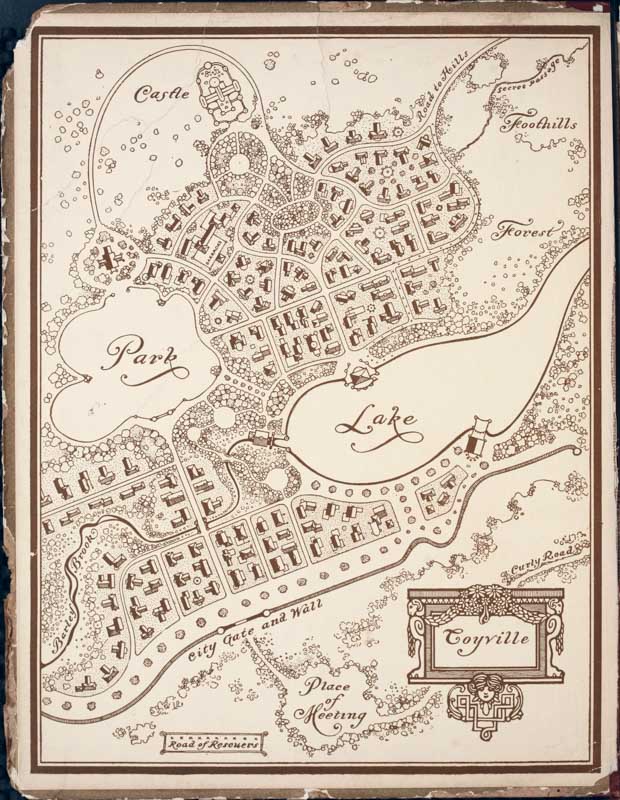
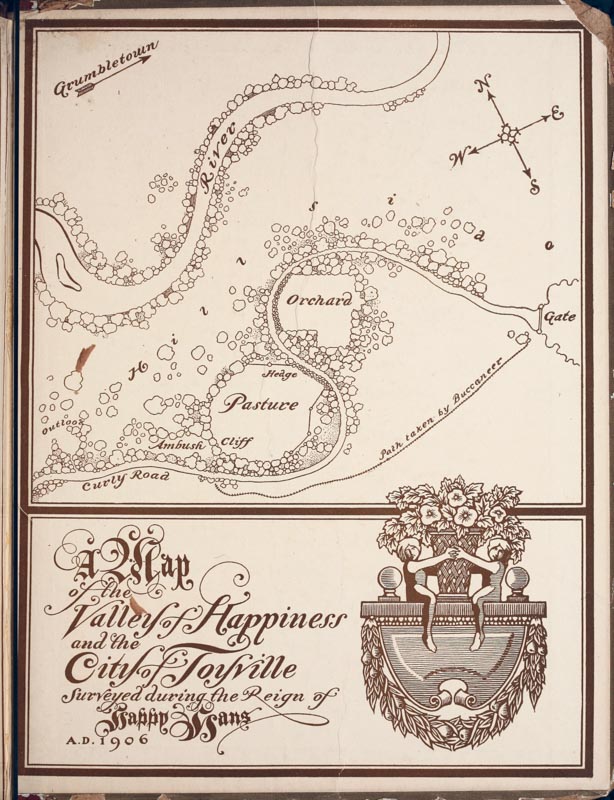
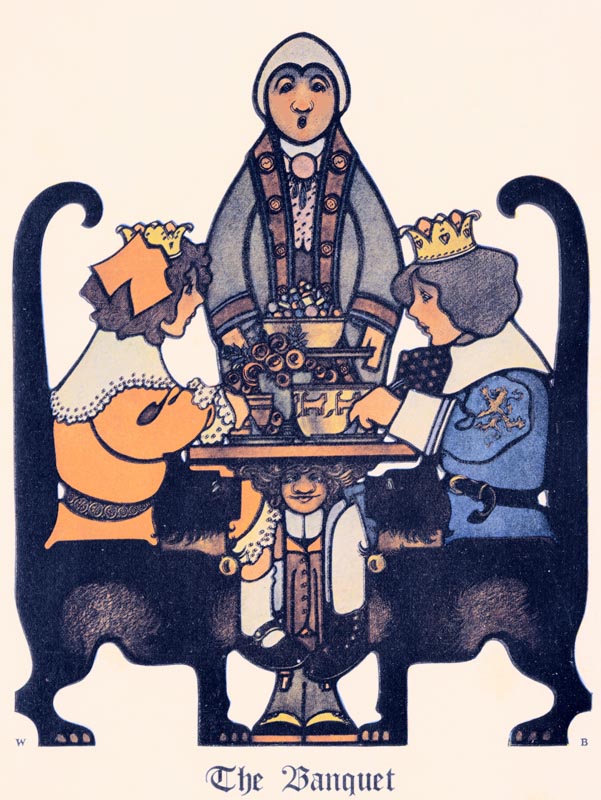
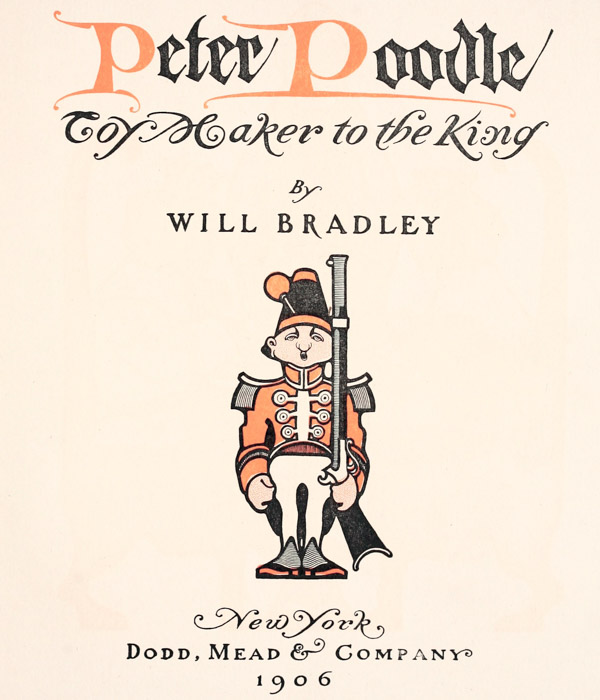
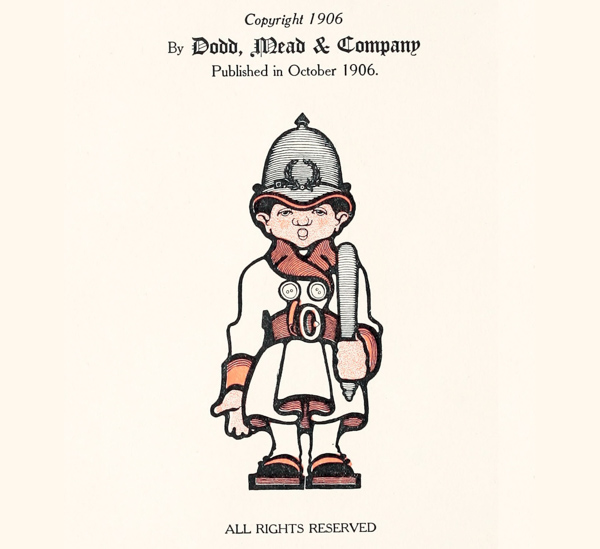
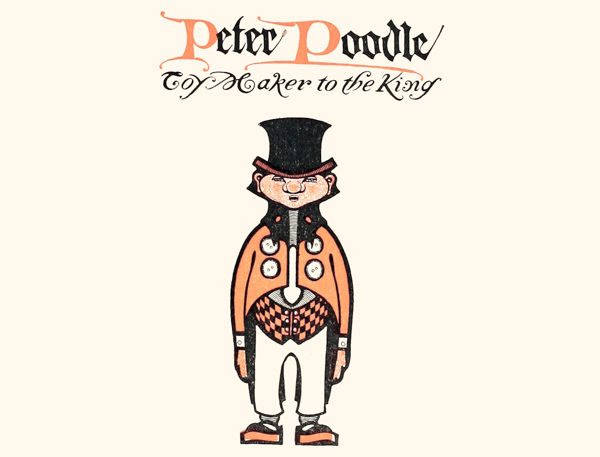
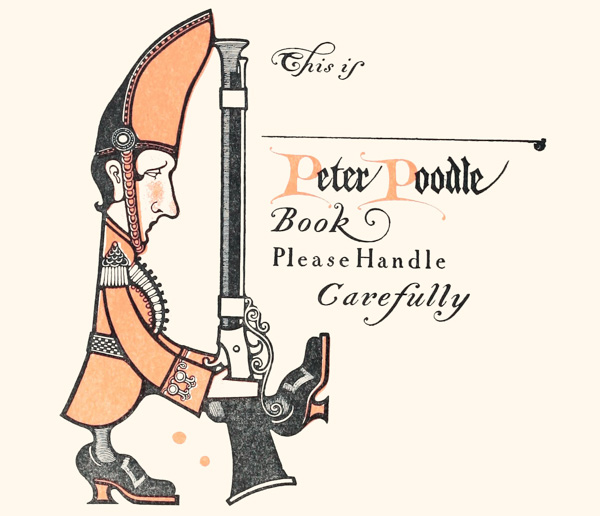
|
| ||
I. |
THE TOY SHOP |
|
II. |
THE TOY LANGUAGE |
|
III. |
THE INN |
|
IV. |
A JOURNEY |
|
V. |
THE MESSENGER |
|
VI. |
THE CURLY ROAD |
|
VII. |
THE AMBUSH |
|
VIII. |
THE GREETING |
|
IX. |
THE WELCOME |
|
X. |
THE MUSICIANS |
|
XI. |
RED BEARD |
|
XII. |
THE BANQUET |
|
XIII. |
THE SAIL |
|
XIV. |
THE CHASE |
|
XV. |
THE BARLEY MILL |
|
XVI. |
THE ROSE WREATH |
|
XVII. |
THE GARDEN PARTY |
|
XVIII. |
A SURPRISE |
|
XIX. |
THE FOUNTAIN OF THE FROG |
|
XX. |
GOOD NIGHT |
|
XXI. |
JOY |
|
CONCLUSION |
||
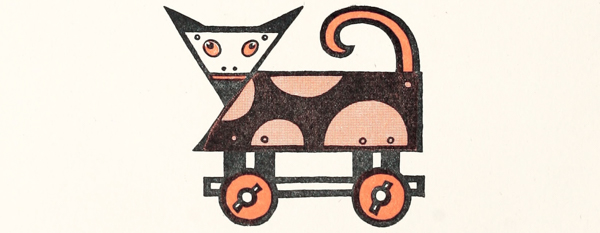 | ||
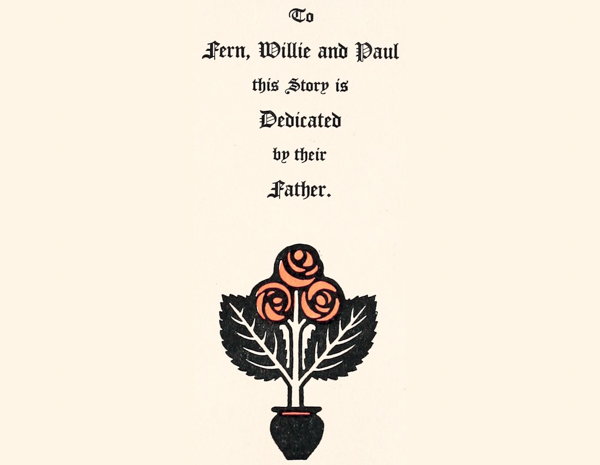
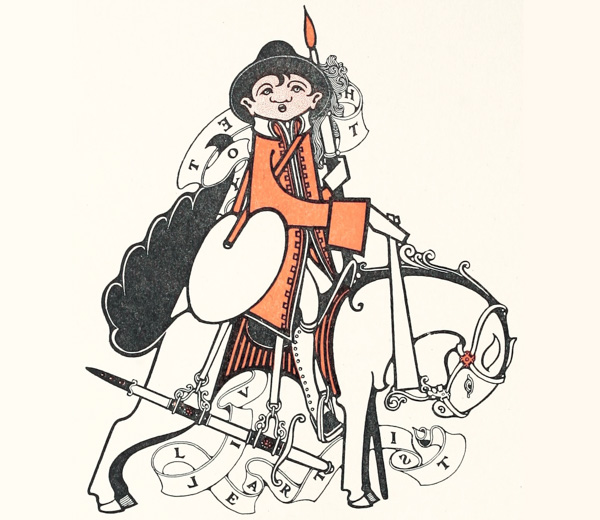
|
| ||
Frontispiece |
||
Facing Page |
3 | |
““ |
11 | |
““ |
21 | |
““ |
29 | |
““ |
35 | |
““ |
41 | |
““ |
49 | |
““ |
55 | |
““ |
65 | |
““ |
68 | |
““ |
75 | |
““ |
76 | |
““ |
83 | |
““ |
89 | |
““ |
94 | |
““ |
99 | |
““ |
107 | |
““ |
113 | |
““ |
121 | |
““ |
129 | |
““ |
135 | |
““ |
143 | |
““ |
151 | |
““ |
157 | |
““ |
163 | |
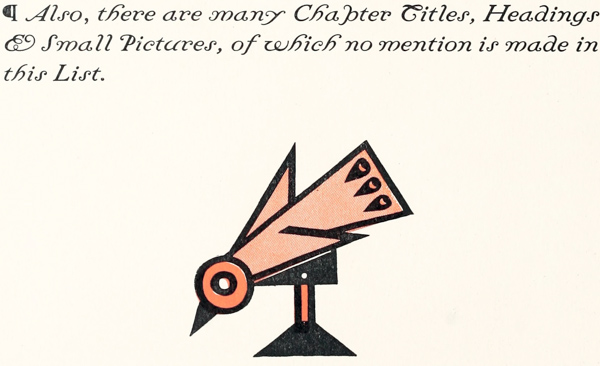 | ||


The First Chapter.
In which is told of a little Lad that came from out the Hills. Also of Peter Poodle’s wonderful Toy Shop. And how Helen had a Playfellow.
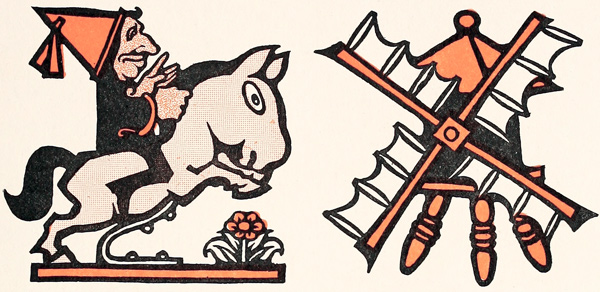
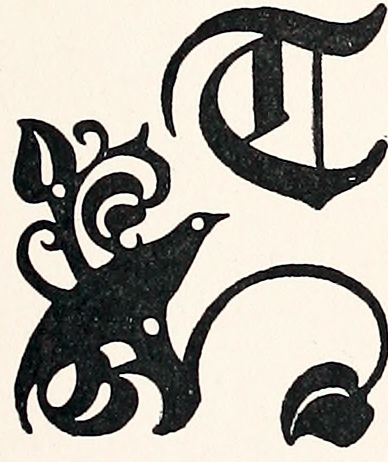 OMMY
stood with his little nose pressed
flat against the pane. He was very tired, and
also very hungry, for he had walked ever
and ever so far. How far, he did not know.
At first, he had thought it would take only
a day to reach the city, and now, he could
not remember how long it had taken. A good many days,
of that he was certain.
OMMY
stood with his little nose pressed
flat against the pane. He was very tired, and
also very hungry, for he had walked ever
and ever so far. How far, he did not know.
At first, he had thought it would take only
a day to reach the city, and now, he could
not remember how long it had taken. A good many days,
of that he was certain.
Over hills and through fields and forests he had travelled, sleeping at night in the lee of some rick of hay, or on the soft moss beneath low hung fir boughs. Sometimes, a shepherd or a forester had shared with him his simple fare of bread and cheese. At other times, he ate berries, or such of the wild fruits as were then ripe, and once, or {4} twice, he had gone to sleep hungry. But here he was, at last, in the big city and before the most wonderful window into which a boy ever looked. It was evening, and the window, with its bright lights, seemed like a bit of fairyland, for in it were all manner of the finest games and toys imaginable.
Tommy did not know that this was Mr. Peter Poodle’s famous toy shop. He did not even know the toys were for sale. He had never been in a big city and knew nothing about stores. He thought this was merely somebody’s fine house, and when he lifted his eyes from the toys and saw a big card that hung beneath one of the lamps, he was more than ever filled with wonder.
Those were the words on the card. Tommy spelled the letters twice to make sure; “I suppose the people inside must be lonely,” he thought “I will go in and visit them, and perhaps they will tell me how to find the King.”
Mr. Poodle, a kindly little man with gray hair and bright twinkling eyes, answered the rap at the door.
“Please sir,” said Tommy, “do you live here and are you lonely? Because, if you are, I can come in and play with you; but by and by, I must go and find the King. Please, can you tell me where the King lives? Because the kind lady, who took care of me when I was sick, is very poor. Did you know that once I was very sick? When I was sick the kind lady told me all about the Fairy King. I am well now, and I am going to find the Fairy King and get some gold and jewels for the kind lady. Would you like me to come in and play with you a little while? I am too tired to play very much, because I have been walking all day. {5} And tonight, when I came through a dark street, a bad, rough man chased me, and I ran so fast that it made me more tired. Don’t you think I am a fast runner to get away from the man? Please, shall we play games now? Perhaps you don’t want to play with a little boy that has such raggedy clothes. Would you rather have a little boy that has fine clothes and wears shoes and stockings? I am sorry you are lonesome. I think you are a nice man and I like you; but perhaps you don’t want such a raggedy boy.”
The twinkling laughter had left the little man’s eyes and the corners of his mouth twitched when he tried to speak. Then he quickly stooped and held out both arms. “I do want a raggedy boy” were the words that came from his trembling lips, and the next second, Tommy’s curly head was nestling on the little man’s shoulder.
“What game shall we play now?” asked Mr. Poodle.
“I don’t know,” said Tommy. “Sometimes, when I was sick and the kind lady gave me bread and milk, she said we were playing dinner party. That is the only game I know how to play. Please, sir, shall we play dinner party?”
The twinkle came back again into Mr. Poodle’s eyes. “Yes, my boy, we will play dinner party,” he said. “I think dinner party is a fine game.”
Mr. Poodle now spread the cloth on the table. “O me, O my,” said he; “this cloth has a hole right in the corner! O, well, that is soon mended.” Then, what did he do but tear right off the whole corner. “There!” said he; “now we have a cloth without any hole.”
“Here is a pitcher of milk,” he added, as he sat it on the table; “and, here are two mugs. O dear, O dear, why this mug has no handle! Now how could that handle ever {6} have jumped right off the mug and we not see it! The first thing tomorrow, I must get a new handle.”
“Please, sir,” said Tommy, “the handle is gone from the pitcher, too.”
“No, you don’t mean to tell me that that handle also is gone?” said Mr. Poodle, taking the pitcher. “Yes, it certainly has. Now, how could that have happened? Oh, I know. Those two handles were lonely the same as I was lonely, and the mug handle said to the pitcher handle: Mr. Pitcher handle, you can stay in this house if you wish, but as for me, why was I trimmed all up with colored paint and made so handsome, if it wasn’t for some little boy; and now, there is no boy in this house, so I am just going to leave! Of course, then the pitcher handle thought he would be very lonely without the mug handle, and so they went away together.”
Tommy laughed merrily. “You are a very funny man,” he said. “Handles couldn’t say all that, but it was just a fine story. Please tell it to me again.”
“Well, if I tell all that again,” said Mr. Poodle, “why then our roast turkey will be getting cold.”
Tommy laughed gaily. “You certainly are a very funny man,” he said. “This isn’t roast turkey, this is bread!”
“Let me see,” said Mr. Poodle. “Well, so it is. Now, how could I ever have made such a silly mistake.”
“Never mind, sir,” said the boy. “I am sure the bread is very nice, and I just love milk. Can we play now?”
“Yes indeed,” answered Mr. Poodle.
When Tommy had eaten the bread and milk, Mr. Poodle took him in his arms to the big easy chair. “What shall we play now?” asked the toymaker. {7}
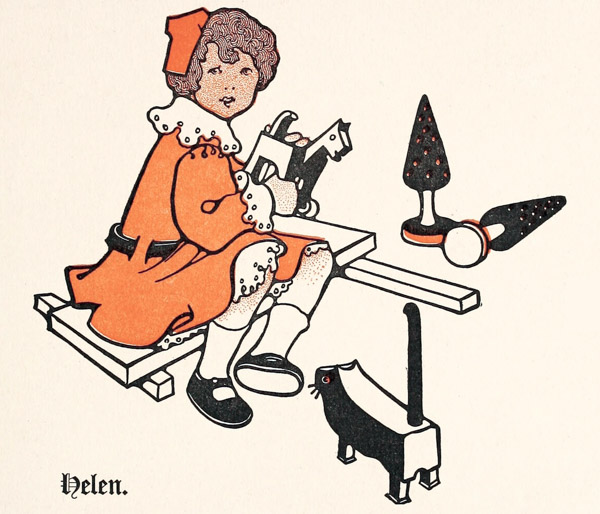
Tommy’s eyes were almost closed. “I don’t know,” he answered. “Please, sir, I am very sorry, because I wanted to play and make you happy, you are so kind to me, but I am pretty tired. If I could go to sleep for only a minute, then when I awake I would be all rested and could play some more. Please, may I go to sleep for only a minute?”
“Yes, indeed you may,” said the toymaker.
Tommy’s tired eyes looked timidly up into Mr. Poodle’s. “Please sir, may I kiss you for being so good to me?” he asked. {8}
Mr. Poodle bowed his head. “Good night, boy,” he said. “Good night, sir,” answered Tommy.
This was the manner in which Tommy Piper came to Peter Poodle’s toy shop. Who he was and from where he came, Mr. Poodle could not learn; only this much—that he had been found unconscious in the forest by a poor wood chopper, and tenderly nursed during a long illness by the wood chopper’s good wife.
As for Mr. Poodle, he was the kindest and jolliest little man you ever did see. His business was the making of toys for little girls and boys, and he had a fine big shop all littered with yellow, curly shavings, blocks of wood and bits of colored cloth. In this shop, the first thing the next morning, Tommy went to play.
He had on a nice new suit of clothes which Mr. Poodle had provided, and he was glad indeed to be dressed so finely, for right in the midst of the floor, sat a little girl.
“Good morning, Helen,” said Mr. Poodle.
“Good morning, Mr. Poodle,” Helen answered, and then turning to Tommy, she said: “Good morning, little boy.”
That was the beginning of good times in Peter Poodle’s work shop.

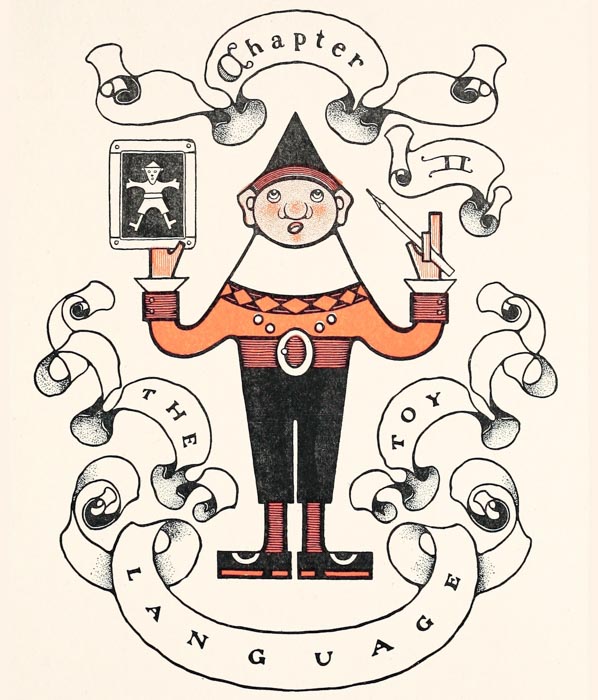
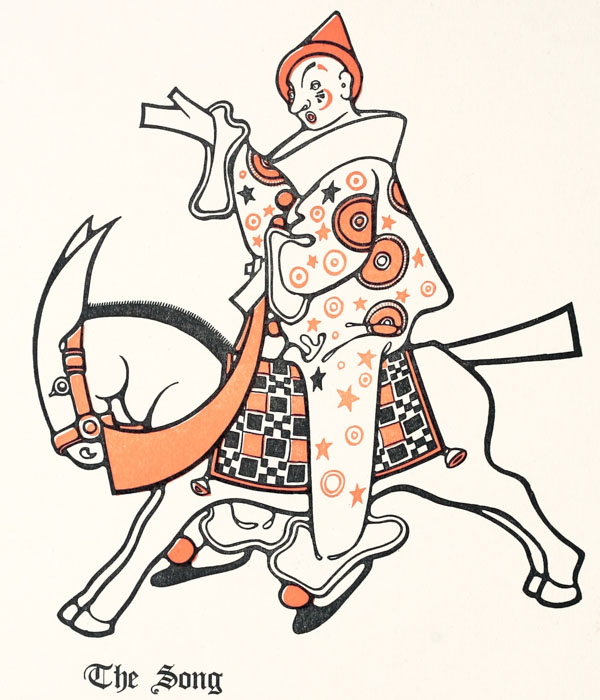
The Second Chapter.
Of how Peter Poodle taught Tommy & Helen the Toy Language. And of strange happenings in the Brick House at the Sign of the Black Lion.
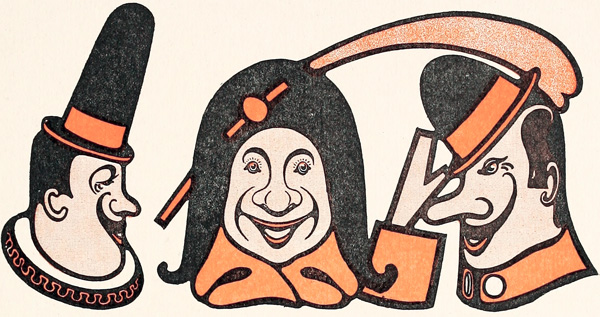
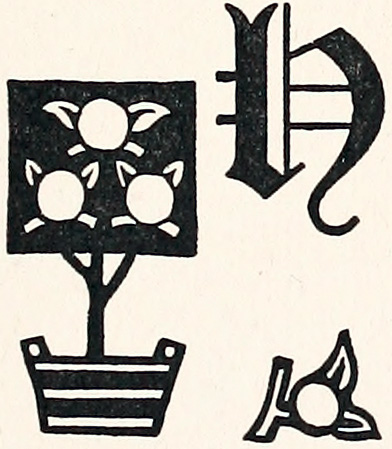 ELEN
lived in a fine big house around the corner on the next street, but
each day she came to play in the curly shavings with Tommy, and
together they watched Mr. Poodle make his toys.
ELEN
lived in a fine big house around the corner on the next street, but
each day she came to play in the curly shavings with Tommy, and
together they watched Mr. Poodle make his toys.
Certainly those were fine toys Mr. Poodle made. Helen’s mamma said there never was such a fine toy maker anywhere as Mr. Poodle. She said that he loved to sit at his bench and make the toy people, and that he put every bit of his heart into his work; and of course, when he loved his work so much, why some of his heart and some of his love had to pop right out and jump into the toys. Helen’s mamma said that was why Peter {12} Poodle’s toys were the best in all the world, and moreover, they were not painted with cheap colors that would come off the minute you put them in your mouth, or stuck together with bad smelling glue that would never hold more than a day or two.
Sometimes when Mr. Poodle was making a toy he would be singing such a funny song that Tommy and Helen had to stop their play and have a good laugh. Then Mr. Poodle would look at them over the tops of his spectacles, and make believe he felt very cross because they laughed. But Tommy and Helen could see the twinkle that went jumping around in Mr. Poodle’s eyes, so they knew he wasn’t one bit cross; he wasn’t either, for he thought it fine to hear little boys and girls laugh. Why, sometimes he would be so glad that he would take his brush and paint a smile right on the face of one of the toys he was making, and the smile would always stay there, so the toy could be very happy as long as it lived. That was the kind of a man Mr. Poodle was.
Of course, Mr. Poodle’s toys were not the common everyday sort. No, indeed! why some of them looked as if they could truly walk and talk like real people. Mr. Poodle said that really and truly toys could walk and talk.
Tommy and Helen laughed when Mr Poodle spoke that way, and Tommy said: “Why, Mr. Poodle, toys can’t talk, they haven’t any tongues.” Then you should have heard Mr. Poodle laugh. “Prut,” he said, “didn’t you know toys don’t have to have tongues to talk? Now you listen and I will ask Master Rolie Polie to sing for you.” Master Rolie Polie was the name of a little clown. Mr. Poodle had a name for every one of his toys; he said boys and girls {13} wouldn’t like to go through the world without names, and neither did toys; and moreover, having names made them much more sociable. Then Mr. Poodle introduced the clown to Helen and Tommy: “Master Rolie Polie,” he said, “this lady and gentleman would like to have you sing them a song. Let it be something funny, something jolly.”
Tommy and Helen now listened very quietly, and Mr. Poodle tilted back his chair and beat time with his finger while he hummed the words of a little song, just as if he were repeating them after the clown. When he finished, he nodded his head approvingly and said: “Very good! Very good, indeed! Thank you, Master Rolie Polie; that was a fine song and no mistake.”
Helen and Tommy laughed at the funny song, and thanked Mr. Poodle. “We liked the song very much,” said Tommy. “But I think, Mr. Poodle, we never would have heard one single word if you had not been singing also.”
Mr. Poodle then patted both of them on the head very kindly and said: “Never mind, it certainly is a little hard in the beginning to hear what the toy people say, because not having any tongues they cannot talk plainly. But by and by, if you only try to learn and are patient, you will get to know the toy language, and then you can understand every bit as well as I do.”
Helen and Tommy thought that would be fine, and said they were sure they could be patient.
After that, Mr. Poodle had two little soldiers, Captain Hinkle Pinkle of the infantry and Captain Noddle Poddle of the cavalry, lead their armies in a wonderful battle.
During the excitement of this battle no one noticed the entrance of a stranger. Had Tommy looked, he would {14} have seen the man to be that same big ruffian who had chased him through the dark street the night he came to the toy shop. A sly look appeared in the man’s eyes as he caught sight of Tommy, and a wicked smile twisted the corners of his mouth. Then he turned to the door, and, lifting the latch, quickly left the toy shop.
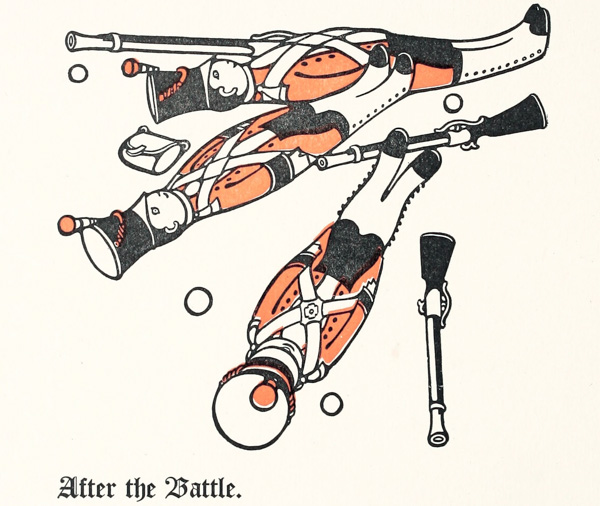
Helen was glad when the war ended for it frightened her and besides she did not like battles, so she thought she would go home to her mamma. But Tommy said: “Don’t you be afraid Helen, I was holding your hand and I would not let any of the soldiers hurt you.” {15}
“Did the soldiers really and truly fight, Tommy?” Helen asked, when they were again seated in the pile of yellow, curly shavings. “Didn’t Mr. Poodle move them about with his hand, and wasn’t it he who blew upon the trumpet?”
“O, yes, the soldiers certainly were fighting,” said Tommy. “When Mr. Poodle moved them, he did only what the captains ordered. Didn’t you hear Captain Pinkle and Captain Poddle shouting their commands, Helen?”
“Yes, I think, I did,” said Helen. “Which captain do you think was the best fighter, Tommy?”
“I believe captain Poddle was the best fighter,” said Tommy. “Don’t you think Captain Poddle was the best, Helen?”
“I don’t know,” said Helen. “I think Captain Pinkle was a very brave fighter, too, and I wished he had a horse to ride, like Captain Poddle’s.”
“Yes,” said Tommy, “Captain Pinkle was a brave fighter. I think they were both brave fighters; don’t you think they were both brave fighters, Helen?”
When Mr. Poodle heard these words of the children, he said: “Well, well, well, you certainly are getting clever at learning the toy language. I think you must know it now nearly as well as I do. That is because you love the toy people and they love you. What do you say to our taking a trip tomorrow to Toyville?”
“Toyville?” asked Helen and Tommy. “Please, Mr. Poodle, where is Toyville?”
Mr. Poodle laughed when he heard that question. “O, dear,” he said, “the idea of any little boys or girls not knowing about Toyville! that really is most absurd. Why, Toyville is the finest and jolliest little city to be found {16} anywhere in the whole world. I thought everybody knew about Toyville.”
“Won’t you please tell us some more?” asked Helen and Tommy. “Is it very far away, Mr. Poodle? Can we really and truly go there?”
“Yes,” said Mr. Poodle, “we can really and truly go there. Toyville is only a little way beyond the Hills of Troubleland; it lies in the Vale of Joy, which, by some people is called the Valley of Happiness. Once upon a time, so long ago, indeed, that nobody living now can remember exactly how long, there wasn’t any Toyville. Then, one day, some of the Toy people made the perilous trip through the Hills of Troubleland, and upon coming into the Vale of Joy, found the land so beautiful that they at once set about the building of a little city. By and by, other Toy people came that way, and the city grew and grew until it covered all the valley.”
“Will Captain Pinkle, Captain Poddle and Rolie Polie go there to live some time?” asked Tommy.
“And will my dolly go there, too, Mr. Poodle?” asked Helen.
“Yes,” said Mr. Poodle, “all the Toy people go there sometime unless they get lost by the way, somewhere in the Hills of Troubleland. You see, first of all, the Toy people came into this world to live with little boys and girls to play with them and make them happy. Some of the Toy people go to one city, some to another, and some even go to live in the country. The Toy people never care to what house they go if there is only a boy or girl living there, but houses that are without children are much too lonesome. {17}
“Sometimes boys and girls get tired of playing with the Toy people, or they grow up and get so big feeling they think the games the Toy people play are silly. And sometimes boys and girls are rough with the Toy people, tossing them about until their joints get loose or even broken, and their heads battered. Then, the Toy people, knowing there is no longer a welcome for them, in those houses, feel sad and go off to hide in a drawer somewhere, and by and by, even get up in the attic hidden away behind boxes or trunks. They wait patiently for perhaps almost a year, hoping every day to hear the children call for them; but the children have forgotten all about their old playmates. Then, one day, when it is raining and nobody can go out of doors, somebody thinks about the Toy people and goes to search, first, in the drawer, then in the attic. Alas, it is too late! the Toy people have gone, gone for ever. Gone through the Hills of Troubleland into the Valley of Happiness, where they are now living peacefully in their beautiful city of Toyville.”
“Do the Toy people play and have fun in Toyville, Mr. Poodle?” asked Tommy.
“Fun!” How Mr. Poodle did laugh when he repeated that word. “Yes, indeed, they have fun,” he said. “Of course, the older people have work to do; like flower gardens to plant; and orchards and such things to tend; but the little Toy people have more fun than I can ever find words to tell about. Why, everybody can sing and laugh and have ever and ever so much sport. Nobody in Toyville cares one single mite how much noise is made. They all think it the finest kind of fun to see the little Toy people have a good time. If the little Toy people want to, {18} they can get down on their knees and play, and never wear out their stockings. If the little Toy people want to dig in the dirt and make mud pies, or build forts, or play grocery store, their clothes or their hands and faces never get at all soiled, because the dirt there is not one bit dirty. Yes indeed, Toyville is certainly a fine place in which to have fun.”
Mr. Poodle now looked at the clock. “O me, O my,” said he; “it is almost supper time, and here I am talking away as if we never had to bother about eating. Run along now, but come back early to-morrow and I will have everything ready for our journey to Toyville.”
That night when Helen’s mamma was tucking her up cosily in bed so she would have happy dreams, Helen said: “Mamma, to-morrow Mr. Poodle is going to take Tommy and me for a visit to Toyville.”
“That will be lovely,” said Helen’s mamma. “Toyville is a very fine place, indeed.” Then she kissed Helen good-night, and soon the little girl was fast asleep.

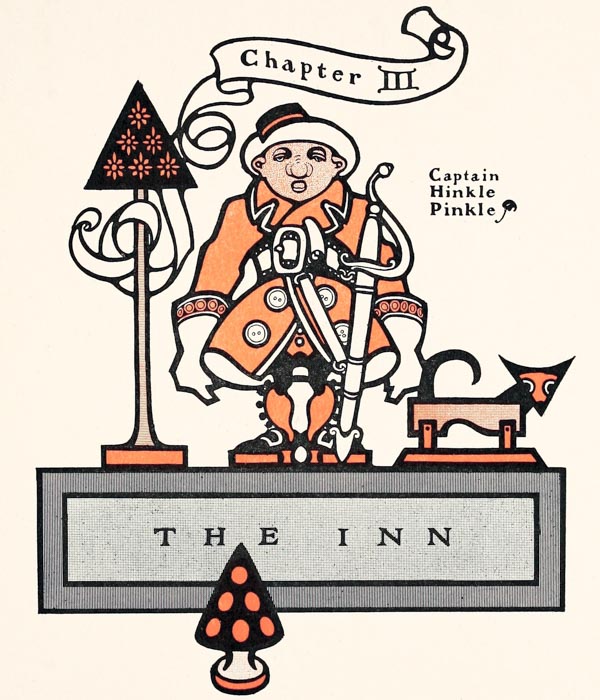
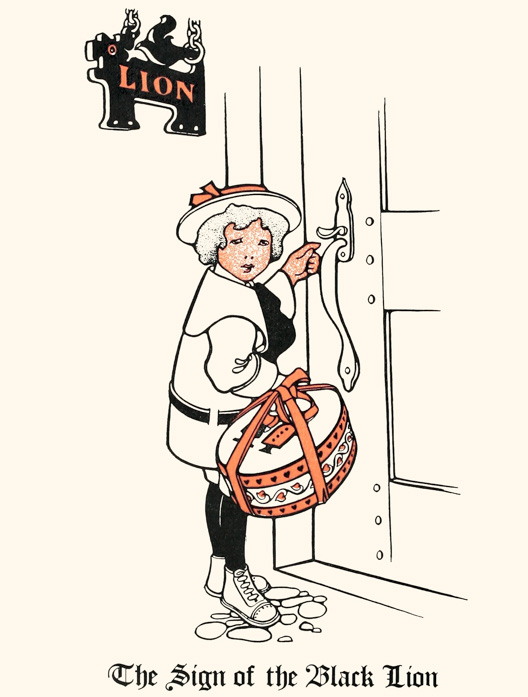
The Third Chapter.
The coming of two Strangers. And of the old Inn at the hanging Sign of the Black Lion. Also of the hurried Command given the Soldiers by Tommy.
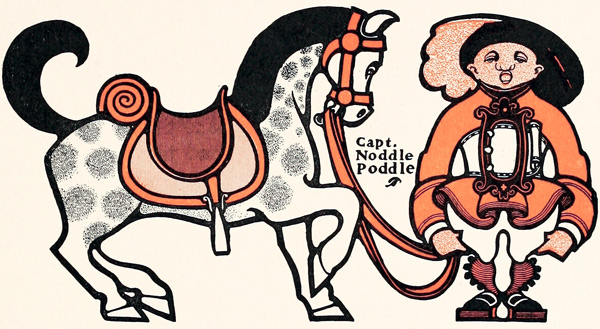
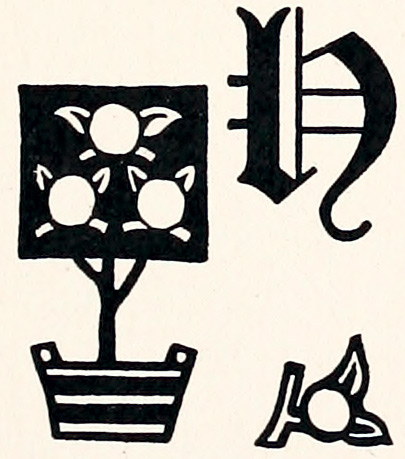 ELEN was at the toymaker’s bright and
early the next morning. She brought a little
basket in which were some nice chicken
sandwiches and two rosy red apples for
herself and Tommy.
ELEN was at the toymaker’s bright and
early the next morning. She brought a little
basket in which were some nice chicken
sandwiches and two rosy red apples for
herself and Tommy.
Helen told Tommy her mamma thought that on a trip to Toyville they would need some lunch. “And,” she continued, “Mamma said we might remain in Toyville all day if we wished, and Mr. Poodle is willing.”
Mr. Poodle’s eyes went twinkling again when he heard Helen talking to Tommy. Then he told Helen her mamma was very thoughtful and kind to prepare such a fine lunch, {22} and he said there was no telling what might happen on a trip of this kind, though he expected to find plenty of good things to eat in Toyville. “Everything is now ready,” said he. “I have sent a Messenger ahead to tell the Toy people we are coming, and I expect they will greet us with a royal welcome. The Mayor and his councillors, or, at least, a company of the Toyville Guards will probably meet us at the gates on the other side of the Hills of Troubleland.”
While Tommy was busily engaged packing the lunch into a little express wagon, Mr. Poodle left the work room to wait upon two customers who had just entered the shop. He did not at all like their looks and began to wonder what might be their errand, as they were certainly ruffians and could hardly have come to buy toys.
His first thought was a desire to be rid of them, and with this in mind, he made some apology about it being early and the shop not yet open for business.
At first, the men seemed somewhat ill at ease, but before Mr. Poodle could finish speaking, the smaller and coarser of the pair turned upon him roughly. “We will stay right here until we are through with you,” he said; “and don’t give us any more of your fine talk either. Do you hear?”
Meanwhile his companion had glanced into the back room and saw Tommy. “Leave this to me,” he whispered. “The boy is here and I have thought of a plan.” Then he turned to the toymaker. “You are right, sir,” he said, in a voice smooth and oily. “The day certainly is young. We beg your pardon for having disturbed you so early. You see, we are about to leave the city and would like {23} a few toys to take to the children at home; say this, and this, and that,” and throwing, as he spoke, a gold piece upon the counter. “Never mind the change. Perhaps you have a boy who will deliver these. Pray send him soon, as we depart in an hour. Send to the Inn at the sign of the Black Lion.” Then, without waiting for a reply, they opened the door and were gone.
Mr. Poodle looked at the gold piece: “A big price to pay for a few toys,” he thought. Then he looked at the toys. Captain Hinkle Pinkle, Captain Noddle Poddle and Rolie Polie were the ones the man bought. Mr. Poodle did not like to sell these, they were such friends of Tommy and Helen. But now it was too late, he had the money and there was nothing he could do except to put them in a box for Tommy to take to the Black Lion Inn.
Tommy was glad to help Mr. Poodle by going the errand and said he would hurry, so as not to delay the journey to Toyville. Then taking the box of toys he trudged off up the street and soon came in sight of the big Black Lion sign hanging over the door of an old brick and timbered house.
“Why this is the street where the man chased me,” he thought, “and this is the house where I first saw him. I will be glad when I get back again to Mr. Poodle’s toy shop.” Just then a company of soldiers came galloping around a corner further down the street. Tommy turned to lift the latch, but before he could do this, the door swung open and a hand grabbed him roughly and pulled him over the threshold, while the door was quickly closed and barred. The big room in which he now found himself, was lit only by one sputtering candle which winked and {24} blinked upon the wall like the eye of some evil monster. By this dim light he could make out four rough men.
Tommy was now thoroughly frightened. His heart was beating very loud. He did not like to seem to be a coward, but he felt sure those rough men meant to harm him. “I will drop the basket and run,” he thought. Then he remembered about the door being locked.
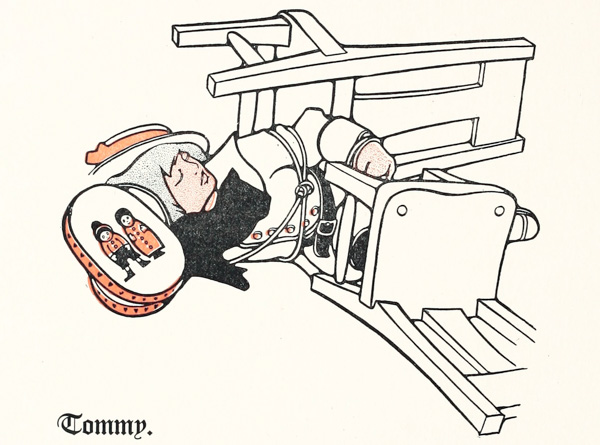
“Ha, ha, ha!” laughed one of the men. “So my little bird would spread his wings and fly, would he? Well, we must clip those wings then.” As he spoke, he clutched Tommy roughly by the shoulder.
Now whether the man pulled Tommy off his feet, or whether the little fellow’s trembling knees would no {25} longer support him, I do not know. But in a moment he was lying on the floor with his head against the edge of the toy box.
His head felt very numb, and he was very sleepy, and he wondered why the men were binding him with such a heavy cord. Then he wondered why there were so many horses galloping out in the street, and why there was such loud beating on the door. He thought he heard someone call to him, but by some other name he had heard long ago. At last he went to sleep.
What was that? Tommy opened wide his eyes. There were confused voices in his ear; then he heard a whisper. “Be quiet, be brave; we will help you. I am Rolie Polie. Captain Hinkle Pinkle and Captain Noddle Poddle are with me. We will rescue you.”
“Can you fight? Can you save me? Why how can you save me?” asked Tommy. “You are only toys?”
“Hush!” said Rolie Polie. “Don’t speak, or they will hear you. Get on your feet and follow us.”
Tommy wasn’t long in obeying. Hinkle Pinkle and Noddle Poddle had swords drawn and led the way. Out through the back rooms they went, into the kitchen then on into the back yard. From the yard to a side street and off to the toy shop, they hurried with all possible speed.
“Is everything ready for the journey?” Tommy called, the minute he saw Mr. Poodle.
“Yes, everything is ready,” answered the toymaker.
“Then we must hurry,” said Tommy. “The ruffians are after us.” {26}
“All right,” said Mr. Poodle, “give the order and we will start.”
Tommy assisted Helen to mount to the back of her beautiful horse, called Snow White. And, after mounting Coal Black, his own fine charger, he gave the order:
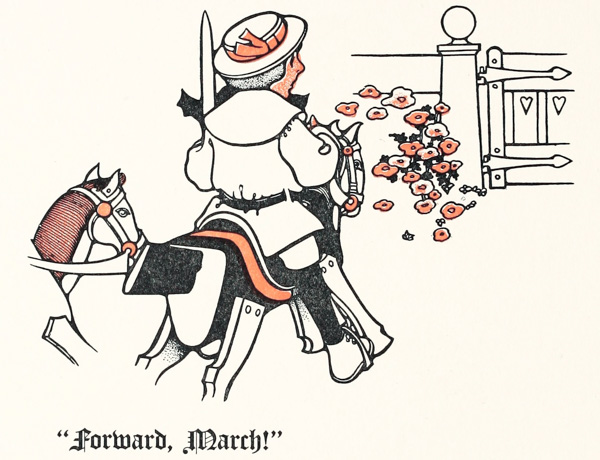
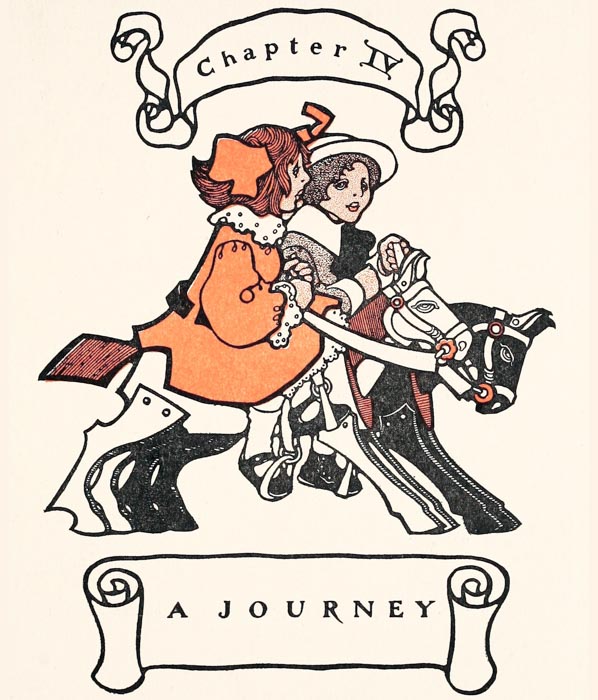
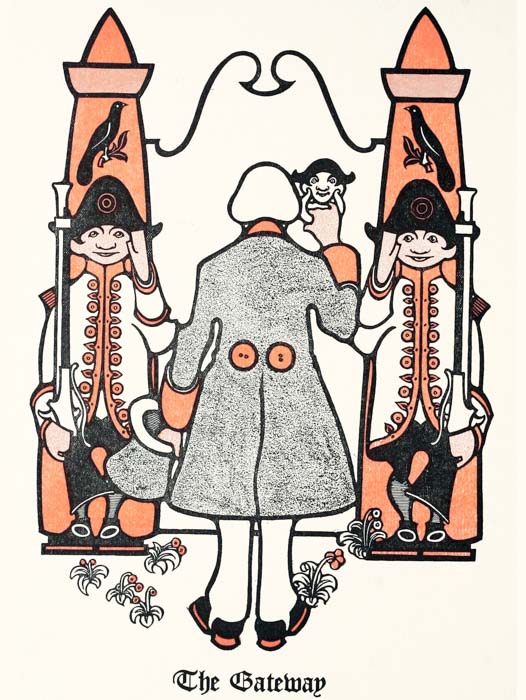
The Fourth Chapter.
Telling of how a Little Company departs on a long Journey through the Hills. Also of the Tale told by Mr. Poodle. And of the Guards at the Gate.
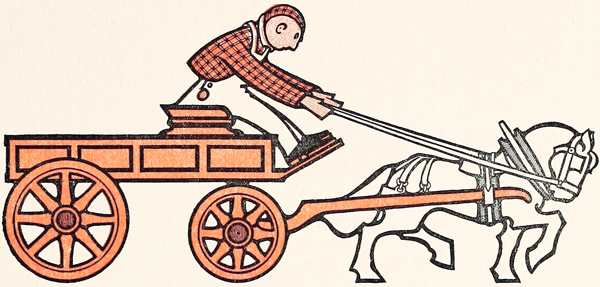
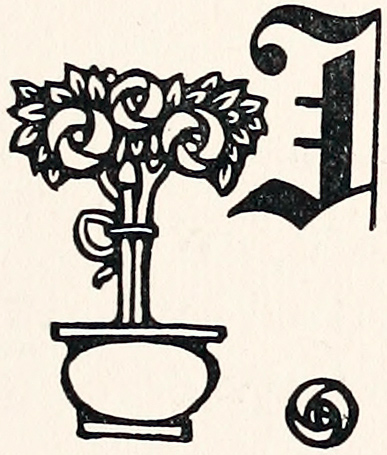 N
quick response to Tommy’s command, the
whole company started. First, of all, walked
Mr. Poodle; next, came Tommy and Helen
riding their beautiful horses; then, Captain
Noddle Poddle, who rode at the head of his
company of cavalry; and after him, came
Captain Hinkle Pinkle leading his brave command of
infantry. Next, in line, was the express wagon; and last
of all rode Rolie Polie, sitting astride a funny little donkey.
N
quick response to Tommy’s command, the
whole company started. First, of all, walked
Mr. Poodle; next, came Tommy and Helen
riding their beautiful horses; then, Captain
Noddle Poddle, who rode at the head of his
company of cavalry; and after him, came
Captain Hinkle Pinkle leading his brave command of
infantry. Next, in line, was the express wagon; and last
of all rode Rolie Polie, sitting astride a funny little donkey.
At first, Mr. Poodle hesitated about having the little clown accompanying them; he thought Rolie Polie was such a tricky fellow he would be sure to get into no end of mischief. But he finally yielded to the wishes of Helen and Tommy, much to their delight. {30}
Presently, Mr. Poodle spoke earnestly with Captain Pinkle and Captain Poddle, cautioning them to keep their soldiers near at hand and be ready in case of any attack from pirates, or bandits, or ruffians.
Tommy jumped when Mr. Poodle said that. “Why, Mr. Poodle,” he asked, “are there pirates and bandits in Toyville?”
“Well,” said Mr. Poodle, “I don’t think we will find any in Toyville, but there may be some lurking in the hills by the way. The crusty King of Grumbletown does not like the people of Toyville very well; he is always threatening to make war on them and keeps his ruffians and bandits spying around to see what is happening in Toyville. I suppose when he hears that visitors are on the road, he will be more angry than ever, for he will not want a boy and girl to go to Toyville and teach the Toy people new tricks.”
“Is Grumbletown near Toyville, Mr. Poodle?” inquired Tommy.
“Oh yes,” said Mr. Poodle, “Toyville is at the lower end of the valley, and Grumbletown is at the other end, but the valley bends about a big hill which lies between the two realms.”
“I do not think Grumbletown is a pretty name,” said Helen. “Why is it called Grumbletown, Mr. Poodle?”
“Well dear,” said Mr. Poodle, “the name came about in this way: one time it fell to the luck of some toys to go and live with boys and girls who were always complaining or fault finding, and who never were contented and happy. Of course, when this happened, the toys were sure to learn all manner of disagreeable ways, and became {31} ill behaved and grumbly. Then, by and by, they ran away to the Hills of Troubleland, and in place of going on to the happy and prosperous city of Toyville, went further up the valley and founded a new realm, which, because of all its subjects being grumble toys was given the name of Grumbletown.”
“Are there many people living in Grumbletown, Mr. Poodle?” asked Tommy.
“Yes, there are,” said Mr. Poodle, “I am sorry to say it is quite a large realm and is constantly growing larger, because the toys of children who complain and find fault always go to Grumbletown in place of Toyville. The King of Grumbletown is a sly and crafty old pirate, called Red Beard, and sometime, if he becomes too powerful, he will make war on the peaceful, contented Toy people.”
It was a long, long way the happy little company now travelled; through winding valleys they went and over towering hills until at last, after crossing one high hill, there spread before them, all at once, the broad walls and beautiful gate at the entrance to the Valley of Happiness. On the gate there was painted a black rooster, and standing on guard at each side, was a brave little soldier.
As soon as Mr. Poodle and his company came in sight, the two soldiers saluted, then holding their muskets at present arms, waited for the visitors to approach.
When Mr. Poodle reached the gate, he lifted the heavy knocker and gave three loud raps. At the third rap the gate swung open, and there they were right on the edge of the Kingdom of Toyville, with the sounds of the city coming faintly through the hills from far down in the little Valley of Happiness. {32}
Mr. Poodle now seemed very much surprised and the look in his eyes showed that he was also a little worried.
“What is the matter, Mr. Poodle?” asked Tommy, kindly. “Haven’t we come the right way?”
“Oh, yes,” said Mr. Poodle, “this is the right road to Toyville; but I am very much surprised that none of the Toy people are waiting to meet us. I expected to find a company of cavalry at this gate and even thought the Mayor and some of the Nobles would come to escort us to the city. It is certainly most strange that no one is here, for I sent a Messenger to tell them we were coming. It is not at all like the Toy people to treat guests in this way. I hope the Messenger has not been captured by the bold brigands or bandits.”
When Mr. Poodle stopped speaking, Tommy and Helen thought they heard someone laughing behind a clump of bushes not far away; but as Mr. Poodle either did not hear it, or if he heard, he paid no attention, they said nothing about the matter, but followed him through the gate and into the new land.

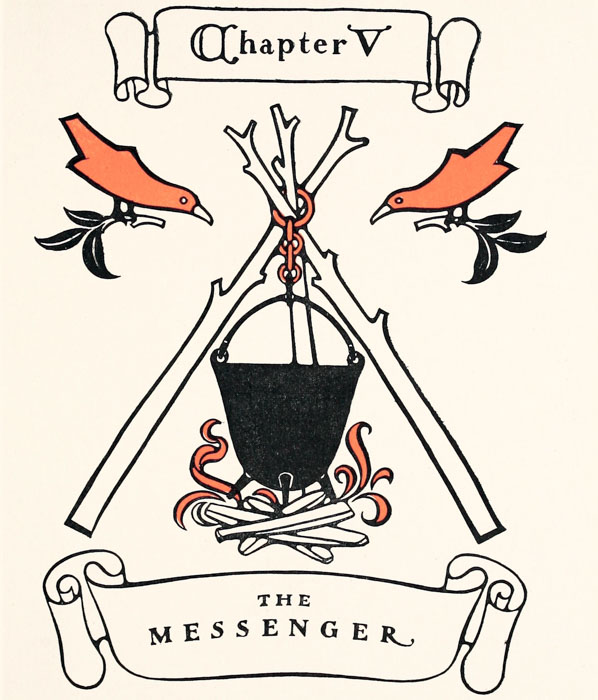
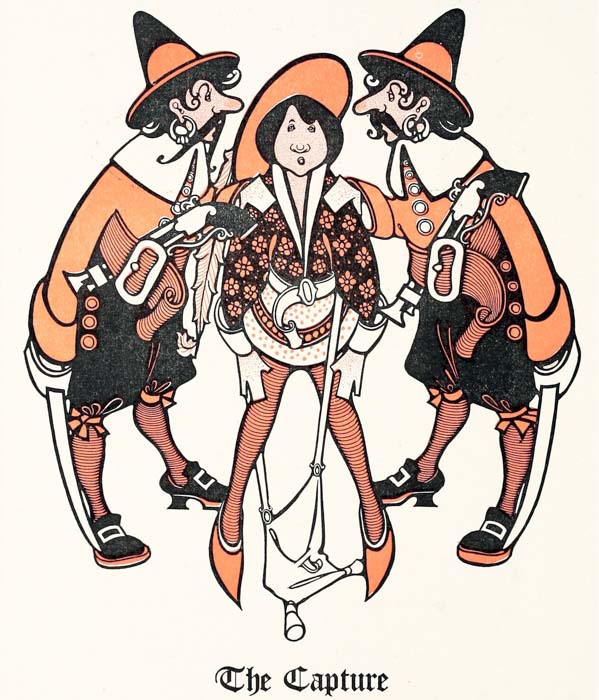
The Fifth Chapter.
How Three wait upon the Highway. And of the Adventure that befel Peter Poodle’s Messenger. Also of how the Messenger departs in much Joy.
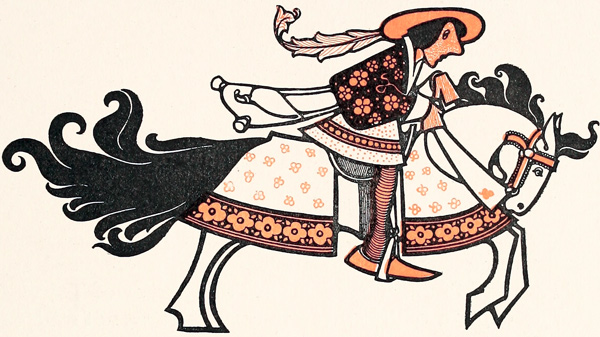
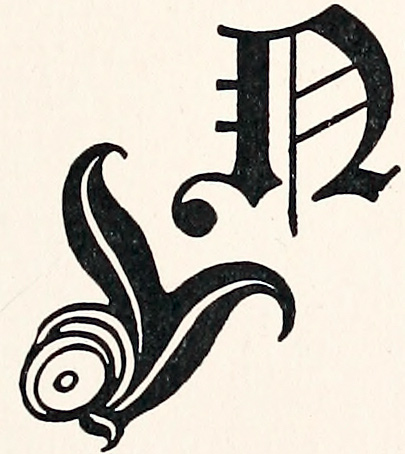 OW we must leave the little company, for
one chapter, and tell of what happened to
that little Messenger Peter Poodle had sent
on ahead to Toyville.
OW we must leave the little company, for
one chapter, and tell of what happened to
that little Messenger Peter Poodle had sent
on ahead to Toyville.
It would have been as well for Peter Poodle and his happy company to have searched a little in the bushes, before travelling further on their journey. Had this been done, it is more than probable it would have led to a surprising discovery.
When Mr. Poodle told Tommy and Helen that the King of Grumbletown had ruffians and bandits lurking about, spying in the hills, he spoke what was certainly true, but {36} he told only one half of the story. He did not know that Red Beard had sent not only his bandits, but also his three bold and crafty Buccaneers, who, having recently returned from a pirate cruise, were anxious for a little fighting and plundering on land.
Now, as oft happens in this world, a body sometimes has Luck tripping along for his wayfellow, and sometimes it is Ill Luck that goes kicking up the dust at his side. Ill Luck was the fellow that went travelling with the Messenger Peter Poodle had sent to Toyville, and this is what happened: No sooner had the three Buccaneers entered the Hills of Troubleland than they saw coming down the road, the little Messenger.
“Oh, ho!” cried Big Bill, the captain, “here is our chance to take a captive!” Then he ordered his men to advance, and the next minute the messenger was captured and Big Bill had found the message to the Mayor of Toyville.
The captain of the three Buccaneers was not much at spelling out letters, so it took him a long while to get to the end of the message. But finally, after reading it all, he laughed long and loudly.
“Ha, ha, ha! my hearties,” said he (which is the way a Buccaneer captain always speaks to his men when there is something of importance afoot). “Ha, ha, ha! Here is a fine kettle of fish for sure and certain, and all ready to be cooked! I guess we are the fellows to do the cooking, too! Listen, my hearties: Peter Poodle, that little toymaker from over the hills, is going to visit Toyville. Here is a message he sends to the Mayor, and it says he is going to bring a boy and a girl with him. What do you think our King in Grumbletown would say to that?” {37}
The two Buccaneers looked at Big Bill, their captain, and neither one knew what to answer.
“I will tell you, my hearties, what our King would say. He would say, ‘We don’t want any boy and girl going to Toyville to teach the Toy people new tricks, so Bill, you must capture them.’ That is what the king would say. Now, what I want to ask, my hearties, is this: how are we going to make the capture?”
The two Buccaneers again looked at Big Bill, and again neither one could answer.
Big Bill thrust his two hands into his pockets and walked to and fro in deep thought. Finally a bright idea came to him. “I have it now, my hearties,” he said. “We must find a good place to hide by the roadside, and make an ambush; then when they pass by, most likely this boy and girl will be lagging along behind, looking at the sights, and we can spring out and take them by surprise; after that we will carry them captive to Grumbletown.”
The two Buccaneers looked at each other with eyes almost bulging out of their heads. “My, oh my, Bill, but you certainly are a fine one at making plans!” they said. Then taking hold of Big Bill’s hands the three began to dance and skip about like crazy people.
Big Bill now unfastened the bonds of the Messenger, and bowing politely to him, said he was very sorry they had treated him so harshly. “You see,” said he, “there are so many ruffians and bandits lurking about in the hills, we have to be careful whom we allow to pass. We hope you will forgive us, and that you will accept our invitation to have something to eat before travelling any further along the road to the city of Toyville.” {38}
Big Bill spoke to the Messenger, just the politest that could be, for he wanted to get rid of him without his being suspicious, and yet he wanted to delay the delivery of the message until its arrival would be too late for the Mayor to send anyone to meet Mr. Poodle.
The Messenger said he certainly would be glad to have something to eat with Big Bill and his companions, and as for blaming them for handling him so roughly, he could never think of doing that, because he knew it must be important to have such good guards in Toyville to protect the city from the wicked ruffians of Grumbletown.
The two Buccaneers expected Big Bill would give the Messenger a good drubbing for speaking that way, but though their captain looked a little glum, he did no more than order them to build a camp fire and prepare a good dinner. After eating a hearty meal, the Messenger thanked Big Bill for the entertainment and again took up his journey down the road to Toyville.
Big Bill and one of his men set out to find a good place for the ambush, the other Buccaneer was left behind at the gate to watch for the expected visitors so he could warn Big Bill of their approach. His laughing was the sound that Helen and Tommy heard when Mr. Poodle expressed the hope that his little Messenger had not been captured by bandits.

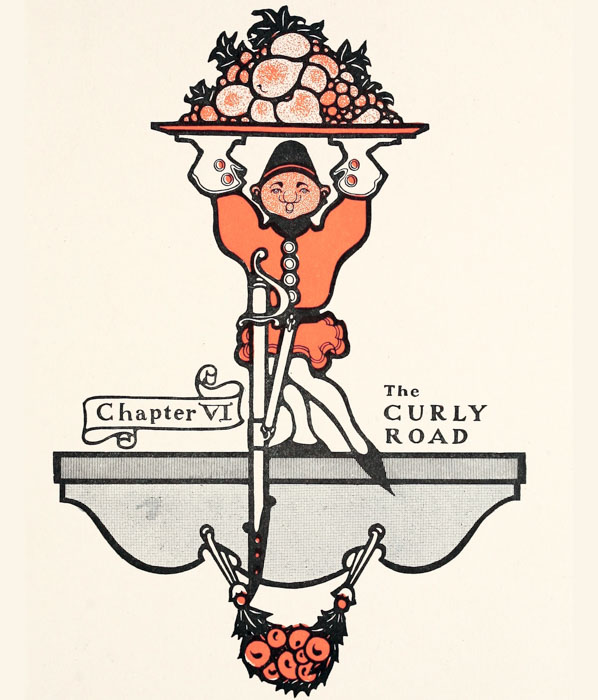
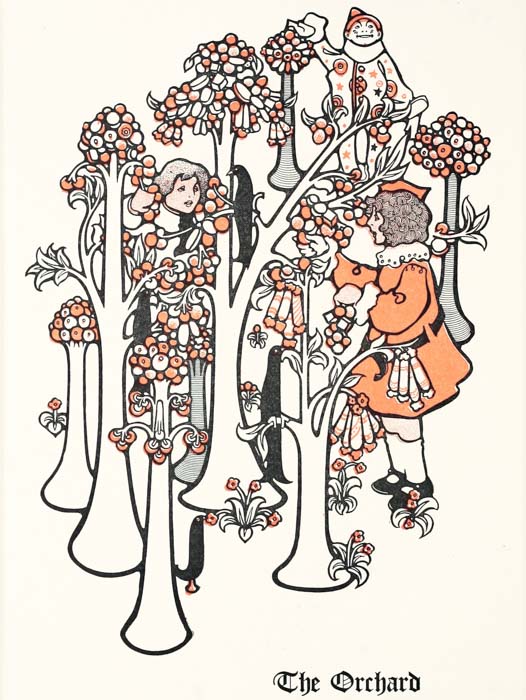
The Sixth Chapter.
Here something is told of the fine Sights seen on a Wonderful Hillside. Here, too, Helen & Tommy find new Delights, and Rolie Polie finds Trouble.
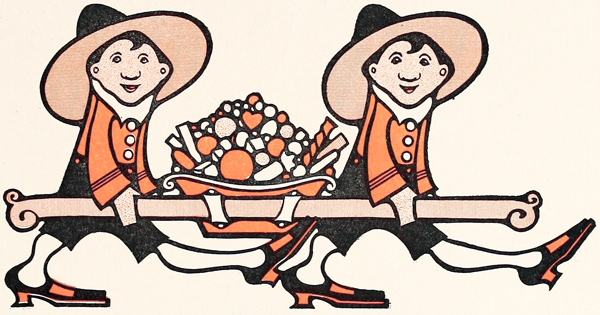
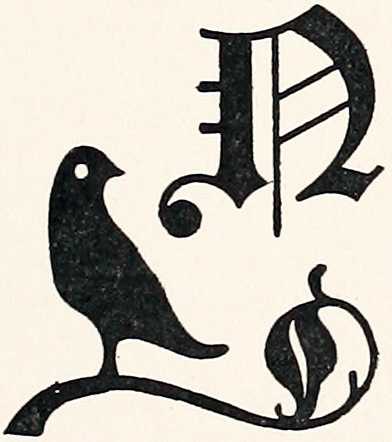 O sooner had Helen and Tommy walked
through the gateway than a peculiar shivery
feeling went running up and down their
backs, and even to the tips of their fingers
and toes. This lasted only for a second or
two, and its cause they could not guess.
Indeed, there was no time to give the matter any thought
before something very strange happened. When Captain
Pinkle, Captain Poddle and the others passed through the
Toyville gateway, quick as a wink, every one of them
grew to be as big as Tommy and Helen. At first Tommy
and Helen thought it was themselves that had become as
small as the Toy people, but after looking
around a little, {42}
it could easily be seen that their companions were really
the ones who had changed.
O sooner had Helen and Tommy walked
through the gateway than a peculiar shivery
feeling went running up and down their
backs, and even to the tips of their fingers
and toes. This lasted only for a second or
two, and its cause they could not guess.
Indeed, there was no time to give the matter any thought
before something very strange happened. When Captain
Pinkle, Captain Poddle and the others passed through the
Toyville gateway, quick as a wink, every one of them
grew to be as big as Tommy and Helen. At first Tommy
and Helen thought it was themselves that had become as
small as the Toy people, but after looking
around a little, {42}
it could easily be seen that their companions were really
the ones who had changed.
“Duck your heads, everybody!” cried Mr. Poodle; “here comes a cloud that will knock your hats off!” And sure enough, there was a great fleecy white cloud, like a big ball of thistle down, rolling and tumbling across the sky, and so close to their heads that Tommy and Helen could almost touch it by stretching out their hands.
“This must be a very high hill,” said Tommy.
“Yes, indeed,” answered Mr. Poodle. “Why it is nearly as high as the sky.” Then he asked Tommy to line up the soldiers, and said he would fire a salute so the Toyville people would know of their arrival.
After the salute had been fired, the company resumed their journey, and as there was no longer any danger of losing the way, Mr. Poodle bade the soldiers take the lead. Tommy and Helen were sure that they had again heard someone laughing in the bushes, but as Mr. Poodle paid no attention, the matter was soon forgotten. A funny curly road ran down over the hillside, twisting and turning and bobbing here and there, just as if it wanted to get into as many nooks and corners as possible, which was not a bit of wonder either, for nowhere in all the world could be found a hillside as beautiful.
“We must now travel down this long curly road,” said Mr. Poodle. Then he asked Helen and Tommy if they were glad they had come on the journey and if they were getting at all tired.
“Yes, indeed, we are glad, Mr. Poodle,” said Helen and Tommy, both speaking at once. “And we are not the least tiny bit tired, either.” {43}
“That is good,” said the little toymaker. “It is a long walk down the hill to the city of Toyville, but I think you will not mind that, for there are so many new sights to be seen.”
At first the road wound through a grove of beautiful trees thickly covered with sweet blossoms of every color of which a body might think. Then it entered a wonderful orchard, where were rows and rows of trees all loaded with ripe fruit. Fruit? Well, that is what it was called in Toyville, but over across the hills, back where Helen and Tommy lived, it would be called candy. There were bonbons, all of cream and chocolate; there were lovely fat white marshmallows, luscious and ripe, which hung in big juicy clusters, waiting to be picked; there were sugar plums, the finest and biggest that grow on trees anywhere in the land. Not a single tree in the whole orchard but what had this fine fruit all bursting ripe, and so much on every branch and twig that they were almost breaking off and tumbling to the ground.
Two funny little men were seen gathering the fruit in a great wooden tray with long handles. “Pick all you want,” they said to Tommy and Helen. “Eat all you want, too. It will not make you a bit ill, as city candy would, and for every one we pick, two grow in its place.”
The men did not have to say those words twice. Indeed, they hardly had time to say them even once, before Helen and Tommy were under the trees and stuffing their pockets bursting full; what they couldn’t put in theirs they stuffed in Rolie Polie’s, which were very big and held almost as much as a quart. The grass that grew between the trees of the orchard was nearly as soft as velvet, and {44} when any of the ripe fruit fell to the ground, it didn’t get at all broken. There were some shade trees growing in the orchard, too. Mr. Poodle said they were planted there to keep the warm sun from shining on the fruit daytimes, because the sun might make the fruit melt.
“These fleecy white clouds also help to keep the sun off,” said Mr. Poodle. “That is why they are so big.”
“I thought clouds made it rain,” said Tommy. “Don’t the clouds make it rain, Mr. Poodle?”
“Oh yes,” said Mr. Poodle, “of course that is the way it is back in our land, but here it never rains. You see the Toy people do not like to be out in the wet; it would spoil their games and all their fun, so here it is always sunshiny.”
“And can the Toy people play out of doors all the time?” asked Helen. “Don’t they ever need to go in the house, Mr. Poodle?”
“Not on account of rain, dear,” answered Mr. Poodle. “Of course people go in their houses to sleep at night, but the Toy boys and girls are never called in to go to bed at half past seven, just when they are having the most fun; their mothers allow them to stay up until almost nine o’clock, or at least until eight.”
Tommy and Helen thought that it would be fine to live in that kind of a city, and told Mr. Poodle they know the Toy children must be very happy.
“You are right,” said Mr. Poodle. “I am sure the Toy children are happy; everyone in Toyville is happy.”
While Tommy and Helen were talking in this way with Mr. Poodle, the road went on twisting about a bend and presently brought them into a rolling bit of pasture land, strewn with buttercups and daisies. But that was not all {45} the pasture contained. No, for, feeding beside a red pump was a pink barley pig, also some barley cows, and sheep, and at the far end of the pasture were two tame barley deer. A barley rabbit, startled by the approaching footsteps, went skipping across the road, almost under the very toes of Rolie Polie. My, but Rolie Polie was scared, and stopped so quickly that he almost tumbled and tucked his nose in the dust before he could get his balance.
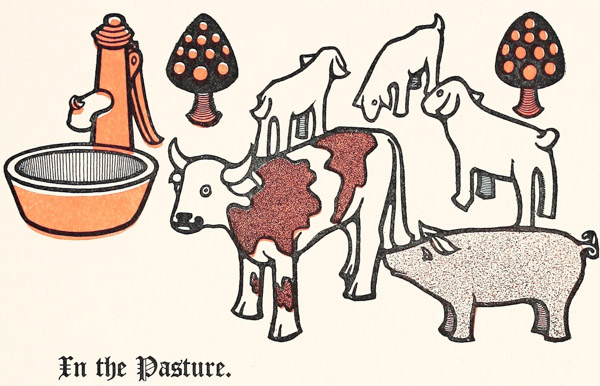
The little clown then began to laugh and the next minute away he went over the hedge and through the pasture, chasing the rabbit as fast as ever his legs could carry him, with never a thought for danger.
Now Rolie Polie was dressed in his clown’s suit of red and white; and no sooner did he enter the pasture than one of the animals lifted its head and gave a great bellow. {46}
“Oh, the bull, the barley bull!” yelled Mr. Poodle. “Look out, Rolie Polie! Run for a tree, or the bull will catch you!”
But Rolie Polie was thinking only of the rabbit and squirrel, and never once heard the barley bull until it was almost upon him. Mr. Poodle now knew that one of two things would surely happen: either Rolie Polie would be overtaken by the bull, or, in trying to escape, he would be forced to the edge of the cliff and tumble over.
“We must hurry to the rescue!” cried the little toymaker, and with one bound he went through the hedge, quickly followed by Tommy. Helen stood and watched them from the roadway. She would have gone to the rescue too, but really, barley bulls are very scary animals, and as Helen had on her red dress, she thought it best not to get too near.
The bull was now only a few yards behind Rolie Polie, and all the shouting of Mr. Poodle and Tommy made not the least bit of difference to its mad gallop. It saw only the bright colors of the little clown’s costume, and madly bellowing, it never slackened its speed one tiny particle. Indeed, the shouting may have made it run even faster.
What then happened to the little clown must be told in the next chapter, for now we are at the end of this one.

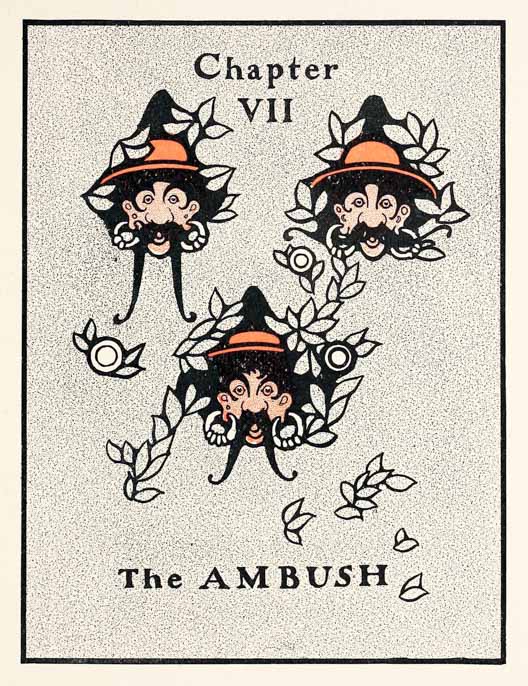
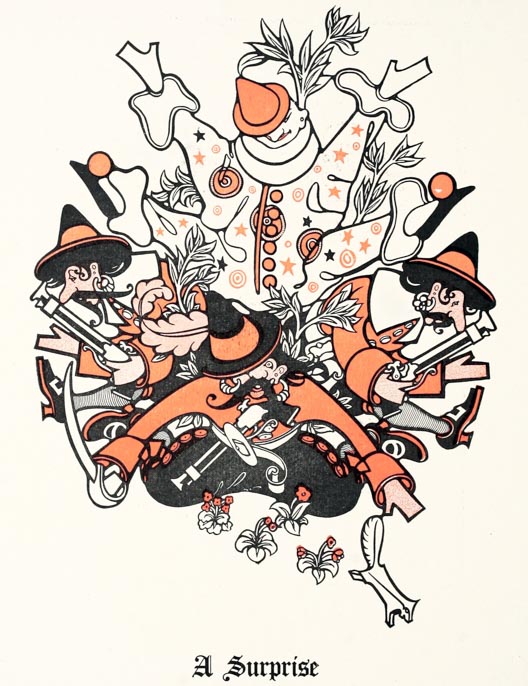
The Seventh Chapter.
Of the three Buccaneers. Also of the Fear that fell upon Mr. Poodle, and what fell upon the Ambush.
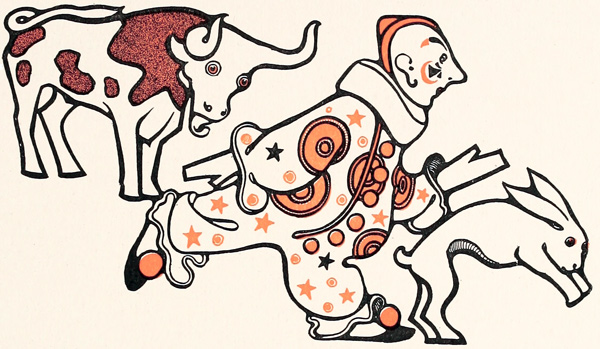
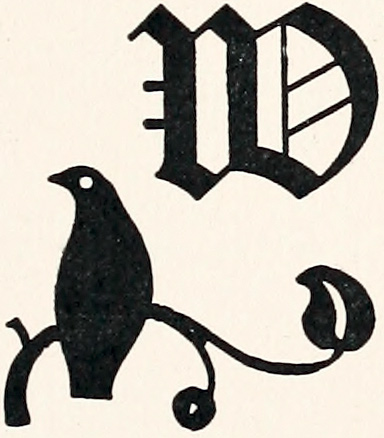 HILE
Rolie Polie chased the barley rabbit,
and in turn was being chased by the barley
bull, Big Bill and his two Buccaneers were
lying in ambush further down the road. The
one who had been left up the hill at the
gate, had hidden behind some bushes, and
when the company came through and Mr. Poodle spoke
of the strangeness of their not being met by any of the
Toy people, he chuckled so loudly, that it was a wonder
the noise did not lead to his being discovered. After the
salute had been fired and the company started on their
downward journey, the Buccaneer, when he saw how the
soldiers were sent on ahead, leaving
Helen and Tommy {50}
no greater protection than that afforded by the little old
toymaker and Rolie Polie, again laughed out loud; and it
was only when the company passed from sight that the
Buccaneer left his hiding place and set forth by a short
cut, which soon brought him to the ambush and his waiting
companions.
HILE
Rolie Polie chased the barley rabbit,
and in turn was being chased by the barley
bull, Big Bill and his two Buccaneers were
lying in ambush further down the road. The
one who had been left up the hill at the
gate, had hidden behind some bushes, and
when the company came through and Mr. Poodle spoke
of the strangeness of their not being met by any of the
Toy people, he chuckled so loudly, that it was a wonder
the noise did not lead to his being discovered. After the
salute had been fired and the company started on their
downward journey, the Buccaneer, when he saw how the
soldiers were sent on ahead, leaving
Helen and Tommy {50}
no greater protection than that afforded by the little old
toymaker and Rolie Polie, again laughed out loud; and it
was only when the company passed from sight that the
Buccaneer left his hiding place and set forth by a short
cut, which soon brought him to the ambush and his waiting
companions.
When Big Bill heard how the company had been divided, he said: “Didn’t I tell you so? Didn’t I say that that boy and girl would have to be lagging along behind to see the sights? I tell you, I know a thing or two. They can’t fool Big Bill. Come, my hearties, we must get ready! Every man see to the loading and priming of his pistols! We won’t need to fire any shots; the sight of our swords and pistols will be enough to frighten them. Like as not, at the first glimpse of us, Peter Poodle and that little clown will run; then we can capture the boy and girl.”
The tramp of men and horses was now heard coming around the bend further up the road. “We must lay low,” said Big Bill, “and keep out of sight until these soldiers pass; then, we can poke out the muzzles of our pistols and be ready for the others.”
Hardly had Big Bill finished speaking when to their ears came the startling sound of a great roaring bellow. One of the Buccaneers jumped to his feet, his legs shook and trembled while his face went white as chalk. “It is the barley bull,” he whispered between his chattering teeth. Again they heard the bellow, this time nearer than before. “Listen! listen!” cried the frightened Buccaneer, his voice no more than a hoarse croak; “listen, Big Bill, it is the barley bull; the barley bull is after us!” Then his legs giving way, he fell in a heap on the ground. {51}
Big Bill jumped to his feet. “Are you crazy?” he cried. “The barley bull can’t hurt you. He is in the pasture up the hill.”
Presently, the bellow came again, and now so near that even Big Bill trembled and turned pale, and shaking and shivering he drew his pistol, while his two men, their faces blanched with fear, fell on their knees, and frantically clasped their arms about his knees.
The bellowing of the barley bull now came to them again and roared in their ears like rolling thunder. “He will get us, he will get us!” cried the three. “We must run for our lives!” Then they heard a crash in the bushes above them and the next second something landed right on the head of Big Bill, tumbling him and his companions over and leaving them sprawling on the ground.
The breath was knocked out of Big Bill. He could not speak even in a whisper. “He has us, he has us; the barley bull has us!” was what he tried to say, but never a single word came over his parched lips. Then with the last ounce of strength that remained in their bodies, Big Bill and his two men got on their feet and started to run as fast as ever their shaking legs could carry them. Never once did any of them stop for even a second to look back, and I very much doubt if they heard the shouts of Captain Pinkle and Captain Poddle and their soldiers, or even heard the reports of the musket shots that were being fired. No, they thought the barley bull had come through the bushes tearing after them; which was too much for the bravery of these three bold Buccaneers.
But it wasn’t the barley bull that had tumbled the three Buccaneers to the ground; it was a no more harmful {52} creature that had come crashing through the trees, to land on their broad backs, than the little clown, Rolie Polie. If Big Bill and his two fellows had seen Rolie Polie sitting on the ground and laughing at their hasty retreat, it certainly would have made them more angry than they were now scared.
Meanwhile, having seen Rolie Polie jump, Mr. Poodle and Tommy hurried back to the roadway, and, followed by Helen, ran hurriedly down and around the bend.
“Have you found Rolie Polie? Is he hurt? Has he any joints broken?” called Mr. Poodle the moment he came in sight of the soldiers.
“No,” answered Captain Pinkle, “Rolie Polie is not hurt and he certainly has served us well this day, by saving Miss Helen and Master Tommy from the Grumbletown Buccaneers.”
When Mr. Poodle looked at the ambush, and realized how near Helen and Tommy had come to being captured, he was very thankful for such a lucky escape. “We must keep together the rest of the journey,” he said to the two captains. “These Buccaneers will get over their fright by and by, and you may be sure they won’t give up trying to capture Helen and Tommy; so we must be continually on the lookout for another attack.”
Finding that Rolie Polie was not at all hurt by his tumble, and that the jolly little fellow was well able to travel, the company formed in line and again started down the road towards the City of Toyville.

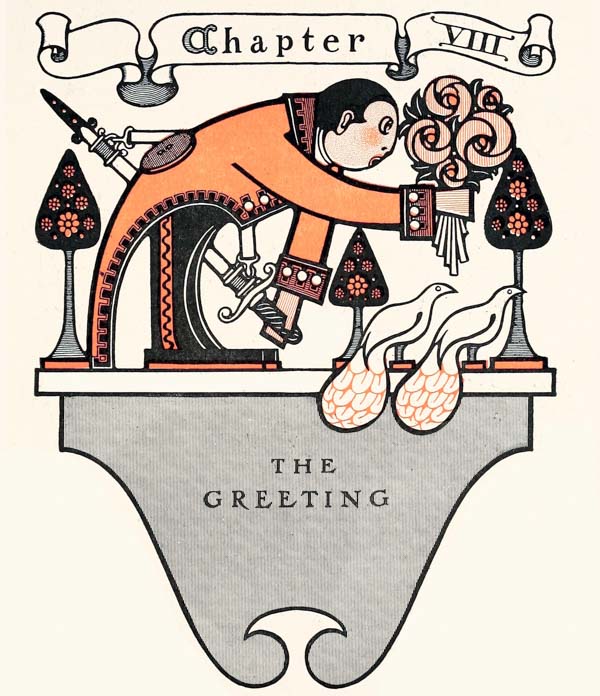
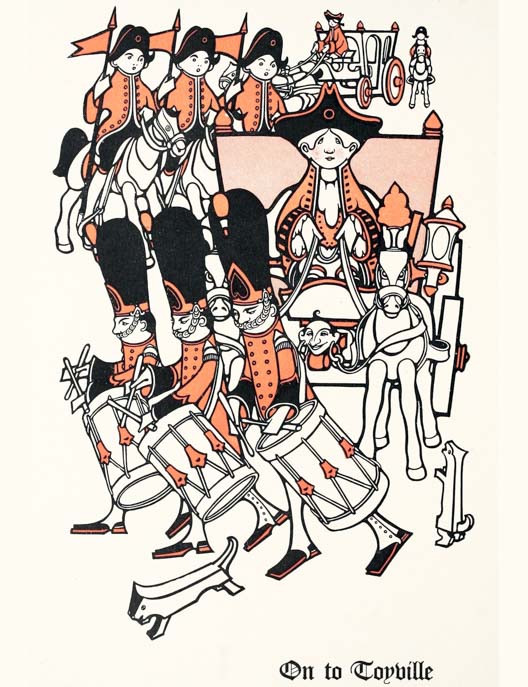
The Eighth Chapter.
How the Little Company meets with a Joyous Greeting. And how a sly Stranger listens to the Words of the Mayor and watches the Departure.
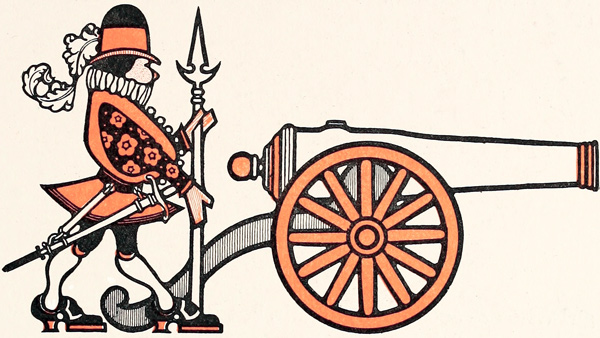
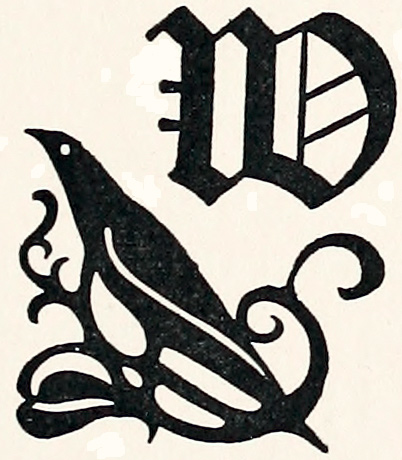 HEN
the little Messenger from Peter Poodle
arrived in Toyville, he went at once to the
residence of the Mayor.
HEN
the little Messenger from Peter Poodle
arrived in Toyville, he went at once to the
residence of the Mayor.
“You have a message from Mr. Poodle,” said the Mayor, as soon as he had shaken hands with the Messenger. “You are most welcome to our city; and we are glad, indeed, to receive any word our good friend Mr. Poodle has to send us.”
While the Mayor was reading the message he grew very excited. “You must excuse me,” he said to the Messenger. “Just make yourself comfortable, and at home. This is a very important word you have brought me, and I must {56} assemble my councillors. Our city will be greatly honored by a visit from such a renowned toymaker as Mr. Poodle. And, at the same time, to have a visit from the boy and girl who are accompanying Mr. Poodle, that, dear sir, is an occurrence of the utmost importance, and one for which, I am sure, my councillors and the Lords and Ladies of the realm will wish to prepare an exceptional welcome.”
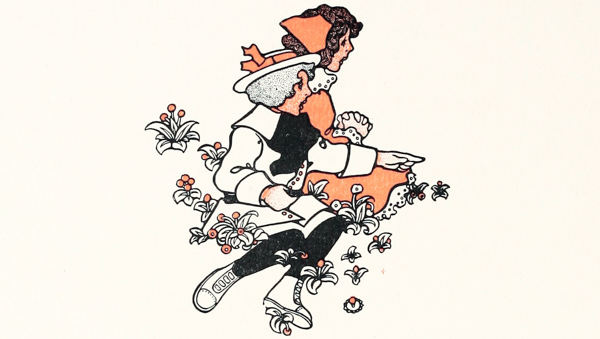
There was now much excitement in the council room, and soon the Heralds were sent speeding here and there throughout the city to warn the people of the approaching visitors. The lack of time to make plans did not prevent their being made thoroughly. What these plans were, we shall see presently.
As for Mr. Poodle and his little companions, when their journey had brought them about half way down the curly road, they came to a place where there was a little lane, or grassy opening in the trees. {57}
Mr. Poodle said: “Run down this lane and take a peep out through the trees over the edge of the hill.”
Helen and Tommy did as Mr. Poodle had suggested and soon reached the end of the lane, where a look-out could be had over the brow of the hill. Never before had they seen such a wonderful sight, for below in the valley lay as handsome a little city as was to be found in all the world.
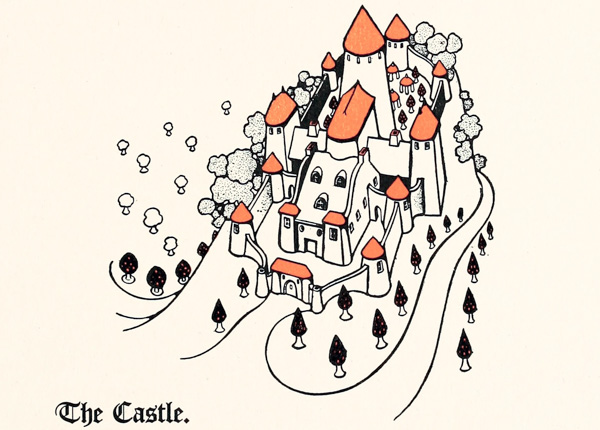
In the foreground could be seen a beautiful lake, and sailing on its crystal waters were all manner of lovely boats with pennants waving and flags flying. Entering the lake, at its upper end, hidden here and there by overhanging trees, was a curly, twisting river. At the lower end of the lake there tumbled a dashing, foaming waterfall, beside which rumbled the wheel of a quaint little mill. {58}
Mr. Poodle, who now stood back of Helen and Tommy, said that in the quaint little mill there lived the jolly little Miller of Dee, who all day long ground barley corn to feed the barley animals they had seen in the pasture up on the hillside. Helen and Tommy could hear the wheel mumbling very plainly and could even hear the mill grinding. “Look,” said Mr. Poodle, “there is the little Miller of Dee!” And sure enough, there he stood in the doorway, the long smock upon his back, and the cap upon his head, powdered thickly with barley dust.
All about the edge of the lake there was a turned over marble rim, and every little way along this rim, were pots and vases in which grew flowering shrubs and plants, laden with beautiful blossoms. Here and there had been built wide stairways, leading down to the very edge of the water, and in one place there was a long pier standing on carved and turned posts painted in pretty colors. On a gate, at the entrance to this pier, were letters which Helen and Tommy could see, and with much difficulty spell into words: these read—“Royal Boat Landing.”
Back of the lake the land was rolling and wavy, like little hills. On these hills there were some fine houses, all set about with trees, and each one having at its side, or in the front, or back, a beautiful flower garden. There were so many of these gardens everywhere, that it was easy to see that the people were very fond of pretty flowers and delighted in having them about their homes.
Precisely in the center of the city was one little hill higher than all the rest, on the tip top of which loomed a beautiful castle, circled all about with high walls and topped with crimson towers. {59}
People could be seen hurrying to and fro in the streets. They were all as nice looking people as one would ever wish to see; in fact they seemed just like toys, only much bigger; as big indeed, as Helen and Tommy. All of the houses, the boats and even the fine castle on the hill looked like toys too, only ever and ever so much larger.
“How do you like this sight?” asked the little toymaker. Helen and Tommy were so excited and so full of wonder that they were unable to find a single word to put on their tongues so they could answer.
Mr. Poodle was not a bit fooled by their silence, though, for being a very clever man, when he looked into their eyes, he could see them brimming full of joy, so much, that it was almost bubbling out and running over. That made it easy enough, then, for a clever man like him to see that they thought everything just fine.
Of course Helen and Tommy could have said those words to Mr. Poodle, only they wanted to find bigger ones. But Mr. Poodle was not even one tiny mite provoked at their not answering his question, for he thought it much nicer to read such a happy answer in their eyes. “Come,” said Mr. Poodle, “it is time to be going! We have passed through the Hills of Troubleland and entered the Vale of Joy and the Valley of Happiness; we are now almost in Toyville.”
“Toyville! Toyville!” cried Helen and Tommy, dancing with joy. “Hurrah for Toyville!”
Then from the roadway came the happy cry of Captain Pinkle and Captain Poddle and all their soldiers.
The last of the cheer had hardly finished echoing in the hills when there came an answering cheer from down the road, and presently, turning a bend in the road, the little company came into a beautiful park at the foot of the hill and found it thronged with the happy Toy people.
The Mayor quickly stepped forward and shook hands most cordially with Mr. Poodle. He said the Toy people were delighted and much honored in having such a famous toymaker come to visit them. After greeting Helen and Tommy and presenting Helen with a bouquet of beautiful roses, he introduced them to the Lords, Nobles and fine Ladies and Gentlemen that had come riding up on their prancing steeds, or in their handsome coaches.
As Helen and Tommy were talking busily with their new acquaintances, the Mayor stood a little to one side and eyed them critically. There was a happy, pleased expression on his face, and once or twice he nodded his head as if in profound approval of something. Then, in a low tone, so low that hardly anyone could hear him, he said: “We certainly acted wisely and have made a good choice; luck has come to us to-day, and if I am not much mistaken, it means ill luck to our enemy—the King of Grumbletown.”
Although the Mayor had mumbled these words barely above a whisper, there were two in that gathering who heard what was said, and not only heard the words but understood what they meant.
The first of these two was Mr. Poodle. Of course it was all right for Mr. Poodle to hear what the Mayor said, and the twinkle that jumped about in his eyes showed that he thought a fine surprise awaited Helen and Tommy. {61}
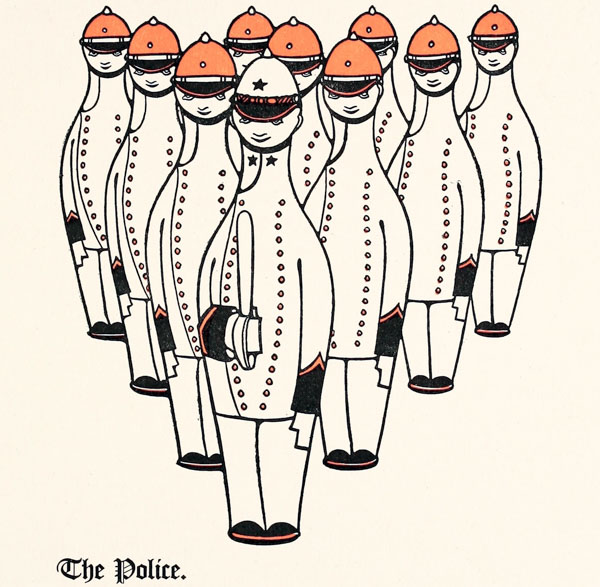
The other one who heard was a tall man, wearing a broad brimmed hat with a long plume. People called him Long Jim, but did not know him to be the most clever courtier in all of Grumbletown and the craftiest spy that King Redbeard had ever sent to Toyville. Not only did this man understand what the Mayor had said, but by his sly ways he managed to ask of Peter Poodle’s people a question here and another there, until finally he had {62} a complete account of what had happened to the three Buccaneers. A cunning smile then twisted up the corners of Long Jim’s mouth, for he thought: “These people think they have made fine plans to get ahead of the King of Grumbletown, but they have reckoned without Long Jim. I will show them a thing or two that will knock their plans topsy turvy.”
There was now so much noise that Coal Black and Snow White began to get quite wild and skittish. The two noble steeds danced about and showed their fine mettle; but Helen and Tommy sat so firmly in the saddle, that all the people gave them a long cheer for such a fine exhibition of riding.
The Mayor looked at this performance with wonder, and said to Mr. Poodle that he did not think the equal of that riding could be found in all Toyville, even among the most skilled soldiers at the barracks of the cavalry. Then he invited the toymaker to ride in his carriage, and, bidding Captain Ten Pin of the police to clear the way, the procession started for the city.
One remained behind, however, and went hurrying up the road in search of the three Buccaneers. This was the man with the big hat, the crafty courtier, Long Jim.

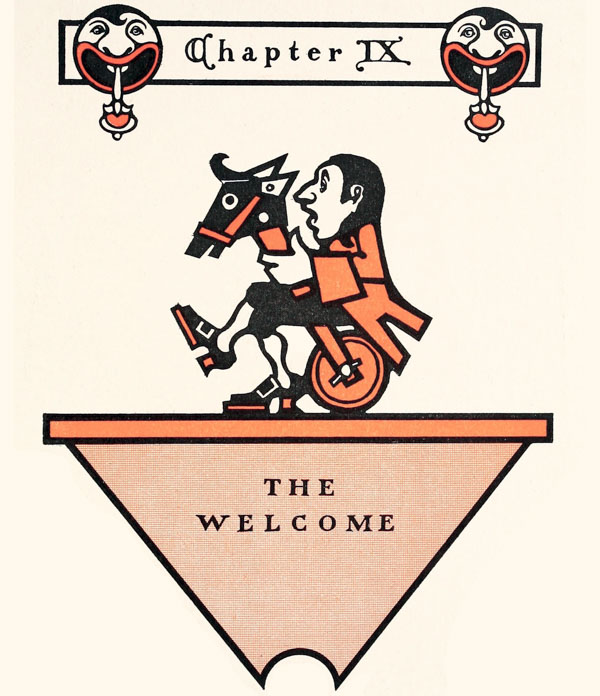
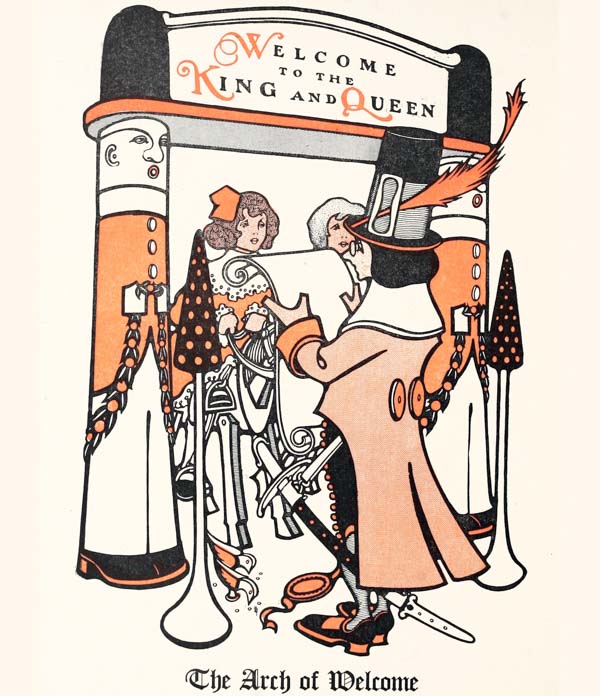
The Ninth Chapter.
Of a Royal Welcome. Also of a Most Marvelous and Extraordinarily Wonderful Entertainment.
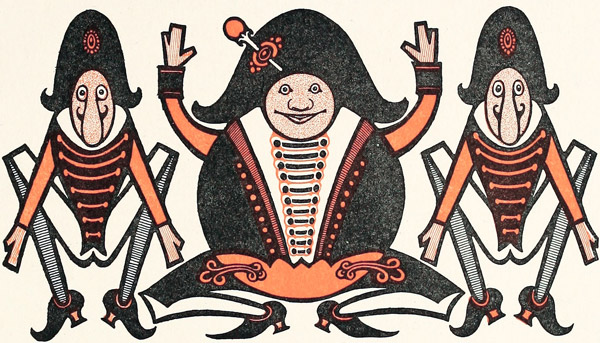
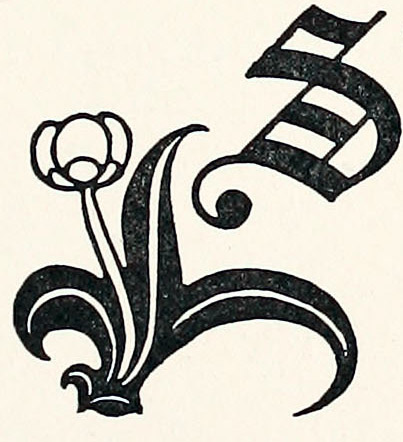 O great was the joy of the Toy people lined
along the way that cheer upon cheer greeted
Tommy and Helen as they drew towards
the city.
O great was the joy of the Toy people lined
along the way that cheer upon cheer greeted
Tommy and Helen as they drew towards
the city.
At the entrance to Toyville there was another gate, similar in design to the one at the top of the hill, only quite a little larger and flanked with tall red capped towers in which were windows and portholes, quite the same as in a fortress. On each side of the gate were huge brass cannons. The Toy people did not really expect any enemy to attack their city on this side, fearing only the King of Grumbletown, whose realm lay {66} beyond the hills at the far end of the valley, but they built the gate with towers in such a formidable way, thinking to thus make a more impressive entrance to their city.
The procession now approached the center of the city by a long avenue which terminated at a beautiful park.
Around the other edge of the park were ranged line after line of soldiers, both infantry and cavalry, in uniforms of scarlet and gold, and black and gold, with officers all in white and gold; the bridles and saddles of their chargers being richly studded in silver and colored enamels.
At the entrance to the park there stood a great arch of wonderful design. Across the top of this arch in tall letters of black, with great curly capitals of red, was painted: “Welcome to the King and Queen.”
As Tommy and Helen rode their dancing, prancing horses beneath the Arch of Welcome, there was a mighty blast by the buglers followed by roar upon roar from a great firing of cannon. Then the officers waved their swords and the soldiers and people broke into one wild glad cheer, while from all over the city could be heard the joyous peals of ringing bells.
Presently a Herald rode forward and blew three mighty blasts upon his bugle. Then he cried: “O, ye people of Toyville, give ear and hear the words that have been written for ye in the great parchment!”
As soon as the Herald had said this, there stepped up two Pages, bearing between them a great scroll of parchment, from which hung many red ribbons and seals. Behind the two Pages there came a man dressed in a coat of scarlet, with a long sword at his belt, and a tall hat upon his head. {67}
The Pages now unrolled the scroll; on it were many letters of black and red and gold. The man in red put on his big spectacles and in a loud voice he read:
“Know all men by these presents, that whereas the Realm of Toyville has been many years without a ruler, it is decreed that there shall be appointed and crowned, a King and Queen. Therefore, be it now known to all men, that the people will have no other to rule over them than he who across the big hills is called Tommy, and the maid who bears him company and is called Helen. These words were here written down, and signed and sealed by the High Council of the Realm of Toyville.”
Then the man read the long list of names that were signed to the parchment, and fine and high sounding names they were, too.
When he had finished, he turned to the people, and in a loud voice cried out: “Hail to King Tommy! Hail to Queen Helen!”
“Hail to King Tommy! Hail to Queen Helen!” the people repeated; and then together in chorus they shouted: “Long reign King Tommy and Queen Helen!”
At the completion of this impressive ceremony and when the people had ceased their glad cheering, the Mayor stepped forward, and, bowing with much courtesy and grace, informed their Majesties that if they would be pleased to dismount, it would be his pleasure to conduct them to the Royal Seats, which had been prepared at the other side of the park.
When the Mayor had finished speaking, two Pages approached and held the bridles of Coal Black and Snow White while the King and Queen dismounted. {68}
The Mayor now walked with their Majesties across the park to directly opposite the Arch of Welcome, where had been erected a high platform, beautifully decorated with garlands of laurel leaves, intertwined with beautiful flowers, and on which was the Royal Seat.
The Mayor again bowed most courteously.
“Your Majesties,” he said, “we have prepared for your special pleasure and enjoyment, and as a slight token of welcome, some of the fine games and sports for which our people of Toyville are so famous.”
“We thank you for the honor you have shown us,” responded King Tommy. “My gracious Queen and myself will be pleased indeed to watch the games of our beloved subjects.”
The Mayor was exceedingly happy at these words of the King; he quickly turned to the waiting Herald and waved his staff, this being the sign that the entertainment might begin.
The Herald now blew three mighty blasts upon a bugle and cried: “Let the games commence!”
Of course, Tommy and Helen were greatly surprised at being made King and Queen. Mr. Poodle was not surprised, though, and he said that the people were certainly fortunate in having made such a wise choice. He was sure too, that Tommy and Helen would make a splendid King and Queen, and he predicted that their reign would prove a happy one.
“Yes,” said the Mayor, “it certainly will if trouble does not come from the people of Grumbletown.”
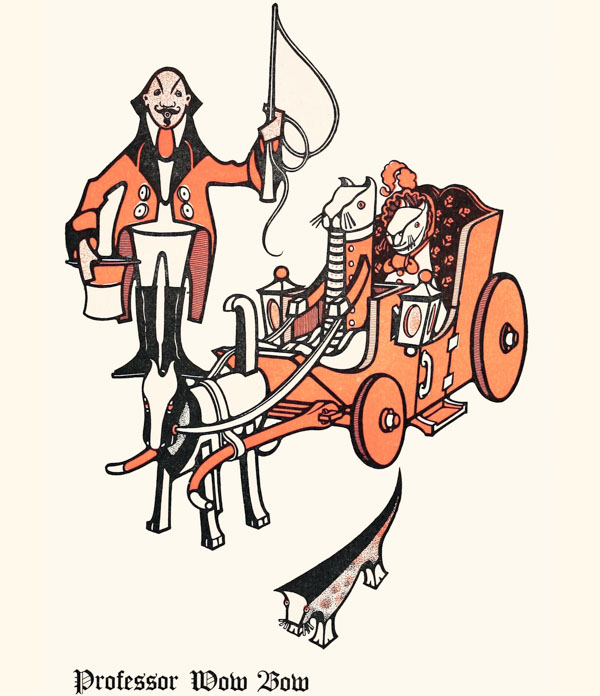
Tommy could see that the Mayor seemed quite a little worried about what might be done by the Grumbletown {70} King, and was going to ask him if he feared any immediate trouble. Before he had time to do this, however, the games began, and proved so interesting that both Queen Helen and he had to spend every minute watching them, and could think of nothing else.
From the first number on the program, which was a grand parade, consisting of a long procession of elephants, camels, lions, tigers and nearly every animal of which one could think, led by a fine band and followed by numerous gaily plumed horses and chariots, up to the last when the Master of Ceremonies introduced Professor Wow Bow and his marvellously trained dogs, the entertainment proved one long delight. There was bareback riding, then came feats of tumblings, performing Jacks, funny Clowns, and every other act of which one might think.
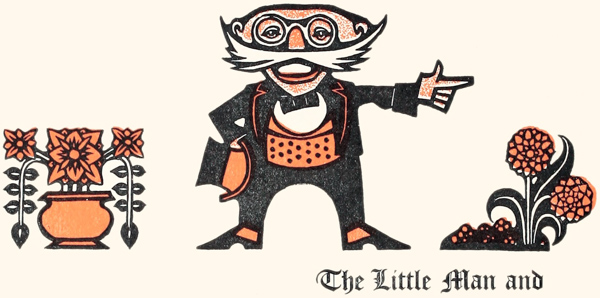
The little man with a funny pig made Tommy and Helen laugh so much that they almost had to cry; or at least, they had to wipe tears out of their eyes. {71}
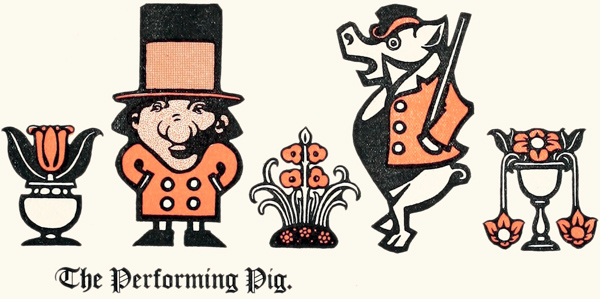
Rolie Polie watched the tricks of the clowns with much interest, and, although he laughed and applauded generously, yet it was very apparent that he thought his own tricks to be quite superior. “They should have a donkey to ride,” he said to the Miller of Dee, who chanced to be standing near him. “Now-a-days, we clowns always have a donkey. When the games are over I will show the people one or two new tricks that will be thought comical.”
So interested were the people in the performance that but few of them noticed the entrance into the park of three men, wearing long coats which were bound about with broad belts and fastened with big buckles. They were accompanied by a man in a long red coat, who, after a moment’s whispered conversation, left them.
These three men now went to the Master of Ceremonies, and, bowing to him, the tall one said: “We are strolling Musicians and we desire to play one of our famous tunes for their Majesties.” {72}
“So, you want to play to the King and Queen, do you?” asked the Master of Ceremonies. “Well, what tune can you play?”
“Oh we play upon horns,” answered the big one, poking the end of the instrument out from under his coat.
“That looks more like a big pistol,” said the Master.
The Musician started at these words, but presently recovered himself and showed the Master all of the instrument which in very truth proved to be no more than a big horn.
The Master did not like the looks of the men’s faces and was suspicious of their not being all that they pretended. Nevertheless, he saw no harm in allowing them to play, and so led the way across the park to the King and Queen.

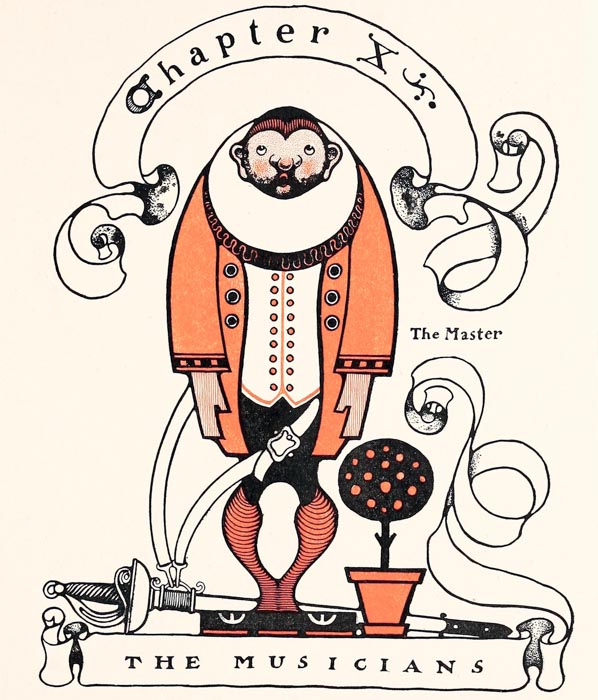
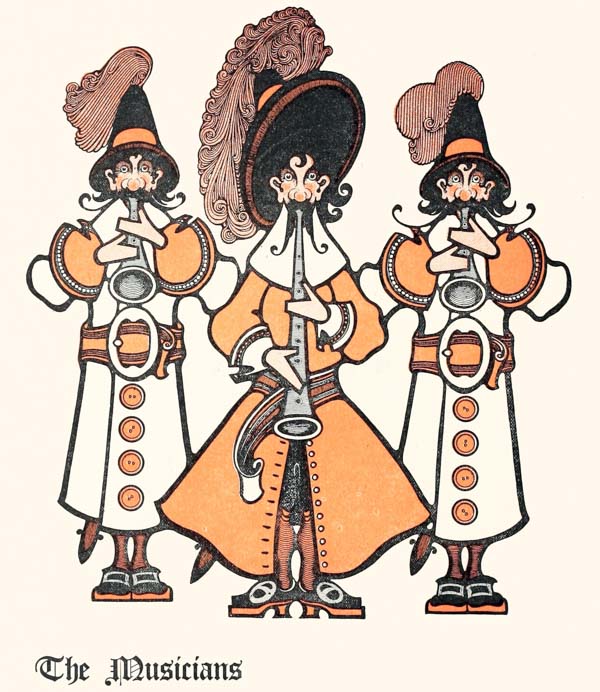
The Tenth Chapter.
How Three came to Play a Tune for the King & Queen. And of how the King was not pleased with the Music. Also more about Rolie Polie.
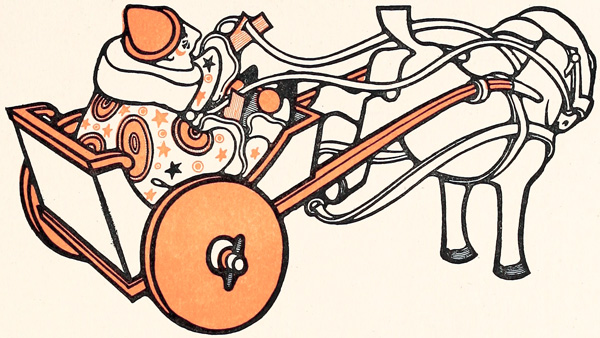
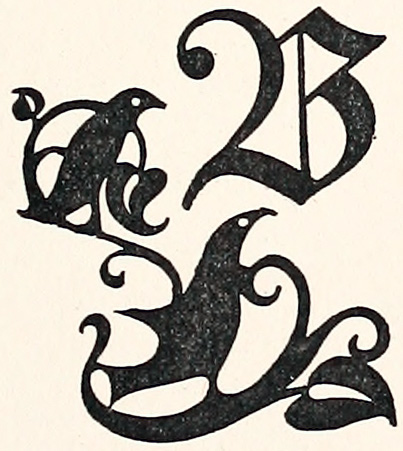 Y
the time the three Musicians appeared before
the King and Queen, the entertainment
was at an end, and only the few people
who waited to see the donkey riding of
Rolie Polie remained in the park.
Y
the time the three Musicians appeared before
the King and Queen, the entertainment
was at an end, and only the few people
who waited to see the donkey riding of
Rolie Polie remained in the park.
Upon Mr. Poodle hearing that Rolie Polie proposed to give a performance, he hurried off to find the little clown, and put an end to his plans. “There is no telling, your Honor,” he said to the Mayor, “what that little clown of mine may do; he is apt to be up to all kinds of tricks, and if he once gets astride his donkey and tries to perform in this park, something serious is sure to happen.” {76}
When the Master of Ceremonies told the King about the three Musicians, King Tommy said: “So three strolling players have come! well, that is good. We will hear what kind of music they can play. Bid them tune up and say to them, we are listening and desire the best selection which they know how to render.”
The Master delivered the King’s command. Then the three whispered together, after which they made believe to tune their instruments, and began to play.
Well, perhaps the three were Musicians and perhaps the noise the horns made was called music, but it sounded no better than the howling of three cats; indeed, it sounded even worse.
“Hold!” cried King Tommy, as he placed a finger in each ear. “Stop, stop, we have had enough of that music! If there is no other tune you can play better than this one, you had best be going, for we can’t stand any more.”
“There is another tune we can play!” cried the big one; and quick as a wink he and the other two threw away their horns and thrust their hands under their coats.
Now what tune it was the three Musicians were going to play, I can do no more than guess; for no sooner did they get their hands inside their coats, than around the corner of a booth came Rolie Polie, driving his little donkey in a white and red chariot. The tooting of the horns had been too much for the donkey, and now the little clown could do nothing to check its wild gallop as it tore past the people and straight towards the three Musicians. One loud bray it gave; then a kick to the right and another to the left, and down went all three Musicians tumbling heels over head in the dust. {77}
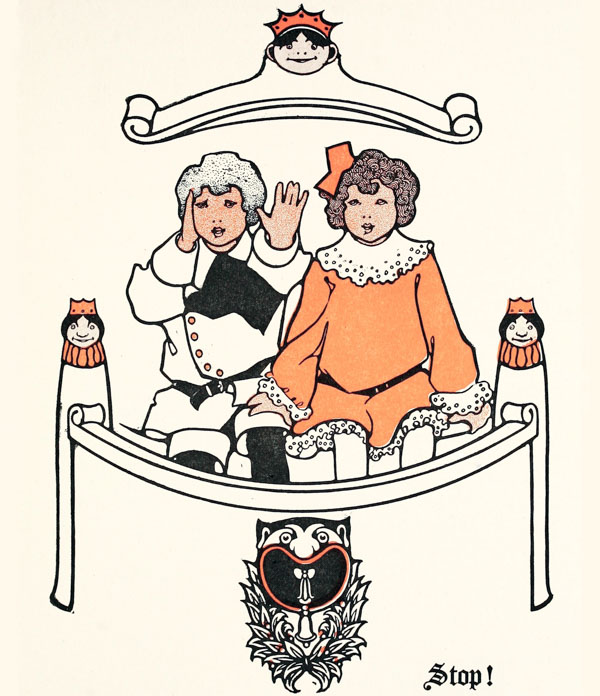
Musicians, did I say? Well, they were musicians no longer, for beneath the torn and tumbled coat of each there might now be seen a broad belt holding big pistols and a keen edged cutlass.
“The three Buccaneers from Grumbletown!” yelled the Mayor. “Capture them quickly!”
Big Bill was on his feet in a moment. “We are discovered, we are discovered!” he cried. “Every man run for his life!”
Hardly were these words off his tongue, when the three were scurrying across the park and had no sooner reached the Arch of Welcome, than two of them bounded to the back of Coal Black, while Big Bill jumped into the saddle of Snow White, and away they rode like the wind.
The captain and soldiers followed quickly, but there was no chance of the Buccaneers being overtaken, for not a horse in Toyville could ever catch Coal Black and Snow White, even with Coal Black carrying double.
“Which way did the Buccaneers ride?” asked Tommy of the captain as soon as the soldiers returned.
“Your Majesty,” answered the captain, saluting the King, “they are headed for Grumbletown.”
“Grumbletown?” cried the Mayor. “Then we must look for trouble: Their King will probably declare war.”
“We must post our guards and call out the army,” said King Tommy. “If the King of Grumbletown makes an attack, he will find us ready.”
“Is there danger of war, Tommy?” asked Helen, who had been listening to the talk of the King and Mr. Poodle. “Because if there is, I think I would like to go home again. I don’t like battles.” {79}
“Don’t be afraid,” said Tommy. “You can go up to the Castle and stay; nothing will harm you there, and it won’t take me long when I have the Toyville army at my back, to defeat the soldiers of Grumbletown.”
Helen could see quite plainly that the Mayor and the captains liked to hear their King talking that way, and thought him very brave. She thought Tommy was brave too, when he spoke all those big words; so she said: “May we go up to the Castle now, Tommy?”
“Yes,” said Tommy. “Mr. Mayor will you please lead the way?”
“I will be glad, indeed, to do so” answered the Mayor; “and in any event, I think the people at the Castle are ready, by this time, to serve their banquet.”
“A banquet?” said Helen. “Are we to have a banquet? Won’t that be lovely!”
This was the second time Rolie Polie’s tricks had proved lucky for everybody, and it made the little clown quite a hero. But, although, he received an urgent invitation to attend the banquet at the castle, he preferred to stroll about a little with the Miller of Dee, who had invited him to see the sights of the town, and later to luncheon at the Barley Mill.
King Tommy at first was not inclined to give his consent to this plan, for he had been seriously considering a reward for Rolie Polie, which he intended bestowing at the banquet. Thinking the reward could wait, however, he gave the desired permission.
Then the King and Queen stepped into the royal coach, and followed by the Lords and Nobles, who also were in fine coaches, started for the Castle. Out of the park they {80} went, along the broad boulevard, past the barracks of the cavalry, and on through winding, shady streets; coming at last to the gateway at the entrance of the Castle Park.
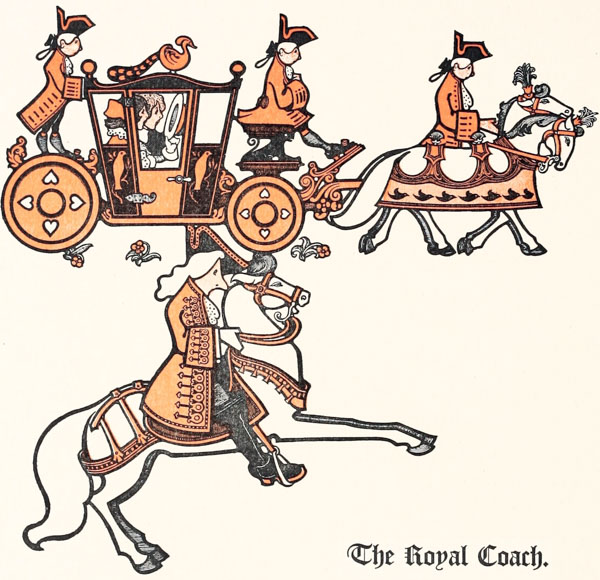
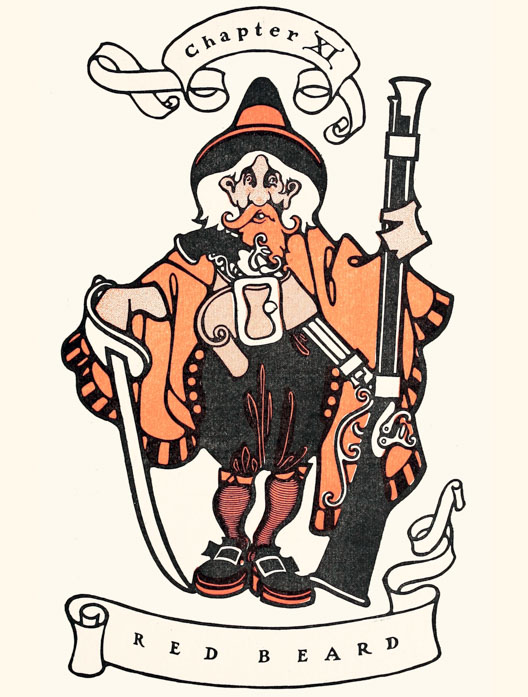
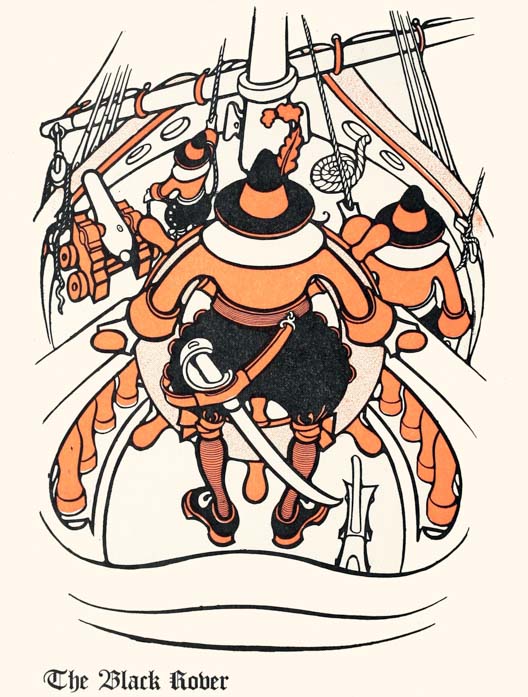
The Eleventh Chapter.
How the crafty King of Grumbletown learns of Happenings in the Realm of Toyville. Also of the Laying of New Plans. And of the Black Rover.
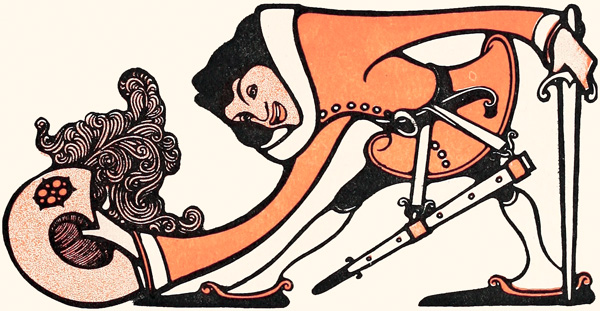
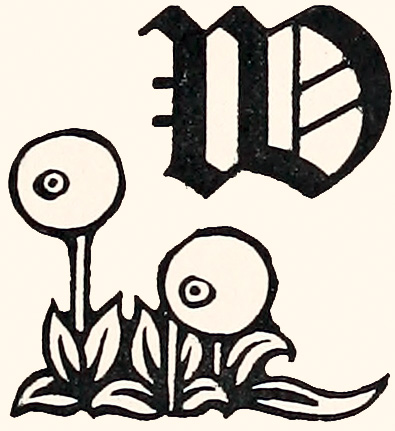 HEN
the Buccaneers arrived in Grumbletown
and Red Beard heard what they had
to tell, he began to make new plans. “Yo, ho,
my husky lads!” said he; “so the boy King
of Toyville wasn’t clever enough to capture
you, was he? You hoisted sail and made a
safe passage out of the harbor, did you? Well these are
two fine craft you have brought along, and no mistake
about that; we will find safe anchorage for them in our
own city of Grumbletown.”
HEN
the Buccaneers arrived in Grumbletown
and Red Beard heard what they had
to tell, he began to make new plans. “Yo, ho,
my husky lads!” said he; “so the boy King
of Toyville wasn’t clever enough to capture
you, was he? You hoisted sail and made a
safe passage out of the harbor, did you? Well these are
two fine craft you have brought along, and no mistake
about that; we will find safe anchorage for them in our
own city of Grumbletown.”
Red Beard meant Snow White and Coal Black, when he spoke of the two craft. He talked in that way to the {84} three Buccaneers, because once having been a pirate captain, that is the kind of language he liked best to use.
After a few minutes of thought, Red Beard spoke again.
“Listen, my hearties,” said he, “I have a new scheme to unfold to you. We can’t afford to have a boy and girl ruling in Toyville. Do I speak the truth, now?”
“Aye, aye, aye!” answered the three Buccaneers.
“’Tis well,” said Red Beard. “I see you are listening, and I say, ’tis well.” As he spoke, he tapped with his knuckles the butt of a pistol that was sticking out of his belt. “No, we can’t afford to let those Toy people have a boy and girl for their King and Queen. They will teach them too much skill and too many tricks, and soon make them so clever that it will mean the end of Grumbletown. Do I speak the truth, my bonny babies?”
“Aye, aye, aye!” answered the three Buccaneers.
“’Tis well, I see you listen,” said Red Beard; and again he tapped the butt of his big pistol. “Now I will give you my new plan: soldiers and cannon are all right for Kings that are used to ruling on land, but for a King that once was a pirate captain, give us a good smart ship and some stout rogues to man her, and that’s the way to win, say I. What ho, my hearties?”
“Aye, aye, aye!” cried the three Buccaneers.
“What do you say the King of Toyville will be doing just now?” asked Red Beard. “He will be eating his fine banquet up at the Castle with his Queen, won’t he? Well, then, now is the time to act, say I. Let someone go and spread the word in Toyville of a big battle, and tell the Toy people about how their soldiers have been attacked and how hundreds have been made prisoners.” {85}
“When the King and his Nobles up at the Castle hear of this, what will they do? What will they do, I say? Listen, my sea dogs, and I will tell you what King Tommy and his Nobles will do. They will mount their horses and ride out into the hills, and take all the soldiers with them. And how about Queen Helen? Will any soldiers be left at the Castle to protect the Queen? No, my husky darlings, no one will be left to protect the Queen. So, I say, now is our time to act; King Tommy and his soldiers will be too clever for us; we can’t fight them, but we can capture the Queen, and after that it won’t take long before we can strike up a bargain with the King. Are you listening, my three little lambs?”
“Aye, aye, aye!” cried the three Buccaneers.
“But,” grumbled Red Beard, as he took a hitch at his belt and let his sword jingle against the barrel of his pistol, “when we are rid of the King, how are we going to find a way to capture the Queen? that’s what I say. How are we going to capture the Queen?”
No one answered for almost a minute. Then Long Jim stepped into the room; the crafty courtier had arrived just in time to hear the King’s question, and, being a clever one, this is the way he answered:
“If our noble King will permit me to speak, I will tell the Buccaneers the plan I think our noble and kind King was about to unfold to them.”
“You may tell them my plan, old Oily Tongue,” replied Red Beard, for that is the name he had for Long Jim.
Of course, Long Jim knew the King didn’t really have any plan, and he just pretended, when he offered to tell what it was, because he thought that would please Red {86} Beard, who wanted to be thought very clever. Red Beard, however, knew the smooth ways of Long Jim, and that is why he called the crafty courtier “Oily Tongue.”
“Most kind and gentle Buccaneers,” said the courtier, “the King’s plan is this: he wishes you to take your pirate ship, the Black Rover, and sail through the River into the Lake at Toyville, where you are to await developments. Before night comes, you will have the Queen captive.”
“Aye, aye, aye!” answered the three Buccaneers, marching off to their ship, in which they soon were sailing down the river towards the Lake of Toyville.
After the departure of the three Buccaneers, Long Jim and Red Beard put their heads together, and to everything Long Jim said, the King kept nodding approval, until in the end, Long Jim bowed good day to Red Beard, and putting on his feathered cap, he too, set forth for Toyville.
Travelling through the hills by a secret passage, Long Jim reached Toyville and entered the city without its once being discovered that he was one of the enemy. As he went through the streets, he stopped to speak first to one person and then to another, dropping a word here and there, which very soon made the people turn pale with fright and hurry into their houses, where they quickly barred both doors and windows.

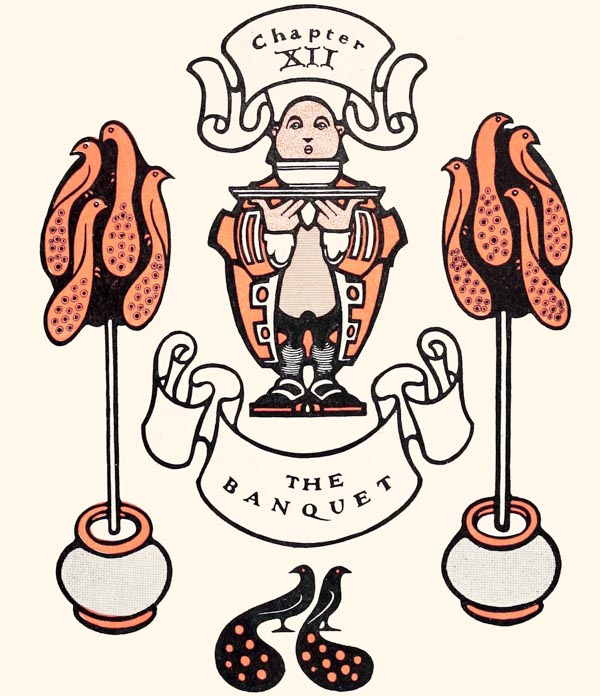
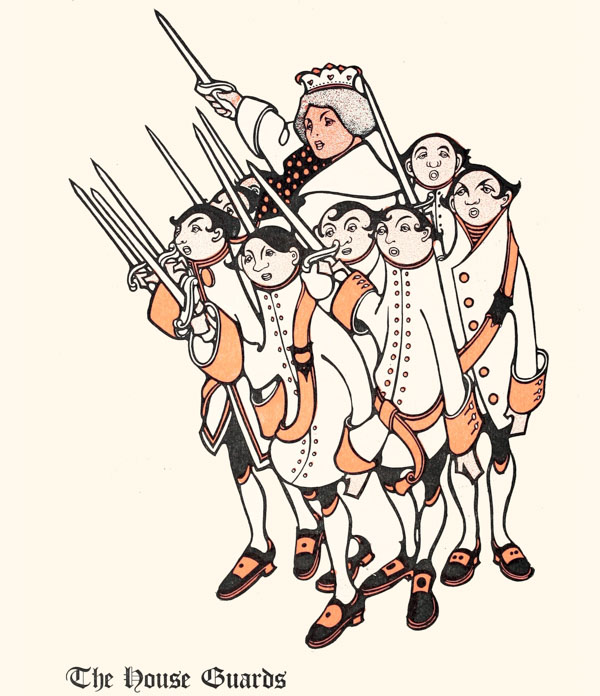
The Twelfth Chapter.
In which something is told of the fine Castle on the Hill, where is held the Royal Banquet. Also of an Alarm that interrupted the Glorious Feast.
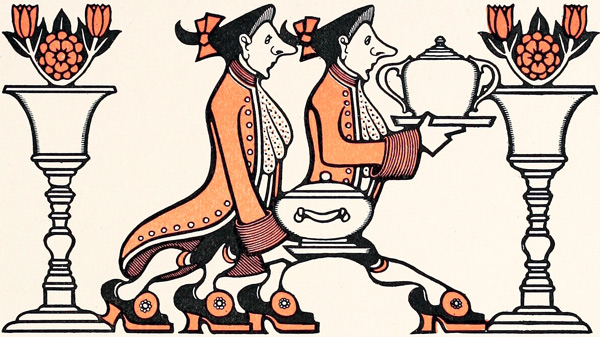
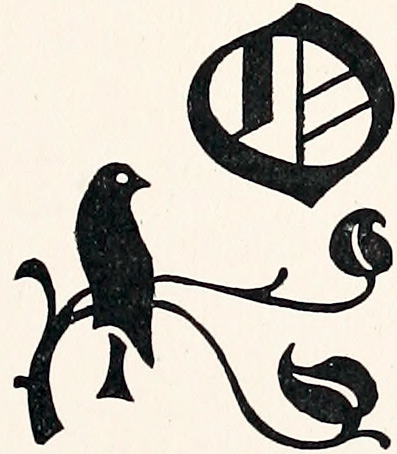 N
reaching the Castle Tommy and Helen
had been filled with surprise and wonder
at its marvellous beauty. The decorations
were all so rich and so appropriate, that
they could not refrain from expressions of
the warmest admiration. The Lords and
Ladies, too, said they had never seen anything quite so
beautiful.
N
reaching the Castle Tommy and Helen
had been filled with surprise and wonder
at its marvellous beauty. The decorations
were all so rich and so appropriate, that
they could not refrain from expressions of
the warmest admiration. The Lords and
Ladies, too, said they had never seen anything quite so
beautiful.
The Prime Minister met the King and Queen, and when he had presented them with the Castle, in the name of the happy people of Toyville, he announced that the banquet was ready to be served. {90}
After the King and Queen had changed their dusty, travel stained clothes for the pretty robes that had been prepared for them, the Lords and Ladies, led by their Majesties, entered the Royal Dining Room, where were a number of little tables laden with all manner of good things. Here the decorations were even more beautiful than in any other room of the Castle, and when the company were seated in the quaint chairs at the tables and partaking of the fine banquet that was served for them, one and all felt that in no way could they have been blessed with a more gracious Queen, or a more perfect hostess.
The first course, as it always should be, was ice cream, served in many fanciful shapes and of the most delicious flavors. With the ice cream there was served cake—light, feathery and perfectly cooked; with just the right amount of egg, not a bit too much sugar, and flavored to the point of nicety.
There were many kinds of cake served, so that everybody might have the special kind which was best liked. After the cake course, there were cream puffs, luscious eclairs, thin, delicate sugar wafers, candies, fruits, nuts and every dainty confection which could be imagined.
The Queen, remembering what she had been told about the candy fruit in the orchard, that it wouldn’t make them ill, as city candy did at home, very thoughtfully told her guests that each might have two helpings of everything, or even three, or four, if they desired.
Mr. Poodle, thinking it would be a rare treat to the Toy people to have something from the city over the hills, reminded the Queen of the chicken sandwiches and the {91} two rosy red apples. He said these had come safely through the hills, and had been delivered at the Castle by the driver of the express wagon.
The Queen hurriedly sent for the sandwiches and the apples. When these were cut up and served to the guests, everyone spoke of them in the highest terms of praise, and said that never before had they tasted quite such a nice dessert.
It was as plain as it could be that everyone had spoken the truth, for when the banquet was finished, not as much as one single crumb of the dessert could be found on the plates.
During the progress of the banquet, Long Jim, as we already know, had been busy spreading his news in the streets of the city.
It didn’t take long for this news to travel, I can tell you; and just as the King and Queen and their guests were about to rise from the tables, there was a big commotion in the Castle; and through the open windows were heard the cries of alarm in the town.
Then the Major Domo came hurriedly into the Royal Dining Room and announced that the city had been attacked by the army of Grumbletown.
As may well be imagined, there was now great excitement in the Castle, and especially, among the Ladies. The Queen turned anxiously to the King. “Is there going to be a war?” she asked, “because I don’t want a war; battles are awfully scarey.”
“Don’t be afraid, Helen,” said King Tommy. “Nothing will harm you. It won’t take us long, with the fine army of Toyville, to drive the enemy out of the hills and back to {92} their own Grumbletown.” Then mounting a chair, and being quickly surrounded by the House Guards, he cried: “There is no time to be lost; every man will be needed among the defenders to-day; let every man buckle on his sword and follow me!”
The Mayor also jumped up on a chair. “A cheer for Toyville!” he cried; “long may it prosper! Three cheers for our brave and noble King; long may he reign!”
Everybody joined in the cheering, the sweet voices of the ladies mingling pleasantly with the strong, lusty shouts of the men.
But no time had been lost by the cheering; for all the while the attendants were busy buckling on the swords and fetching helmets and shields. Meanwhile, the neighing and stamping of horses in the court outside the Castle, indicated that the grooms also were busy, and already had the strong, noble steeds waiting for the brave and fearless riders.
When the King and his companions reached the streets, they found everything in commotion, with brave soldiers galloping here and there, and frightened faces peering out of the windows of the houses.
“Ha, ha, ha!” chuckled Long Jim when he saw the King
depart; “I tell you, I am a clever one! That’s the time I
fooled the King of Toyville! And now there is no time to
lose; the Queen is in the Castle without any guards, and
the three Buccaneers in the 
 will be waiting
out on the lake.” With his face twisted in a wicked grin
the crafty courtier now entered the gates and went through
the quiet, deserted court yard, where presently, with a rap,
tap, tap, he stood waiting at the front door
of the Palace. {93}
will be waiting
out on the lake.” With his face twisted in a wicked grin
the crafty courtier now entered the gates and went through
the quiet, deserted court yard, where presently, with a rap,
tap, tap, he stood waiting at the front door
of the Palace. {93}
Meanwhile, King Tommy and his companions rode to the barracks of the cavalry. As might have been anticipated, it took hard, quick work to get out all the soldiers, cannons and ammunition wagons, and to issue orders so that everything would go smoothly. But the King was equal to the task, and before long, the sound of galloping cavalry, tramping infantry, and rumbling wheels of cannons and ammunition wagons, told the frightened Toy people that the troops were hurrying off to the hills and to the defense of the realm.
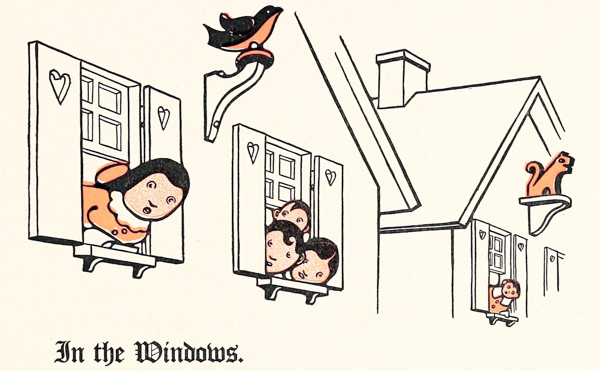
When King Tommy had issued all his orders and arranged every little detail, he mounted a fine war horse, and asking Mr. Poodle to ride with him, the two with the King’s Guards set forth at a fast gallop for the front. But {94} when they came to the hills where the horses were obliged to walk, the King found time to do a little thinking. The most he had to think about was the coming battle, but some of the time he thought of Helen, and wondered if she would be frightened upon hearing the cannon roaring, and if she would really be safe in the Castle. He wished now that he had left more guards at the Castle. “I will be glad,” he thought, “when the war is over, and I can go back again to Helen.”
The roads were now one mass of hurrying troops, all in bright colored uniforms, with the sun glistening on the polished gun barrels and on the officers’ swords. The King noticed how willingly the big horses tugged at their heavy loads, and how the drivers never used their whips, but always spoke kindly to them.
Upon reaching the front, they found many cannons mounted on the hills, and company upon company of soldiers waiting in battle array, but never a sign anywhere of the enemy.
“Have you sent out scouts?” asked the King to the Commanding General.
“Yes, your Majesty,” answered the General; “and all report that none of the enemy can be found.”
“That is strange,” said the King. “How about the prisoners, have you rescued them?”
“There have been no prisoners taken, your Majesty,” answered the General; “neither has there been any attack made upon our outposts.”
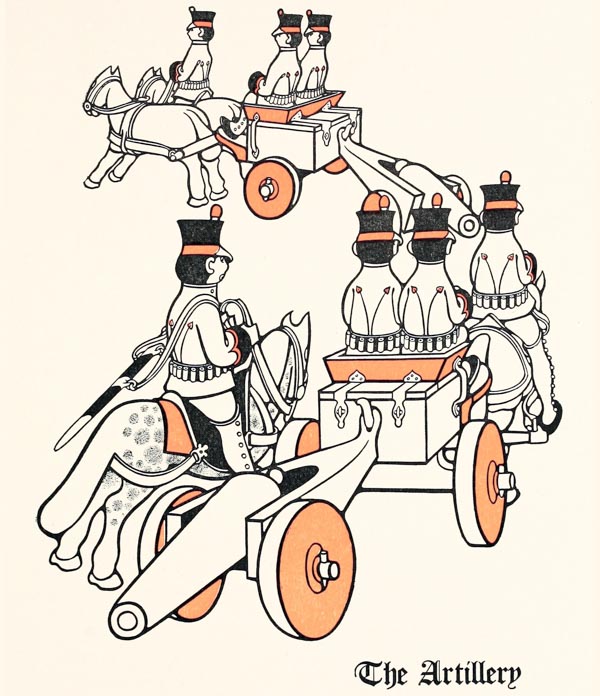
While the King and the General were talking, another scout came to report. “My General,” said the scout, “I have ridden to the very walls of Grumbletown, where I was {96} told by a peasant that the Grumbletown army has not ventured outside the gates of their city.”
While this scout was reporting, another came riding up as fast as his horse could gallop.
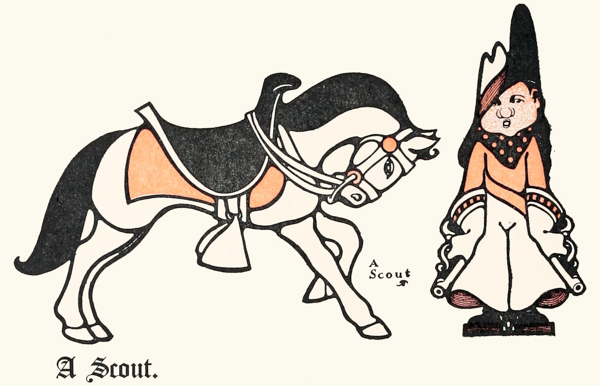
“My General,” cried the second scout, “I have come
from the high hills yonder. There is a ship entering the
Lake of Toyville. It is the pirate ship from Grumbletown,
called the 
 manned by the Buccaneers.”
manned by the Buccaneers.”
“We have been tricked!” cried the King. “We have left the Castle unguarded, and the Queen without protection. The Queen will be made captive! We must ride to her rescue!”
“To the Queen’s rescue! To the Queen’s rescue!” cried an officer of the King’s Guard; and, shaking the reins over their horses’ necks, a great company of riders led by the King and Mr. Poodle went galloping back to Toyville.
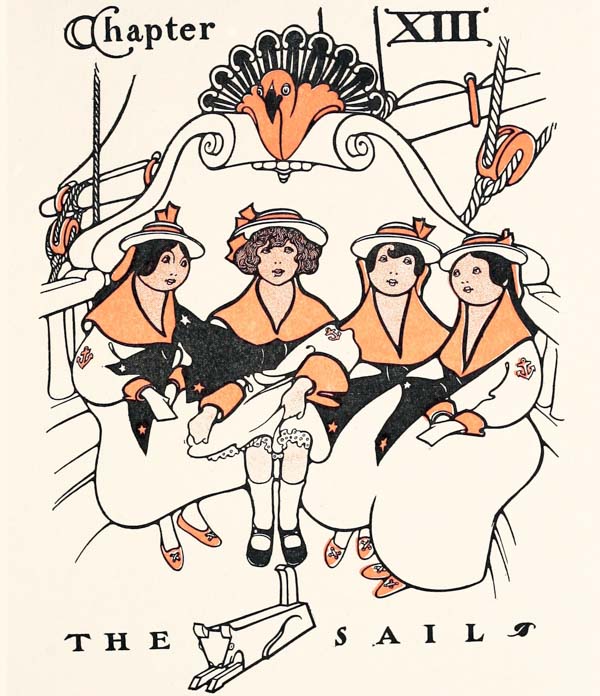
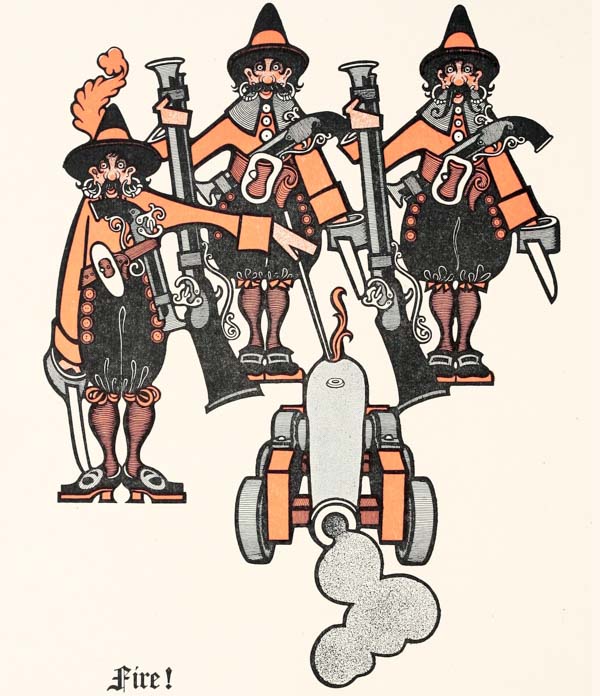
The Thirteenth Chapter.
Here the Crafty Courtier plays a clever Trick on Queen Helen and her Ladies. Here, too, is told of an Adventure with the Three Buccaneers.
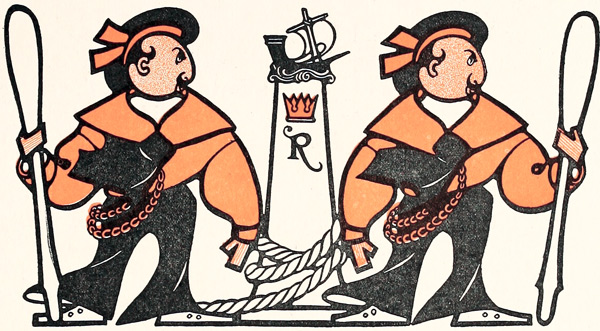
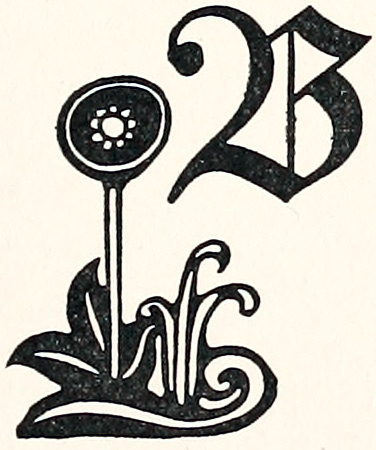 EFORE
Long Jim had time to give a second
rap, tap, tap, the front door of the Castle
opened and a servant in royal livery stood
ready to usher the crafty courtier into the
Audience Hall.
EFORE
Long Jim had time to give a second
rap, tap, tap, the front door of the Castle
opened and a servant in royal livery stood
ready to usher the crafty courtier into the
Audience Hall.
“You may announce to Her Majesty the Queen, that I come from the King with a very important message,” said Long Jim.
The servant departed. “Ha, ha, ha,” chuckled Long Jim, “I certainly am a clever one! I told the man to tell the Queen I had a message from the King, but I didn’t tell him it was from the King of Grumbletown; and he thinks it {100} is from his own King. He does not know what a clever one I am and how I can fool all of them, but he will find out very soon.”
“Her Majesty will give you an audience,” announced the servant, as he returned. Then, he conducted Long Jim to the Royal Parlors, where the Queen sat surrounded by her Ladies.
“Your Majesty,” said Long Jim, addressing the Queen, after taking off his hat and bowing courteously, “the King sends you greeting, and begs to inform you that the army of Grumbletown is being held in check and has even been driven back in some places. He wished me to say to you that there is no danger at present, and he hopes you and these noble Ladies will have a good time and enjoy yourselves. He suggests that you might find it a pleasure to go for a sail on the lake.”
The Queen was much pleased at this message. She clapped her hands and said: “O, I dearly love to go sailing! If it pleases the Ladies to do so, we will go at once.”
The Ladies said they certainly would enjoy taking a sail on the beautiful lake.
But though the Ladies spoke this way, all in truth were quite a little afraid, and wondered if it were wise for them to venture out of the Castle, with the army of Grumbletown so near the city; they were sure, however, the King would not have sent such a message unless he knew the outing to be perfectly safe.
When the Queen and her Ladies had gone to their
apartments to dress in their yachting costumes, Long Jim
took a careful survey of the room to see that there was
nobody near, then he broke into a villainous
laugh. “I have {101}
fooled them now,” he said. “King Red Beard will reward
me for this. I tell you, I am a clever one,—too clever for
these numskulls in Toyville! When their King comes
home and finds his Queen gone, won’t he tear around and
be angry though! And won’t he be twice as angry when
he learns she has been betrayed into the hands of the
Buccaneers of Grumbletown! Big Bill, the captain of the
Buccaneers, will say I am a clever one too, when he sees
the boat bearing the Queen and her fine Ladies sailing
away out on the lake. It won’t take Big Bill long to run his
fine ship, the

 ,
that flies the black flag, right
alongside of the Queen’s boat, and then in about two jiffies
he will have the Queen and her Ladies made captive. I tell
you I am a clever one to plan all this! Ha, ha, ha! yes, I
certainly am a clever one!”
,
that flies the black flag, right
alongside of the Queen’s boat, and then in about two jiffies
he will have the Queen and her Ladies made captive. I tell
you I am a clever one to plan all this! Ha, ha, ha! yes, I
certainly am a clever one!”
That was a long speech for the crafty courtier to make, and he had but little breath left when he finished, so that his laugh at the end didn’t ring nearly so loud as it did at the beginning. Lucky for his wicked plans that his laugh wasn’t so loud either, for he had hardly finished when he heard the Queen and the Ladies returning.
Bowing again very courteously, Long Jim said: “It is the King’s wish that I escort the Queen and the Ladies to the lake. Is this also the Queen’s wish?”
The Queen answered that the ladies and herself would certainly be pleased to comply with the King’s wishes, and, as it was yet early in the afternoon, she had no doubt that all would have a very pleasant sail, and thoroughly enjoy their outing.
Long Jim thanked the Queen and said he was sure the sail would prove very entertaining. {102}
When Long Jim said that, if the Queen had but glanced at his face, she would have seen an expression, sly and crafty enough to frighten her; for the entertainment which he meant was of a kind that would not prove very safe for the Queen.
The Queen, however, had no suspicions, so, telling Long Jim they were now ready to start, the little company left the Castle and set forth for the lake. Laughing and chatting merrily, with never a thought of danger, they came presently to the Royal Boat Landing.
Two trained sailors rowed them to the

 ,
now riding at anchor a little way from the shore. After
assisting the last Lady to step aboard, Long Jim ordered
the sail hoisted, when, a gentle breeze filling the canvas,
the trim boat cut a way through the silver tipped ripples,
and sped rapidly out on the lake.
,
now riding at anchor a little way from the shore. After
assisting the last Lady to step aboard, Long Jim ordered
the sail hoisted, when, a gentle breeze filling the canvas,
the trim boat cut a way through the silver tipped ripples,
and sped rapidly out on the lake.
Long Jim was such a good sailor that Queen Helen could not help remarking to her companions the pleasure it gave her to see the boat handled so skilfully. The Ladies said it pleased them, too, for now they felt perfectly safe and had not the least particle of fear of anything happening to cause danger, or to mar the enjoyment of such a nice afternoon, and such a delightful sail.
Long Jim chuckled to himself when he heard this conversation, for he thought, “I guess these Ladies would sing a new tune if they knew how this sail is going to end, and the Queen would certainly think I am a clever one if she knew how I have kept the boat headed right up the lake towards the river, and all the while with the sail set so not one of them can see that black pirate ship just beyond the bend.” {103}
But if Queen Helen and her Ladies did not see the pirate
ship, the Buccaneers saw their ship, and now ran up their
long black flag; and steering a course for the mouth of the
river, drew the sail taut, so as to catch every particle of
the breeze and went scudding out of the river into the
lake, laying their course straight for the

 .
.
“Down with the helm!” cried Big Bill. “Run out the cannon, take careful aim, I will touch the fuse, and we will put a round shot across their bow, that will make them stop, I think. Then we can run alongside and board their vessel. Every man to his post! There now, are you ready?”
“All ready!” yelled the two Buccaneers. “Fire!”
No sooner was the word uttered than there sprang from
the mouth of the cannon a flash of flame, followed by a
great puff of black smoke and a mighty rumbling roar, like
thunder. Then skipping through the water, not ten feet
before the bow of the

 went the big ball,
sending up sheets of spray which spattered the deck of
the yacht and even reached the little group seated in the
cockpit.
went the big ball,
sending up sheets of spray which spattered the deck of
the yacht and even reached the little group seated in the
cockpit.
The Queen and her Ladies screamed with fright, which certainly was no more than natural, for they were taken very much by surprise. Before any of them could utter one single word, Long Jim threw over the helm and headed the yacht into the wind so that in a moment it lost headway and drifted with the sail flapping useless in the breeze.
Meanwhile, the pirate ship drew rapidly nearer, and presently swung about and came alongside. The Buccaneers then threw grappling irons on to the deck of the yacht, and lashed the two boats together. {104}
“Ha, ha, ha! We have them now!” laughed Big Bill. “Come, my little birds, which one is your Queen?”
Not one of the Ladies answered Big Bill. No one would be so disloyal as to betray the Queen, and none of the Ladies, at least none of the Royal Ladies, would ever stoop so low as to speak to a pirate.
Long Jim quickly stepped forward. “This is the Queen,” he said as he pointed to Helen. “Take her and don’t bother with the others. That cannon shot of yours is sure to alarm the whole town, and we will have to make rapid work of it, if we get away safely. You were a stupid old noodle head to make such a noise.”
Big Bill scowled and drew his pistol when Long Jim said this.
“A stupid old noodle head, am I? Well, that shows how much you know about pirating. Did you ever hear of a pirate capturing a ship without firing a shot across her bow? Answer that now, if you can.”
But Long Jim, when he looked into the muzzle of the pistol, didn’t care to say any more, so he jumped across to the deck of the pirate ship and left Big Bill, who was not long in capturing Helen.

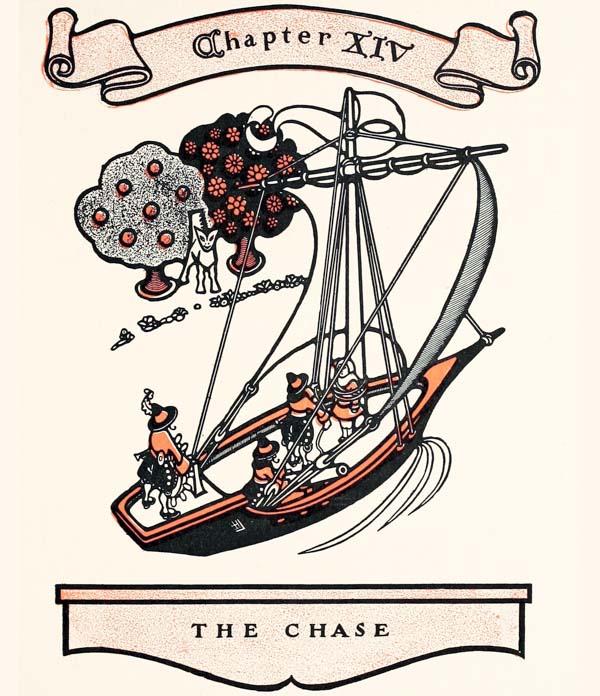
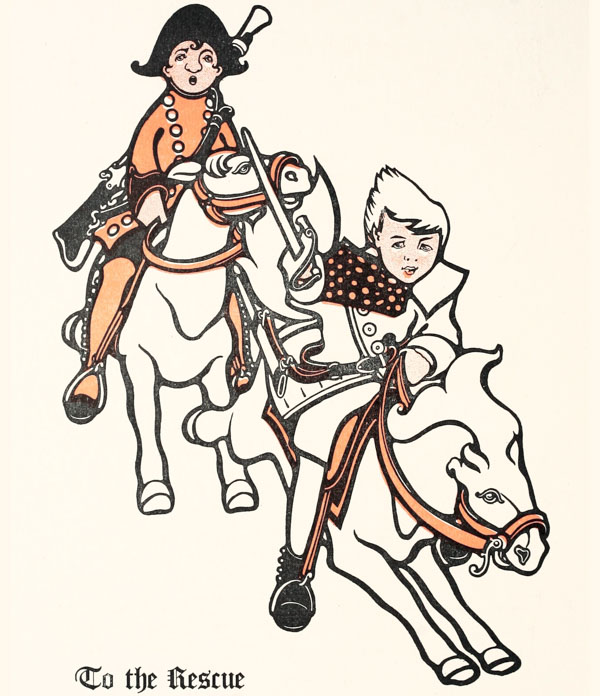
The Fourteenth Chapter.
The Chase. In which is told how Big Bill sailed the Black Rover, and of the glee of the Buccaneers at their cunning baffling of the King & Mr. Poodle.
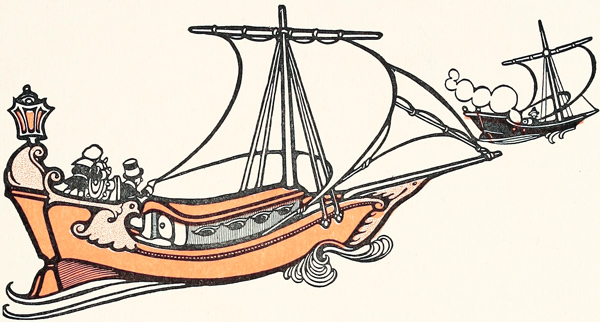
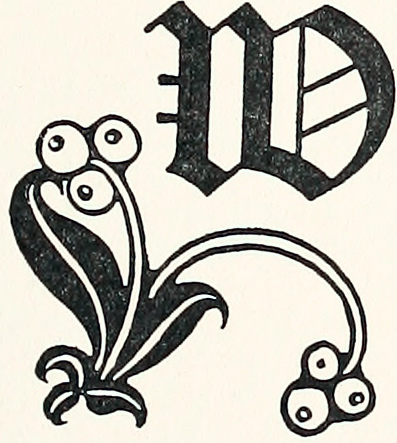 HEN
Long Jim said the shooting of the cannon
would alarm the whole town he told but
the truth. It did more than that however, for
it warned King Tommy and Mr. Poodle that
it was the lake and not the castle to which
their company must ride, thus saving them
much valuable time. What a clatter the horses did make
galloping through the town; out of one street and into another
they went, all the while willingly straining in every
muscle to attain the utmost speed of which they were capable,
seemingly realizing the great anxiety of their riders.
King Tommy rode at the head of the column, his sword in
his fist, his head thrown back and his hair
blowing in the {108}
breeze, while he shouted words of encouragement to his
followers, bidding them keep stout hearts and strong arms
for the defence of the city, and the rescue of their Queen.
HEN
Long Jim said the shooting of the cannon
would alarm the whole town he told but
the truth. It did more than that however, for
it warned King Tommy and Mr. Poodle that
it was the lake and not the castle to which
their company must ride, thus saving them
much valuable time. What a clatter the horses did make
galloping through the town; out of one street and into another
they went, all the while willingly straining in every
muscle to attain the utmost speed of which they were capable,
seemingly realizing the great anxiety of their riders.
King Tommy rode at the head of the column, his sword in
his fist, his head thrown back and his hair
blowing in the {108}
breeze, while he shouted words of encouragement to his
followers, bidding them keep stout hearts and strong arms
for the defence of the city, and the rescue of their Queen.
When presently the little company came to the lake, the good horses bore them almost into the water before their mad gallop could be checked; and then only by pulling the fiery steeds back on their haunches were the brave riders saved from getting a good ducking.
It was the work of only a moment to dismount. What
to do next the King did not quite know, for already those
on the pirate craft were casting off their grappling irons,
and as soon as the 
 could get free from the
could get free from the

 ,
with a piping breeze filling her sails she
would soon reach the mouth of the river, when all hope of
capture would be lost. Being such a cunningly built craft,
and drawing so little water, under the skilful handling of
the Buccaneers, the tortuous bends of the river would be
navigated through shallow and twisting channels where
no other ship could follow.
,
with a piping breeze filling her sails she
would soon reach the mouth of the river, when all hope of
capture would be lost. Being such a cunningly built craft,
and drawing so little water, under the skilful handling of
the Buccaneers, the tortuous bends of the river would be
navigated through shallow and twisting channels where
no other ship could follow.
“If we only had a gunboat,” said the King, “I could go into the conning tower and direct the shots, so as to rake that pirate ship fore and aft, and in about a minute sink her.”
“Yes, that would no doubt be the right thing to do,” said Mr. Poodle, “provided there are no captives aboard. But—”
“Do you think they have captured Queen Helen?” said
Tommy, never once realizing how he had interrupted the
words of Mr. Poodle. “See! There are ladies in the

 waving to us. Every man to the rescue!”
waving to us. Every man to the rescue!”
Row boats were now quickly boarded, and with stout
men tugging most manfully at the oars, were made to skip
over the water at no slow rate, and so
reached the  {109}
{109}
 before the
before the 
 had sailed over half the
distance to the river. It could now be seen with one glance
that the Queen had been captured, and even this was not
required, as the ladies were excitedly calling the news the
moment the boats came within hailing distance.
had sailed over half the
distance to the river. It could now be seen with one glance
that the Queen had been captured, and even this was not
required, as the ladies were excitedly calling the news the
moment the boats came within hailing distance.
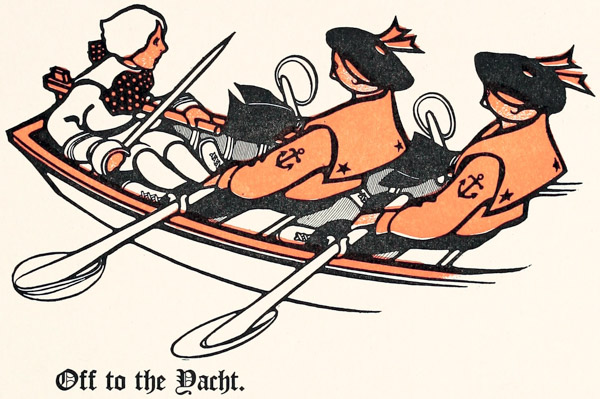
King Tommy and Mr. Poodle were the first to reach the abandoned yacht, and without waiting for the others, they sprang quickly to the sail and the helm, and soon had the boat headed for the river and chasing the pirates’ craft.
The 
 was a good sailer, and under some
conditions might have overhauled the
was a good sailer, and under some
conditions might have overhauled the

 . But
now, King Tommy saw such a task to be hopeless and that
the Buccaneers would enter the river before there was any
chance of their being overtaken. The only hope lay in a
shot from the yacht cannon, and as this
meant danger to {110}
the Queen, it was no sooner thought of than abandoned.
Meanwhile the
. But
now, King Tommy saw such a task to be hopeless and that
the Buccaneers would enter the river before there was any
chance of their being overtaken. The only hope lay in a
shot from the yacht cannon, and as this
meant danger to {110}
the Queen, it was no sooner thought of than abandoned.
Meanwhile the 
 had reached the mouth of
the river, and Big Bill, in glee at his successful capture of
the Queen and no less successful escape from the King,
trained his brass cannon on the fast approaching yacht and
fired a parting shot. Buccaneers are usually fine shots, but
from a careless aim, due probably to excitement, the cannon
ball went wide, never coming within yards of doing
any harm. This it did do, however: it showed to the King
the danger of continuing the pursuit, especially when fear
of hitting the Queen made it unwise to return the fire.
had reached the mouth of
the river, and Big Bill, in glee at his successful capture of
the Queen and no less successful escape from the King,
trained his brass cannon on the fast approaching yacht and
fired a parting shot. Buccaneers are usually fine shots, but
from a careless aim, due probably to excitement, the cannon
ball went wide, never coming within yards of doing
any harm. This it did do, however: it showed to the King
the danger of continuing the pursuit, especially when fear
of hitting the Queen made it unwise to return the fire.
By this time the 
 had reached the first
bend in the river. Once past that there would be no hope
of rescuing the Queen. The Buccaneers were again training
their cannon on the approaching yacht, this time with
a more determined aim, and Tommy, as he stood manfully
at the helm, felt for the first time that he had been beaten,
and for the safety of the ladies aboard the yacht he should
keep out of range of the next shot. Quickly throwing over
the helm, he allowed the yacht to head up into the teeth
of the wind, and gave up the chase. Hardly had the yacht
changed her course before there was a flash and a boom
from the deck of the
had reached the first
bend in the river. Once past that there would be no hope
of rescuing the Queen. The Buccaneers were again training
their cannon on the approaching yacht, this time with
a more determined aim, and Tommy, as he stood manfully
at the helm, felt for the first time that he had been beaten,
and for the safety of the ladies aboard the yacht he should
keep out of range of the next shot. Quickly throwing over
the helm, he allowed the yacht to head up into the teeth
of the wind, and gave up the chase. Hardly had the yacht
changed her course before there was a flash and a boom
from the deck of the

 , and a big shot plowed
through the water only a few feet astern, drenching King
Tommy with a sheet of spray. But for this quick maneuver,
the
, and a big shot plowed
through the water only a few feet astern, drenching King
Tommy with a sheet of spray. But for this quick maneuver,
the 
 would undoubtedly have been hit
below the water line and sunk.
would undoubtedly have been hit
below the water line and sunk.
When the Buccaneers now saw that the chase had been abandoned they waved their hats and shouted in wildest glee, and the next minute, reaching the bend in the river, were lost to sight behind the overhanging trees.
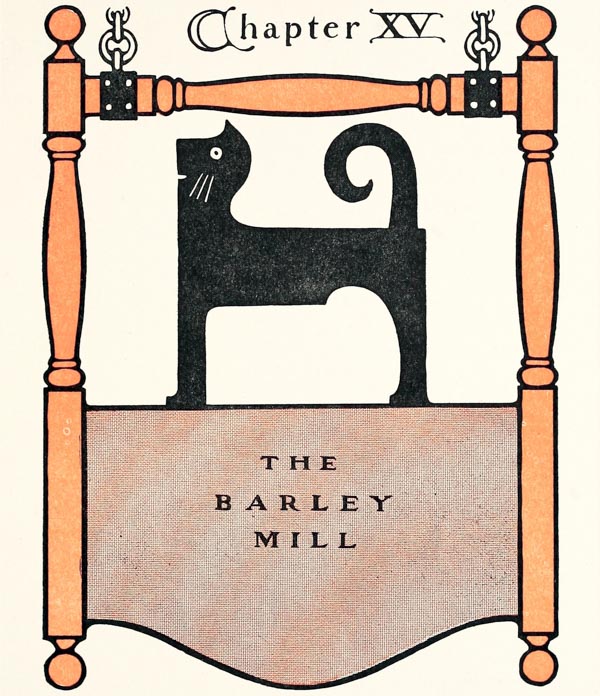
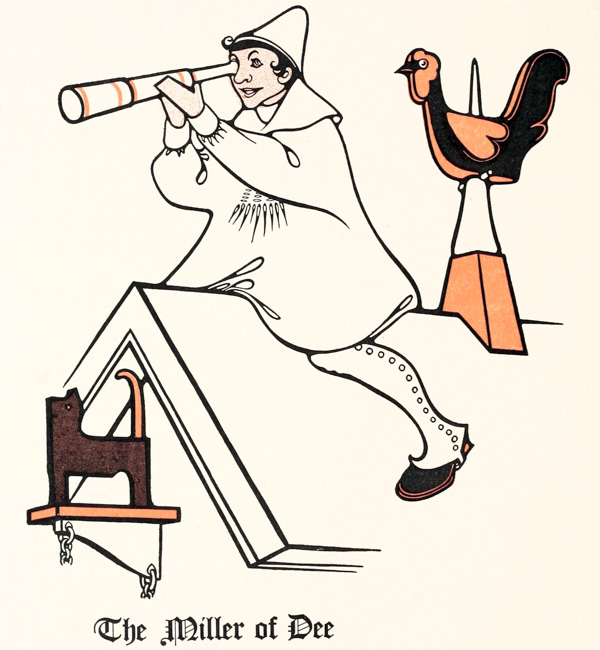
The Fifteenth Chapter.
Of Rolie Polie’s visit to the Barley Mill. And of what the Miller of Dee saw from the Roof. Also of the threatening shouts of the Toy People.
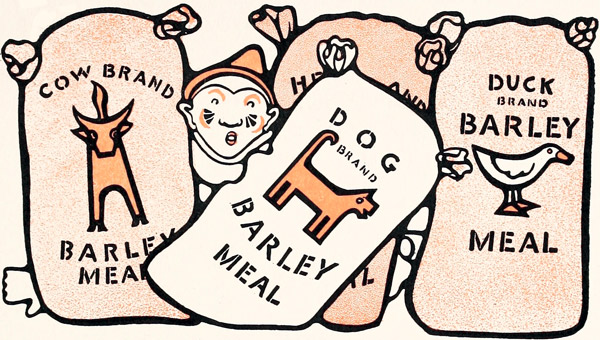
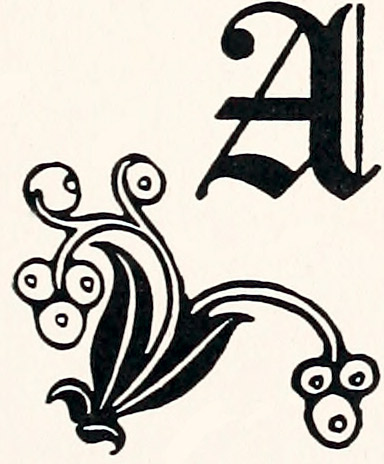 S
King Tommy headed the
S
King Tommy headed the 
 to
the wind and gave up the chase, the ladies,
almost with one voice, begged of him not
to abandon the rescue of the Queen. But
upon thinking how near their boat had come
to being sunk by the shot from the cannon
on the deck of the
to
the wind and gave up the chase, the ladies,
almost with one voice, begged of him not
to abandon the rescue of the Queen. But
upon thinking how near their boat had come
to being sunk by the shot from the cannon
on the deck of the 
 , they realized that the
King had chosen the only course possible.
, they realized that the
King had chosen the only course possible.
Tommy now held a consultation with Mr. Poodle. In
their hurried talk neither one could present a plan which
promised success, or even held any hope. Meanwhile, the

 being out of sight and
there now existing {114}
no danger from the cannon shots, the yacht was again
headed for the river, though what would be gained by
this course the King for a moment could not see.
being out of sight and
there now existing {114}
no danger from the cannon shots, the yacht was again
headed for the river, though what would be gained by
this course the King for a moment could not see.
During this activity on board the yacht, there had been no less activity on the land, for the sound of the firing had brought a great gathering of people to the shore of the lake, to the roofs of houses and to every high point from which might be had a good view.
Now, as has been told, Rolie Polie had gone off to see the town and have luncheon with the Miller of Dee. Thus it happened that when the Buccaneers fired their first cannon shot, the little clown was sitting at the door of the mill, watching the great wheel turn and the barley corns go bobbing up and down in the hopper.
“Oh, ho, Rolie Polie,” cried the Miller of Dee; “there must be a battle out on the lake! Come in and tend the mill a minute, while I go up on the roof and see what is causing all this firing!”
Rolie Polie jumped quickly to his feet, and didn’t say no to that proposition, I can tell you, for he thought it would be great sport to tend the mill. Presently the Miller of Dee was telling him to turn this lever this way, and that lever another way, and to be sure not to touch the third lever, and then the mill would grind, or stop grinding, and all would be well. “Be sure, Rolie Polie, not to touch the third lever,” finally cautioned the Miller, as he went hurrying out of the door.
After Rolie Polie had tended the mill for a while, he too began to wonder what was happening out on the lake. “I will shut off the mill,” said he, “and get up on the roof and see.” {115}
“Now, was it this lever the Miller said to turn, or that one, or the third one?” wondered Rolie Polie. Then he pushed down a lever, and no sooner had it turned than Rolie Polie heard a great rushing and roaring which nearly shook the mill from off its foundations.
“Oh, Rolie Polie!” cried the Miller’s wife, scaring her cat from its nap in the sun, as she ran hurriedly into the mill, “What have you done? What have you done? The gates to the dam are open and the water is tearing wildly through the mill brook. We must turn the lever again and shut the gates!”
But, work as hard as they could, the gates would not budge one inch, and presently the Miller was heard calling loudly: “Shut the gates! Shut the gates!”
Rolie Polie began to shake and tremble. “I think it is time for me to go and hide,” he said. “There is no telling what the Miller might do.” Then off he hurried and soon had tucked himself in a corner behind some meal bags.
“Shut the gates! Shut the gates!” yelled the Miller, as he bounded through the open door and ran across the mill to the levers. But for all his hard tugging, the Miller of Dee never closed the gates even one particle. Then he went outside and called for help, and presently there was no less than a dozen stout Toy people tugging at the lever, which little by little, as the pressure of the water grew less, began to turn and finally shut the gates.
“It is a fine mess this little clown has made for us now,” said the Miller. “He deserves to have a good birch twig laid upon his back, only, of course, that is against the laws of Toyville, and besides he is such a jolly little fellow, it would be a shame to give him a whipping.” {116}
While the little Miller of Dee was talking this way, Rolie Polie, now much frightened, kept creeping further into his nook behind the barley bags.
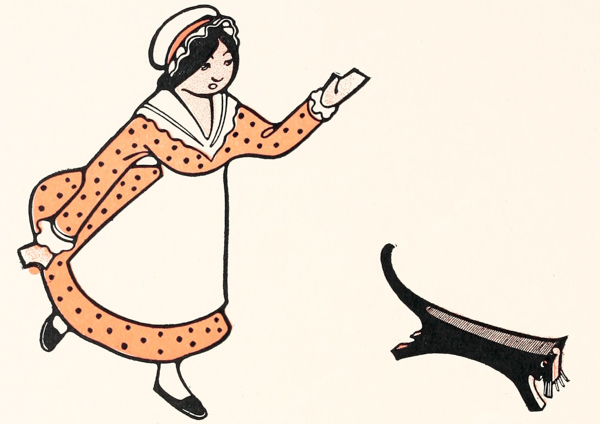
If he had not been so intent upon hiding he would have heard the Miller laugh and say that: “Perhaps the little clown was not after all much to blame, for he hadn’t had much experience at mill tending.” That was the way it was with the Toy people; they never could be cross with anybody, or, at least, they could not be cross for long.
Rolie Polie did not hear the Miller say this though, but what he did hear was an approaching throng in the street. These, with shouts and cries of: “Who opened the gates? Who opened the gates?” were now almost at the mill.
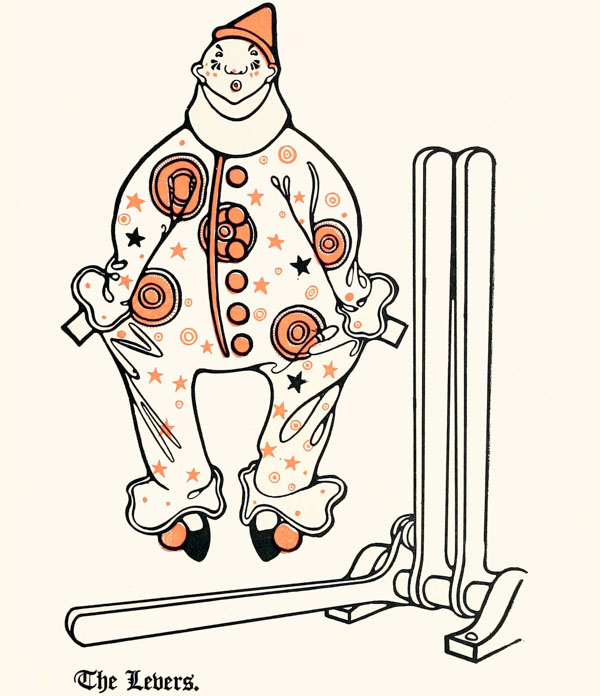
As for the little Miller, he too heard the cry. “Oh me, oh my!” said he, “this certainly looks threatening for Rolie {117} Polie; and really the fault was not so much his as mine. I should never have left the mill in his care.” The next {118} minute the Miller of Dee stepped briskly to the open door. “I am the one for whom you are looking,” said he.
Whatever the Miller of Dee expected would happen when he made the announcement, I do not know, but of this much I am certain, that which did happen was without doubt a big surprise.
“The Miller of Dee! the Miller of Dee! Hurrah for the Miller of Dee!” cried the throng as they rushed forward; and, taking hold of the little Miller, twined a wreath of roses about his shoulders and placed him on the back of Rolie Polie’s donkey.
“To the Castle!” they cried; and off they started.
It was as much as two minutes before the little Miller could get enough breath to speak. “Why am I being taken to the Castle? Why is this wreath about my neck? And why do you cheer?” he asked.
“Listen!” cried one of the Toy people to his companions. “The Miller of Dee asks why we cheer! Why shouldn’t we cheer? Hurrah for the Miller of Dee, who opened the gates of the dam and let the water out of the lake, so the pirate ship was left high and dry in the river!”
When, at last, the noise had subsided enough for the little Miller to be heard, he asked: “Is that what has really happened? Has the pirate boat been captured and has Queen Helen been rescued?”
“Yes,” answered the Toy people; “Queen Helen has been rescued, and all due to the Miller of Dee.”
“No,” answered the little Miller, “the honor is not mine; I did not open the gates. They were opened by the little clown. Turn back, my fellow Toy people, this wreath of roses is for Rolie Polie.”
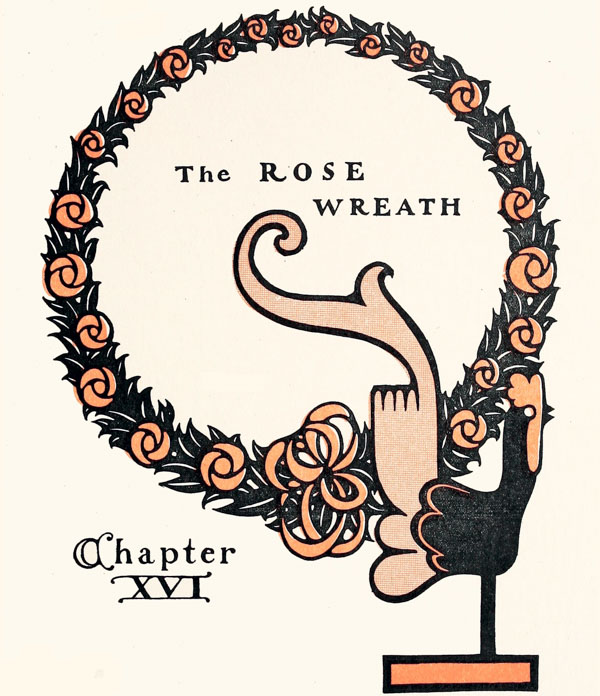
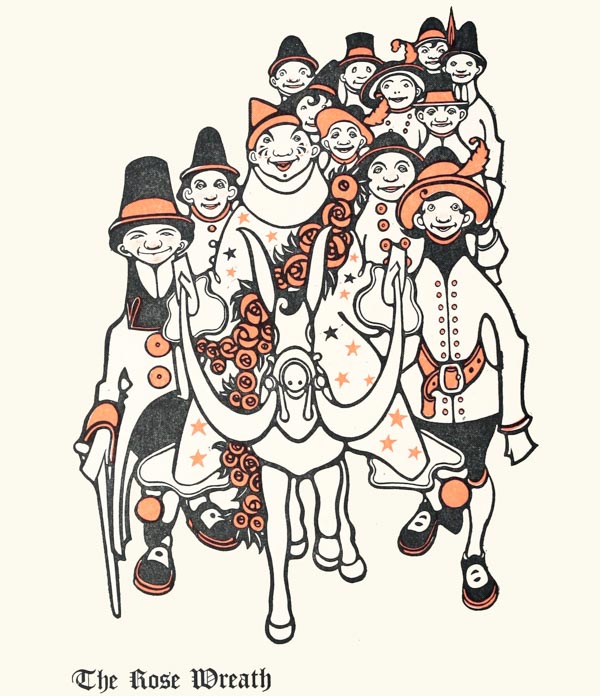
The Sixteenth Chapter.
The bestowing of the Rose Wreath. Also of two surprising Rewards. And of the New Joy that came to the Miller of Dee, and the Toy People.
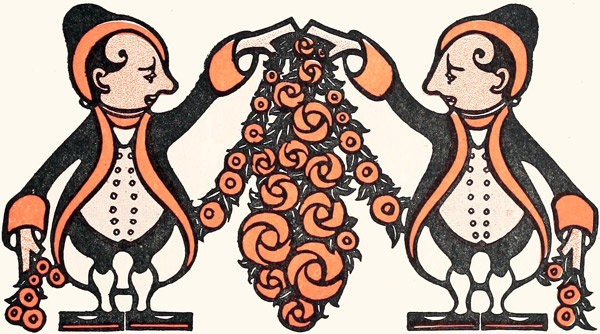
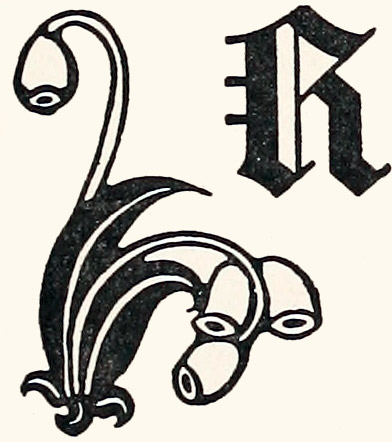 OLIE POLIE could not understand why the
Toy people cheered, and he wondered at
their hasty departure. Then he crawled out
from behind the bags and went to the door
of the mill. There the returning Toy people
found him, his clothes powdered white
with barley meal and his face full of wonderment.
OLIE POLIE could not understand why the
Toy people cheered, and he wondered at
their hasty departure. Then he crawled out
from behind the bags and went to the door
of the mill. There the returning Toy people
found him, his clothes powdered white
with barley meal and his face full of wonderment.
Well, the end of the matter was just this: Rolie Polie, astride his little donkey and loaded down with garlands of roses, was carried off to the Castle. By his side walked the Miller, now wearing his best clothes, and as happy a little body as there was in all the town. {122}
On the way the people told him of what had happened,
and how, when the gates were opened, the water ran out
from the lake and made the river so shallow, that the first
thing the Buccaneers knew, the 
 stranded
high and dry on a gravelly sand bar, with no possible
chance to escape capture.
stranded
high and dry on a gravelly sand bar, with no possible
chance to escape capture.
“But,” interrupted one of the Toy people, “Buccaneers are clever ones when it comes to getting out of a tight place, and it did not take them long to climb over the side of their ship and run for the woods.”
“The four rogues had good legs for running, too,” said another of the Toy people.
“Had any harm come to Queen Helen?” asked the Miller of Dee.
“Oh no,” answered one of his companions. “You see
the 
 grounded at the mouth of the river,
and King Tommy jumped quickly over the side into the
shallow water and was the first to reach the
grounded at the mouth of the river,
and King Tommy jumped quickly over the side into the
shallow water and was the first to reach the

 .
He found Queen Helen tied to the mast with a rope. The
Queen acted bravely, and the Buccaneers, seeing that she
was no cry baby, did not treat her roughly; for although
they had tied her to the mast, the ropes were not tight
enough to really hurt.”
.
He found Queen Helen tied to the mast with a rope. The
Queen acted bravely, and the Buccaneers, seeing that she
was no cry baby, did not treat her roughly; for although
they had tied her to the mast, the ropes were not tight
enough to really hurt.”
“Buccaneers always treat brave captives that way,” said another of the Toy people. “It is only the scarey ones that they handle roughly.”
“Probably Queen Helen couldn’t help being a little frightened though,” said the Barley Miller.
“But perhaps she bit her lip and did not show one single particle of it to the Buccaneers,” said Rolie Polie. “That would be just like Helen.” {123}
“Yes,” said one of the Toy people, “I think she was somewhat frightened, because that would be enough to scare any Queen; and when Tommy cut her bonds and set her free, she looked so glad and so excited, that I think she would have cried if there had not been so many people about.”
“When the gates were closed and the lake began to fill,
you should have seen the people on the sand bar run!”
said a Toy man who was walking by the donkey; and then
he laughed long and heartily. “Why, in a jiffy the water
was up to their ankles, and I think it would have soon
been to their knees had they not waded to the shore, or
hastily clambered over the side of the

 .”
.”
“That was a fine race the two boats had back to the
landing pier,” said another Toy man. “The pirate ship is a
fast boat, but I think the 
 is faster, and I
don’t believe the
is faster, and I
don’t believe the 
 could have beaten but
for being so skilfully handled. Tommy certainly knows
how to get speed out of a boat.”
could have beaten but
for being so skilfully handled. Tommy certainly knows
how to get speed out of a boat.”
When Rolie Polie came into the presence of the King, and the story was told of how everything had happened, King Tommy said: “Rolie Polie, you shall have a fine reward for this; three times your tricks have saved us sorrow. I am going to give you a medal and make you Captain of my Royal Guards. Go now and change this clown’s dress for a new uniform.”
“Your Highness,” said Mr. Poodle, after Rolie Polie had thanked the King and departed, “I think the Miller of Dee also deserves a reward, for, from what I hear, he has acted most nobly; taking blame when he thought that it would save Rolie Polie, and as graciously according credit when {124} he found the opening of the gates had brought honor and the praise of his fellow Toy people.”
“That is true,” said the King. “I will make the Miller of Dee my first assistant Prime Minister.”
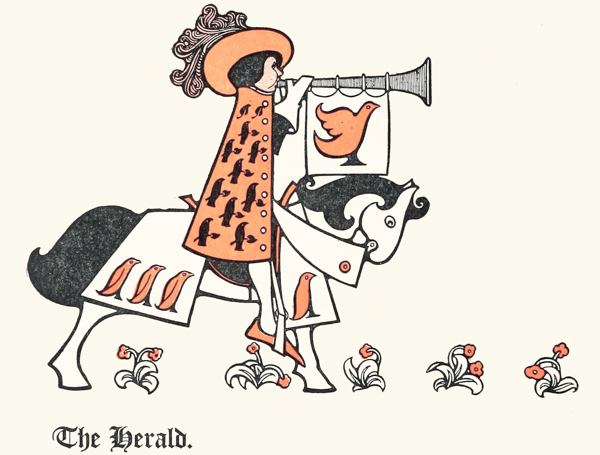
The little Miller thanked the King, then laughed and said: “I think the place for me is in the mill, simply grinding my barley corns.”
Mr. Poodle then told King Tommy that a good Miller was a very handy fellow to have in the Kingdom, especially one who had something more beneath his cap than the dust upon his hair, as without doubt this one had. {125}
Tommy felt that there might be some truth in what the toymaker said, but he told Mr. Poodle he thought that such a noble deed certainly deserved a reward.
“That is true,” replied Mr. Poodle; “and now I would suggest that, as a reward to the Miller, you make this a holiday, to be observed every year and to be called the Miller’s Holiday.”
Tommy said that would be fine, and immediately issuing the order, Heralds were soon proclaiming it throughout the city.
The Toy people shouted and cheered at these words of the Heralds, as they were all fond of holidays, and so thought the King had found a fine way to reward their friend, the good Miller of Dee.
As for the Miller, he felt very much embarrassed, but at last found words to thank the King, and then started off home to talk it all over with his neighbors. A big man the Miller was in his neighbors’ eyes now, you may be sure; all were glad enough to rub shoulders with him, and no one minded the white barley dust on his clothes, I can tell you, which was very nice for the little Miller.
Meanwhile the three Buccaneers, led by Long Jim, the crafty courtier, made their way back to Grumbletown. Their clothes had been badly torn by the wild scramble through the bushes; while brambles and briars had made sad havoc with their faces, so that altogether it was four sorry, dilapidated looking specimens that now appeared before King Red Beard.
“Blunderheads!” That is what Red Beard called Long Jim and the three Buccaneers, not once but a dozen times. Then he called them “noodle skulls,” and, last of all, he {126} called them “four big cowardly babies,” which certainly was a hard name to give, even to wicked Buccaneers.
But, by and by, when Red Beard began to quiet down, he said: “Well, you have now failed three times, but we can’t allow that boy and girl to rule in Toyville.” Then ordering his spies to return to Toyville, he set about the making of new plans.
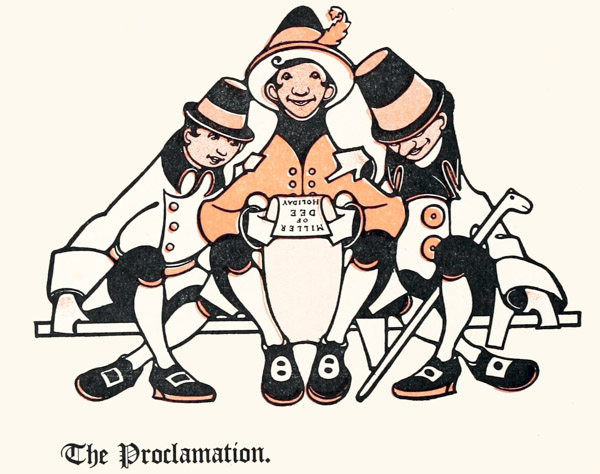
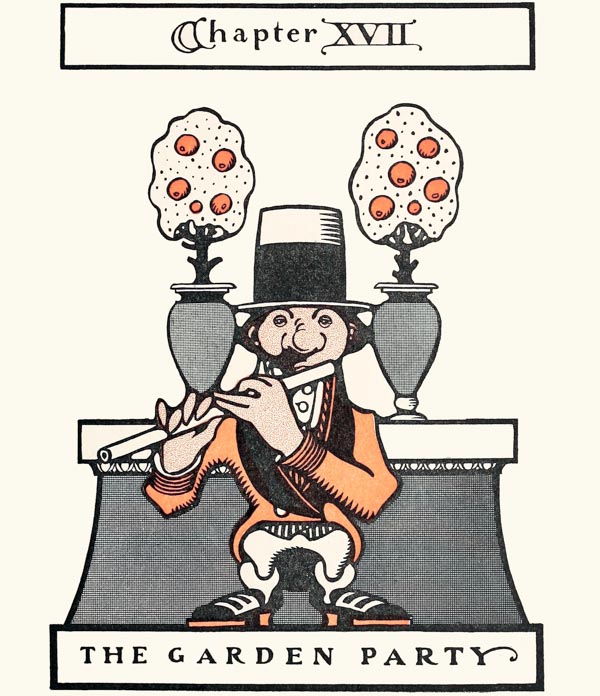
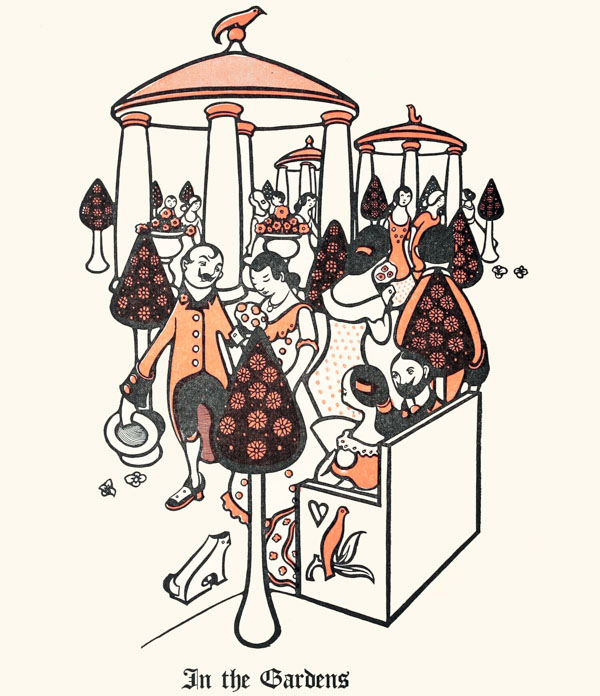
The Seventeenth Chapter.
How the Mayor makes New Plans. And of a Delightful and happy Gathering in the Gardens. Also of a Parley held at the Castle Gate.
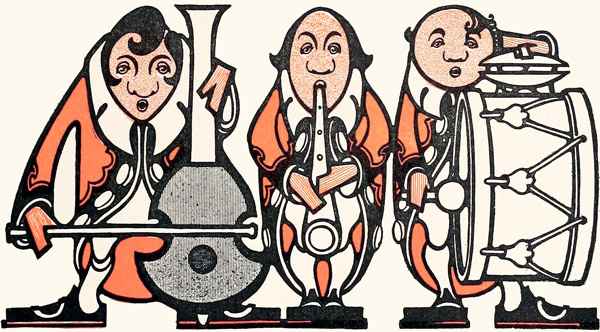
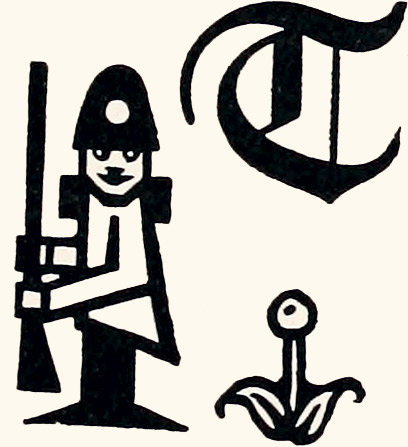 HINKING there was now nothing to fear
from an attack by the army of Grumbletown,
the Toyville soldiers were ordered
to return from the hills, and already the
sound of rumbling wheels in the streets,
told how promptly this order had been
obeyed by the Commanding General.
HINKING there was now nothing to fear
from an attack by the army of Grumbletown,
the Toyville soldiers were ordered
to return from the hills, and already the
sound of rumbling wheels in the streets,
told how promptly this order had been
obeyed by the Commanding General.
“We have much to make us thankful,” said the Mayor to one of his councillors. “It certainly would have been a sad occurrence had the capture of the Queen resulted in her being carried away to Grumbletown. I think the occasion demands a celebration, and I should suggest that {130} we at once prepare a big party to take place on the lawns and in the pavilions of the Palace gardens.”
“A splendid suggestion,” cried the councillors with one accord. “Let us lose no time in getting under way the arrangements.”
The gardens, brilliant with pots of flowering shrubs and beds of blossoming plants, their broad stretches of lawn bordered by hedges of box, and interlaced with white pebbled walks, formed an ideal place for the holding of a social gathering of this nature.
When to the natural beauty of the gardens there was added the beauty of the handsome dresses and uniforms worn by the guests, the scene thus presented proved of untold loveliness.
In one of the pavilions sat an orchestra which rendered the most delightful music imaginable; in another pavilion were many little tables where were served refreshments of the daintiest confections; in a third pavilion the highly polished and waxed floor was given over to dancing.
Under such delightful conditions, the King and Queen, as well as the Lords and Ladies, soon forgot their recent fears, and with Rolie Polie in his new uniform standing guard at the front gate, one and all felt perfectly safe.
Outside the walls of the Castle and gardens, the streets of the city were quiet and almost deserted, for the Toy people had repaired to the park, where they, too, were celebrating with all manner of jolly games and sports.
Meanwhile, King Red Beard had not been idle, and by the time his spies returned to tell how matters were going in Toyville, he had two hundred picked ruffians ready to make a last attempt to capture the King and Queen. {131}
How Red Beard did laugh when his spies told him of the celebration that was being held in Toyville. “Ha, ha, ha,” said he, “those Toy people think they have seen the last of old Red Beard, do they? Well, we will soon show them their mistake.”
After that it wasn’t long before the Grumbletown King and his two hundred hardy rascals had travelled through the secret passage of the hills and were in the quiet, deserted streets of Toyville.
When the company came near the Castle and could hear the sweet strains of music and the sound of happy laughter, King Red Beard sent Long Jim on ahead to spy how the land lay.
Presently, Long Jim returned. He had taken a peek here and there, and told Red Beard that there was only one soldier standing guard at the front gate. “And your Majesty,” said he, “I think the soldier is that stupid clown, Rolie Polie, now dressed in the uniform of the King’s Guard.”
Red Beard gave a wild laugh when he heard what Long Jim had to say. “Forward, march!” he cried; “we can easily fool that simpleton.” Then away they all went, and in two jiffies Red Beard was tapping at the front gate and parleying courteously through the wicket with Rolie Polie.
Now, the kernel to the nut Red Beard tried to crack on Rolie Polie’s skull, was just this: he wanted to have the gates opened so he and his two hundred tatterdemalion followers could enter the gardens and capture all the people.
Red Beard was good at arguing and gave all manner of reasons, but none of these availed him in the least, for {132} Rolie Polie, now very proud of being a King’s Guard, would never think of doing anything untrue to his trust.
At the last, when Red Beard was about ready to give up trying trickery and guile, and almost on the point of ordering his men to make an assault, a brilliant idea came jumping into the brain of Rolie Polie. “Oh, ho,” thought he, “I know King Tommy would like to have me capture this old Red Beard, and here, the very first thing, is my chance. I will just open the gate and let them inside the walls, then I will jump outside, close and lock the gate, and there I shall have the whole company safe and sound where they can’t get away.”
No sooner did this clever idea enter the brain of Rolie Polie, than the little guard was unlocking the gate and throwing it wide open. Then step, step, step, every man going softly on tiptoe, through the gate went Red Beard followed by his two hundred ragamuffin ruffians.
“Ha, ha, ha,” laughed Rolie Polie, as he turned the key in the lock, “that is the time I was too clever for Red Beard!”
“Ha, ha, ha,” laughed Red Beard, “did anyone ever see a body so stupid as that Rolie Polie? Here I have King Tommy and Queen Helen, and all the Lords and Ladies at my mercy. It is a fine company of captives I will get to put in chains and march as slaves to Grumbletown.”

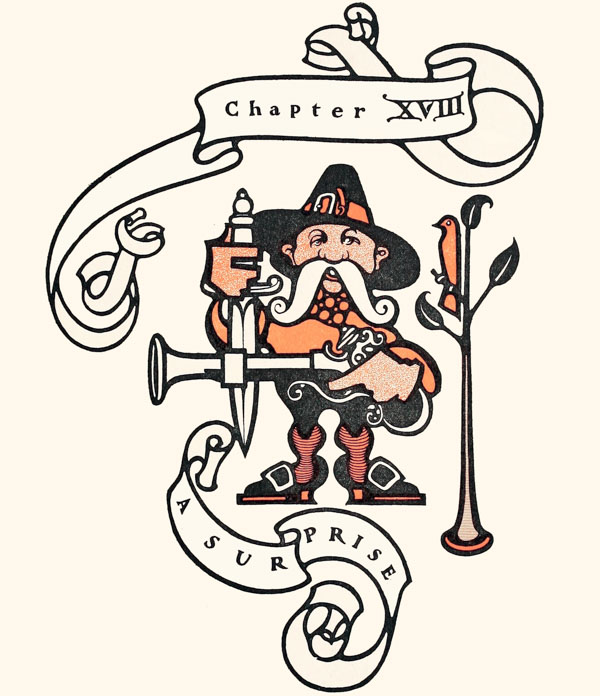
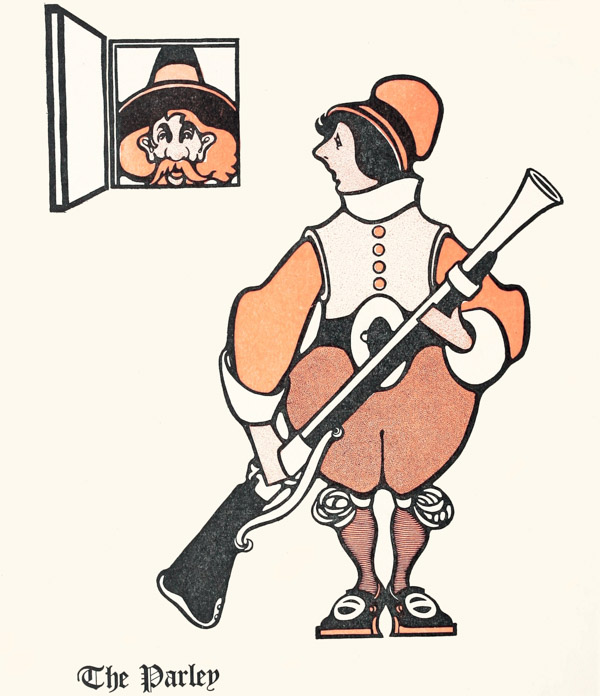
The Eighteenth Chapter.
In which something is told of how the Page brought a Message which proved a Surprise. Also of what the Dame found in the Fountain of the Fish.
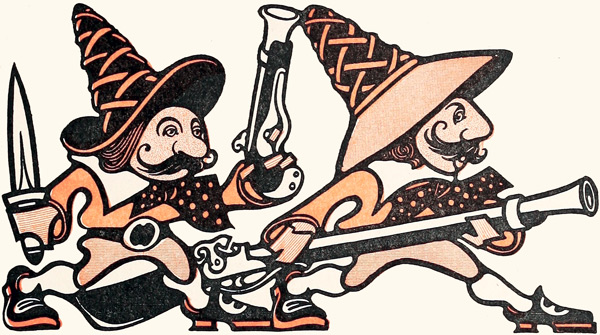
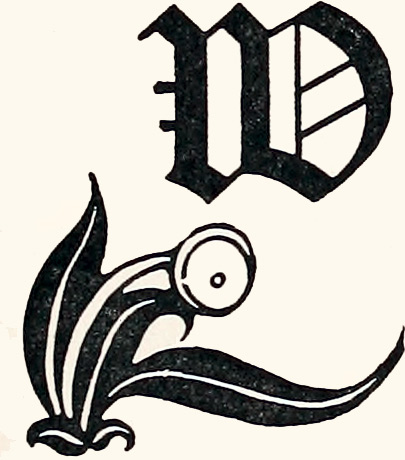 ITH everyone enjoying such a good time in
the gardens, it would not have been surprising
if the King had forgotten his guard
at the gate. This he did not do, however,
and at the moment when Red Beard and
his men were entering, a page was being
dispatched for Rolie Polie.
ITH everyone enjoying such a good time in
the gardens, it would not have been surprising
if the King had forgotten his guard
at the gate. This he did not do, however,
and at the moment when Red Beard and
his men were entering, a page was being
dispatched for Rolie Polie.
Thus, it happened then, that when the page was about to enter the court yard, he saw it thronged with ruffians.
“We are betrayed!” he cried as he ran hurrying back to the gardens. “The gates have been opened and the enemy is now within the walls!” {136}
At this cry, the Ladies turned pale with fright and the Nobles sought hastily for the swords they had laid aside at the beginning of the dance. “Every man be brave!” shouted the King. “We must rally to the defence of the Ladies! Let King Red Beard and his ruffians come, they will find us ready!”
But for all King Tommy spoke so bravely, he was not at all deceived, and realized quite the same, as did the Mayor and some others, that any defence would prove practically useless, and at best do no more than prolong an engagement, which in the end could result only in their defeat and capture.
To reach the gardens from the court yard, it was necessary to go half way around, or else right through the Castle; the Grumbletown company, therefore, divided; one party going one way, the other going another way.
As has been told, Red Beard and his followers, when once within the walls of the Castle, were in high glee. “We will make a fine big capture of prisoners to-day, my hearties,” said the King. “When this fine boy and girl are marching to Grumbletown dragging their heavy chains along the highway, they will wish that that old toy maker, Peter Poodle, had never brought them on a visit to Toyville. What ho, my brave followers, do I speak the truth?”
“Aye, aye, aye!” answered the band, barely above a whisper, not wishing to be heard by the Toy people.
“Aye,” said Red Beard, “we will make a fine capture of prisoners and a big haul of treasure. Every man must fill his pockets with gold and silver and jewels, all he can carry; we will loot the whole Castle. That will be a haul worth making; what ho, my hearties?” {137}
“Aye, aye, aye!” replied the band.
“We must make no noise,” said Red Beard. “Every man creep along stealthily, take them by surprise. I say that’s the way to make a good capture.”
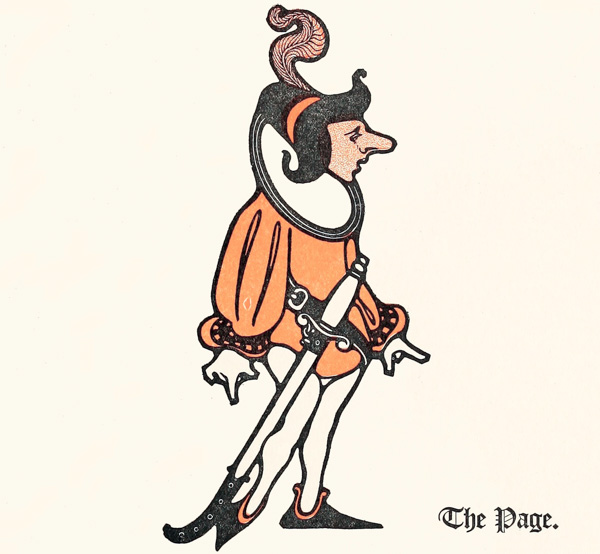
While Red Beard was talking and creeping along so slowly, King Tommy would have had time to make new plans for defence, had any chance existed of such plans proving successful. “There is nothing for us to do but depend upon our swords,” said he to Mr. Poodle. {138}
“Yes,” replied Mr. Poodle, “and our swords are far too few to withstand an onslaught from so many big burly ruffians. I was going to suggest that we make a dash for the Castle and bar the doors. Our chances would then be better. But judging from the sounds, I fear that the Castle is already occupied.”
Meanwhile, much excitement prevailed among all the Ladies who by now were occupying one of the pavilions on the far side of the lawn. Tommy attributed this excitement to a fear which the circumstances rendered only natural. But now the excitement seemed to be from some other cause, and presently the King was surprised to see Queen Helen, accompanied by the Royal Ladies, come hurrying across the lawn.
“O, Tommy,” said the Queen, “an old lady, an old servant, I think, has just told me she knows of a secret passage underground, through which we can escape! come quickly!”
The old dame, a little lady wearing a tall peaked cap, had followed immediately after the Queen. “Yes, your Majesty, I can show you the way; come with me,” she said.
That funny little twinkle went dancing about in Mr. Poodle’s eyes again, when he saw the old dame. There was a twinkle in her eyes, too; but though she tipped him a courtsey and he bowed politely, neither spoke even one word to the other.
On the lawn, midway between where the King and his men had assembled, and the pavilion from which the Queen had just come, there foamed a beautiful fountain, made in the manner of a great marble basin. On the rim of the basin there was the green head of a great bronze {139} fish, apparently just rising from out the water. On the back of the fish sat a chubby little boy, sculptured so faithfully in marble as almost to seem alive.
The little old dame hurriedly led the King and Queen, accompanied by all the company, straight towards the great head of the fish. Putting forth her hand, she three times wiggled the big toe of the chubby boy; at the third wiggle the mouth of the fish opened, revealing a long flight of stairs running down under the fountain. The next minute, the little old dame stepped into this mouth and onto the stairs, being quickly followed by all the others. The King was the last to enter. As he did so, he turned for one look at the Castle, and saw the infuriated Red Beard and his followers entering the gardens. Then the jaws of the fish closed and the passage became sealed.
The way was now pitch dark. Overhead could be heard the tumbling waters of the fountain. A scarey sound that seemed too, but not half so scarey as the terrible wild cry of the baffled Red Beard, which could be heard even through the thick walls of marble.
King Tommy could hear the step, step, step, of those ahead of him and the muffled drone of their voices, as they spoke words of encouragement to one another. “Where are we?” he wondered. Then his feet no longer kept going down when he stepped, but travelled on a level pavement, and he knew that the end of the stairs had been reached. Minute after minute passed, and still the passage continued. Would its end never be reached? Could it be possible the little old dame was a Grumbletown spy and had deceived them? Did the way lead to some trap? With these thoughts chasing through his mind, {140} the King came almost to the point of wishing that the company had remained in the garden.
The next moment, however, he realized that almost any fate would be better than that which would have befallen them at the hands of King Red Beard and his ruffians. Then he remembered the look in the old dame’s eyes, when she had bid them hurry, and he thought, “I won’t believe any ill of her before it happens. She looked kind and honest, and I am sure in the end everything will come out all right.”
Those were certainly the kind of thoughts a King should have; and the moment Tommy let the bright sunshine of hope enter his mind and travel along with him for wayfellow, just that very moment he came to a turn in the path, and not a hundred feet beyond saw the bright sunshine of day streaming into a broad space at what appeared to be the end of the passage.
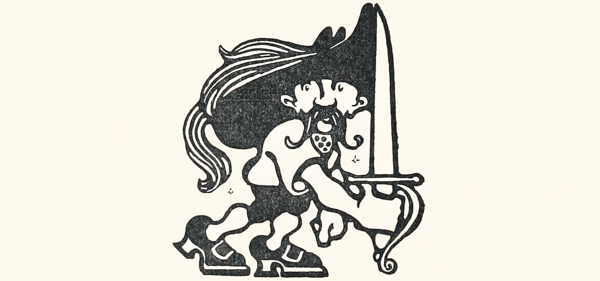
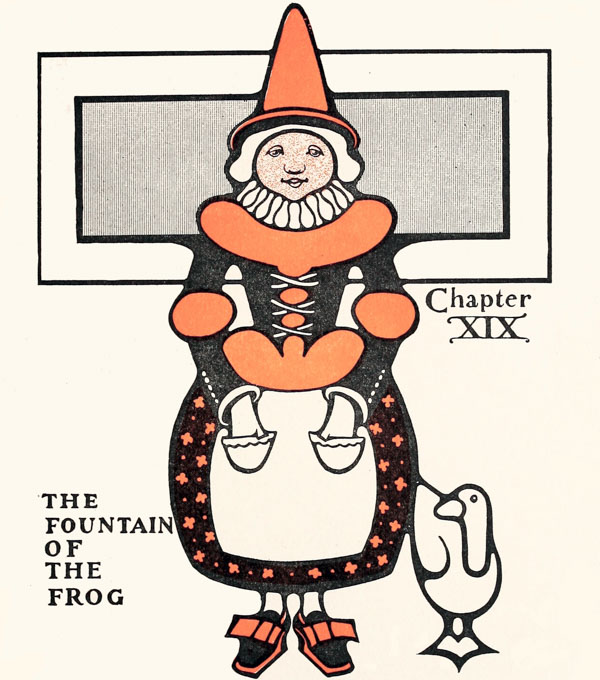
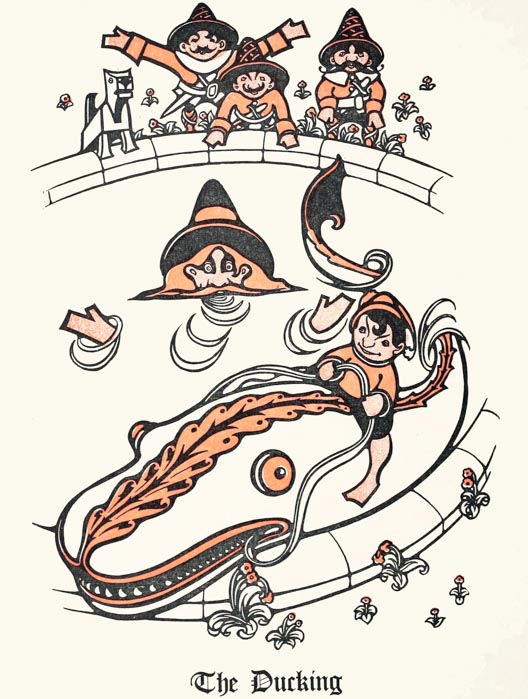
The Nineteenth Chapter.
Of what was found at the End of the Passage. Also of the Guard at the Gate. And of the Happy Conclusion to an Exciting Experience.
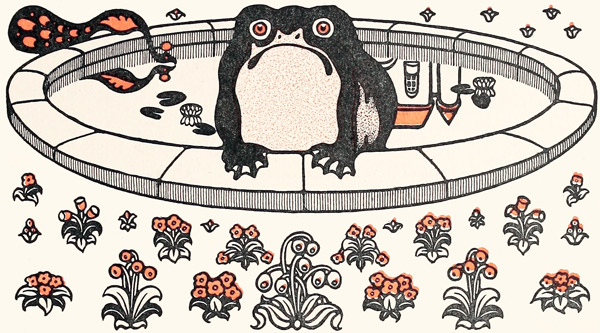
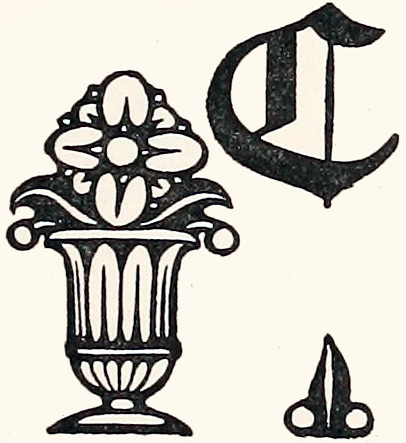 RYSTAL lights lit the passage, and seemed
to be glowing and glimmering through a
great globe set in the black earth above
their heads. At first, no one could understand
the meaning of this, but presently the
doubt was dispelled by the little old dame
who led the way up a flight of stairs cut in the solid rock,
and out through an opening into a little park, scarcely a
stone’s throw from the Castle gates.
RYSTAL lights lit the passage, and seemed
to be glowing and glimmering through a
great globe set in the black earth above
their heads. At first, no one could understand
the meaning of this, but presently the
doubt was dispelled by the little old dame
who led the way up a flight of stairs cut in the solid rock,
and out through an opening into a little park, scarcely a
stone’s throw from the Castle gates.
An expression of surprise now escaped from the lips of everyone, for upon looking back, it was found that the passage had led right in under a great crystal bowl, full to {144} the brim of tumbling, tossing, sunkissed water. Yes, the secret passage had begun at one fountain and ended at another; but while the basin of the first was all marble, that of the second was all of glass, and although the entrance had been through the mouth of a great green fish, the exit led through the mouth of a great green frog.
Everybody now hurried and hid behind the vases and pots and shrubs scattered through the park, not knowing how soon they might be discovered by Red Beard. In this hurry the King held tightly to the hand of the Queen, and close upon their heels followed Mr. Poodle. The sun, slowly sinking, seemed now quite close to the hills of Troubleland, and the afternoon was drawing towards evening.
“I see no sign of the Grumbletown people,” said the King. “Do you think they have departed, Mr. Poodle? Look, Rolie Polie is standing guard at the gate. Perhaps Red Beard is robbing the Castle. I wish we could get word to the army.”
Meanwhile, finding no immediate danger threatening them, the Toy people, one after another gathered about their King. Some were in favor of arresting Rolie Polie, and putting him in irons for opening the gates and betraying the Castle. Others counselled against this.
Although King Tommy could not understand why Rolie Polie had opened the gates, nevertheless he felt sure the little clown had not betrayed his trust, and that in the end a reason would be found justifying the action. He was, therefore, glad to hear the little old lady speak, cautioning the Toy people not to act rashly. Then, turning to the King, she said: “Not knowing whether Red {145} Beard is within or outside the Castle walls, it seems unwise to dispatch a messenger for the soldiers and risk his being made captive. Why not go and speak a word or two with yonder guard?”
King Tommy appreciated this advice; and drawing his sword, he stepped forth boldly towards the little man at the gate.
Rolie Polie, hearing footsteps, looked about and saw the King.
“Your Majesty,” he cried, his face full of pride, his eyes dancing with happiness, “come quickly and help guard the gate; I have the Grumbletown King and all of his ruffians captive in the Castle. Am I not a fine soldier?”
These words were spoken so suddenly that for a moment the King failed to grasp their meaning. Then, all at once, it came to him why Rolie Polie had opened the gates, and he saw that the little guard had indeed laid a clever trap, in which, without doubt, were now captive King Red Beard and all of his Grumbletown followers.
“Hurrah!” he cried, turning and waving his sword to Mr. Poodle and the others. “Rolie Polie has captured the Grumbletown ruffians, come quickly and help hold the gate.”
A glad shout greeted this cry from the King, as with one accord the little company, each man drawing his sword, made a rush to reinforce the clever and brave guard, Rolie Polie.
Meanwhile, much had happened within the walls of the Castle, for Red Beard and his followers had entered the gardens at the exact moment when King Tommy was stepping into the mouth of the fish. {146}
“Look, my men! look!” cried Red Beard, his face white with fright, his hair standing on end. “The Green Fish of the Fountain has swallowed all the Toy people. It is some mighty magician! Oh, why did we ever come into this city! why did we ever leave peaceful Grumbletown!” Then, unable longer to make his trembling legs support him, Red Beard fell fainting with fright.
The faces of his followers were as white as their King’s, save only a few, who were too far behind to see what had happened.
These few, when they reached the garden and found their fellows almost fainting and Red Beard lying like one dead, upon the ground, knew not what to do, until presently one of them, seeing the King yet breathing, cried: “We must get water; somebody bring water to the King!”
This request was more easily asked than answered, as nowhere near at hand could be found anything in which to carry the water. But the ruffians were not long without a way for solving that difficulty, and quick as a wink they had Red Beard in their arms, and the next minute were tumbling him heels over head into the fountain.
It didn’t take long for that ducking to make the Grumbletown King open his eyes. “Where am I? Where am I?” he cried, floundering about in the basin and blowing the water out of his nose and mouth. Then, he looked up and saw the green fish. “Help! help! help!” he called. “The Fish has me! Save me from the Fish!” and with one big effort he reached the rim of the basin, clambered over, and without once turning to look back, he ran with all possible speed through the garden towards the Castle gate, followed by his whole band. {147}
But now the gate was locked, and outside could be heard the cheering Toy people.
“Open the gate, little Guard! Open the gate!” cried the shivering, shaking Red Beard. “Open the gate little Guard! Open it quickly! The Green Fish is after us! Open the gate, and we will lay down our swords and pistols and go back to Grumbletown! Open the gate, little Guard, and never again will we come to Toyville! Save us from the Green Fish!”
The jolly, laughing eyes of the little old lady twinkled at Mr. Poodle. “King Tommy may open the gates without any fear now,” she said. “Red Beard and his fellows are so frightened at the Green Fish that they will never again venture near Toyville.”
Mr. Poodle quickly repeated this message to the King, and as a result, it was not long before the Grumbletown ruffians, led by their King, had laid their swords and guns on the lawn, and were marching out of the gates; a crestfallen and woebegone looking fellowship they were, too, and no mistake.
Rolie Polie and one of the Royal Guards accompanied them to the hills. Every little while Red Beard looked back over his shoulder, fearing constantly that he was being followed by the Green Fish. At the foot of the hills they came upon men who were awaiting them with horses and donkeys. Among the animals, Rolie Polie found Coal Black and Snow White, who neighed with pleasure at seeing their old comrade. Rolie Polie now bade good day to Red Beard, who was yet too frightened to answer, and leading Coal Black while his companion led Snow White, took the road back to Toyville. {148}
“That is a fine soldier, your Majesty,” said the little dame to the King, as Rolie Polie came prancing into the court yard upon his return from the hills. “Such a fine and clever little soldier could well fill a higher station than that of Royal Guard. Not that I want to say a Royal Guard is not a fine position, for it is quite true, few are finer. But there are not many guards could capture, single handed, such a bold ruffian as Red Beard, to say nothing of his two hundred followers.”
“You are right,” replied the King; “and I have a reward for him which I think will prove a big suprise.”
And a suprise it certainly was, as we shall soon see.

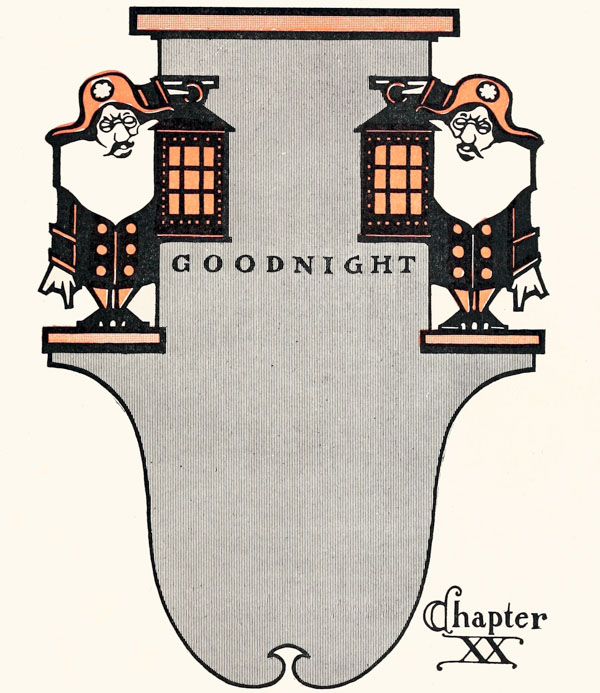
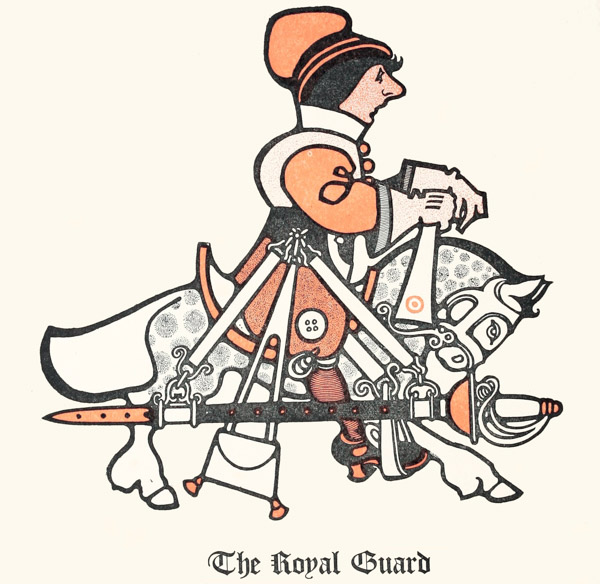
The Twentieth Chapter.
How Peace follows Trouble. And of how Happiness came at the Bestowing of another Reward.
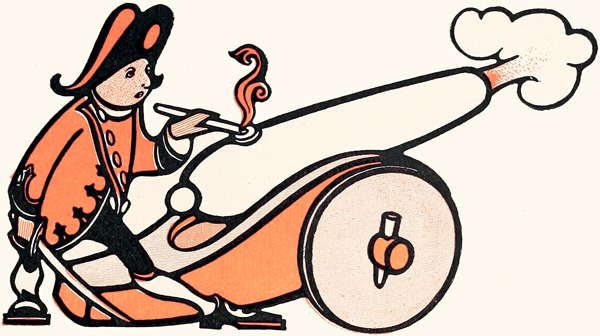
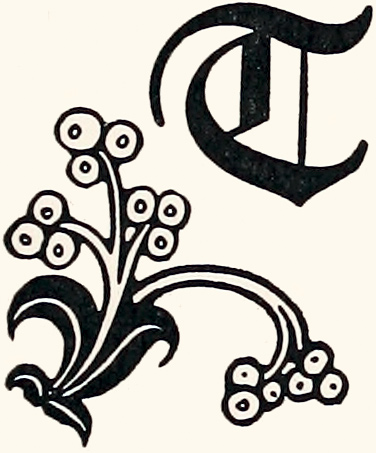 HE suggestion of the little old dame in reference
to Rolie Polie came just in the nick
of time. Tommy enjoyed very much being
a King, and Helen found no less pleasure in
being a Queen; but the day had been so full
of excitement that both were feeling tired.
HE suggestion of the little old dame in reference
to Rolie Polie came just in the nick
of time. Tommy enjoyed very much being
a King, and Helen found no less pleasure in
being a Queen; but the day had been so full
of excitement that both were feeling tired.
It was now drawing towards the close of the afternoon and Helen began to realize that, although it was delightful to be a Queen daytimes, the going down of the sun at the approach of evening made nothing quite so nice as her home and her mamma. This, I am told, is a truth that has also come to many another little girl.
“Your Majesty,” she then said to King Tommy, “do you think it is almost time to start on our return journey?” {152}
“Yes, I do,” answered Tommy. “And, Helen, now that I am a King myself, I need not hunt for the Fairy King to get riches for the kind lady in the hills. I am sure the Toy people will allow me to take some of their treasure.”
“Yes, I am sure they will,” said Helen, “because they will want to make the kind lady happy.”
“I will go at once and find Mr. Poodle,” said Tommy. Then a look of trouble came into his happy face and he added; “What do you think the Toy people will do without a King and Queen when they are threatened by the ruffians of Grumbletown? Perhaps there will be an attack to-night. Do you think I should remain here and be their protector, Helen? Of course you must go home, for if you are late, your mamma will worry.”
Mr. Poodle stood not far away and overheard this talk.
“You need not fear an attack from Grumbletown, at night,” said he, laughing. “Why, King Red Beard and his subjects are such ‘fraid cats’ of the dark, that they never stir out of their houses after sunset. Then, too, they had such a fright to-day, I do not believe they will ever again come to Toyville.”
It was at this moment that the return of Rolie Polie called forth the words of praise from the little old dame.
A bright idea then came to the King, and he hurried off to see his Prime Minister. “Assemble the Lords and Nobles in the Throne Room,” he said to that gentleman, as soon as he had found him.
The Prime Minister hurried to obey the King’s command.
A few moments later, when his Majesty stepped upon his Golden Throne, he found such a gathering of the noblest in the land, as any King might be proud to see. {153}
“My beloved subjects,” he said, “your Queen and your King have ruled over this happy and joyous realm of Toyville as wisely and as loyally as has been within their power. It is now time for us to depart for our home over the hills. We both wish that some person worthy of your trust could occupy the throne in our absence; some one to bear the title, First Assistant King, and we would suggest for this high and responsible position, the brave and clever guard, Mr. Rolie Polie.” Then the King seated himself beside his Queen on the Golden Throne.
In a moment the Mayor was on his feet. “Three cheers for Rolie Polie! Three cheers for the First Assistant King!” he cried, and the answer came long and loud.
Rolie Polie was taken completely by surprise, and knew not what to say. Mr. Poodle also was taken by surprise, but being a man of experience, he was not embarrassed, and told the people he thought their choice was wise.
“Order out the Royal Guard of Honor,” was the message the Mayor now sent to the General of the army. So, not until the little company reached the big gate at the top of the curly road did the time arrive to say good-bye, for in addition to being accompanied by the Royal Guard, their escort included every notable in Toyville.
“Good-bye, your Majesties, good-bye Mr. Poodle,” said Rolie, shaking their hands warmly. Then he added: “I will be a good King and do my best.”
“We know you will,” answered Tommy.
“Yes,” said Mr. Poodle, “do your best, Rolie Polie, then you will win, for that is the way to get on in the world.”
These were the last words spoken as the little company passed through the gates and the big cannon boomed {154} out a parting salute. The sun was now low in the sky, casting a golden glow along the path, and making blue shadows gather in the valley.
They had not ridden long, when Mr. Poodle said: “Here we are at home;” and sure enough, as he spoke, Coal Black and Snow White went galloping into Mr. Poodle’s back garden and over the threshold into the toy shop.
“Do you think Rolie Polie will get along all right, Mr. Poodle?” asked Tommy, as they were bidding good night to the toy maker.
“O, yes,” said Mr. Poodle. “Nobody need worry about a King who has Mother Goose near his throne to help him in his ruling.”
“Mother Goose?” repeated Tommy, wonderingly. “Is Mother Goose in Toyville?” “O, yes,” answered Mr. Poodle, “she was the little old dame who led us out of the garden and saved our being captured by Red Beard. And, by the way, Mother Goose said that she hoped on our next journey, we would continue through the Valley of Happiness, until we came to her realm, where she promised there would be awaiting us the finest kind of a good time.”
“O, Tommy, isn’t Mr. Poodle kind to us!” said Helen, her eyes moist with little pearls of happiness. Tommy’s lips trembled when he tried to reply. Mr. Poodle was such a clever man, though, that I guess he knew what kind of a lump had swelled up in Tommy’s throat, for he didn’t say one single word, but held out both his arms, and in a second there were his playmates hugging him so tightly that it was almost as much as he could do to breathe.
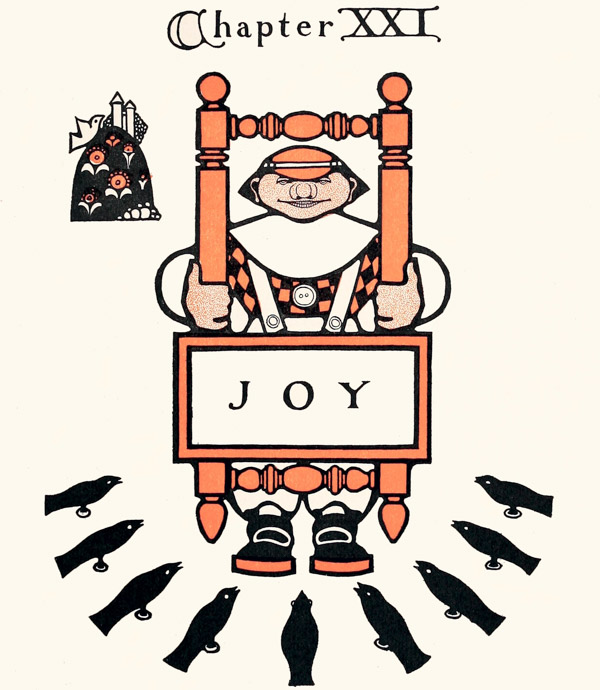
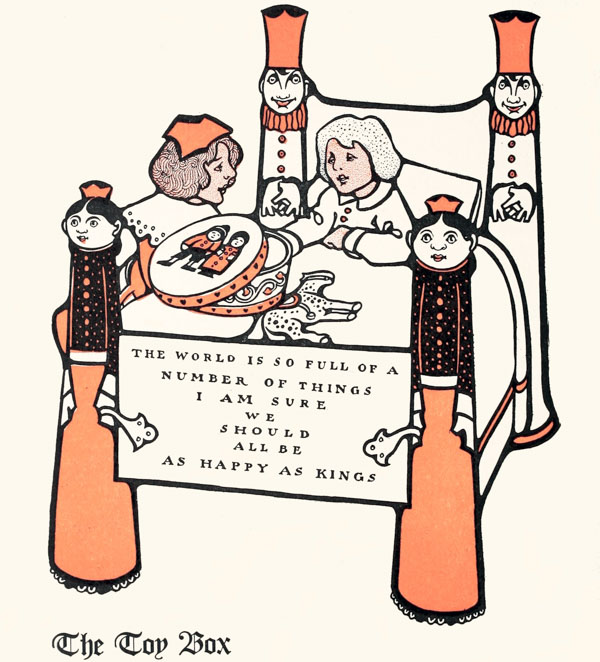
The Twenty-first Chapter.
Of the next Morning and how Tommy found a New Joy. Also of the Questions asked by Helen, and of how her Mamma answered.
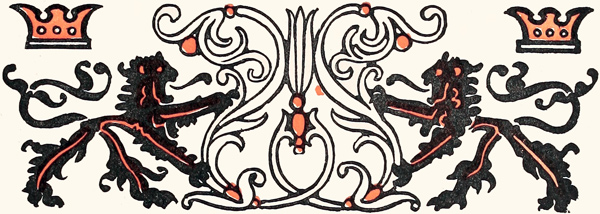
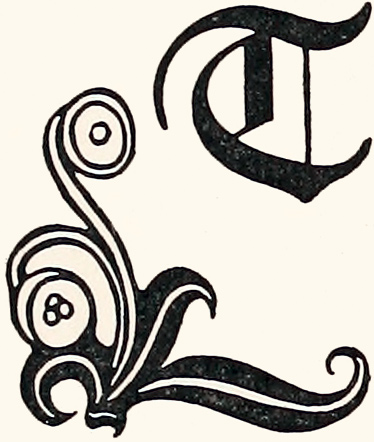 HE sun had been up some hours when
Tommy awoke in his little bed at the toymaker’s
the next day. Then, oh my, what
a surprise he did have! for the moment he
opened his eyes, they looked right into the
loveliest, sweetest eyes in all the world; and
he knew that those eyes belonged to—his dear mother.
HE sun had been up some hours when
Tommy awoke in his little bed at the toymaker’s
the next day. Then, oh my, what
a surprise he did have! for the moment he
opened his eyes, they looked right into the
loveliest, sweetest eyes in all the world; and
he knew that those eyes belonged to—his dear mother.
Yes, Tommy’s own dear mother was leaning over his little bed in Peter Poodle’s toy shop. She hugged him ever and ever so tight, and there were happy tears in her eyes. And, on the other side of the bed, was—his father!
All in a pop, Tommy’s memory had come back to him; the memory that went away when he was so sick at the wood-chopper’s house in the hills.
Tommy didn’t know how his father and mother happened to be in Peter Poodle’s toy shop, and he was too happy to try and think. Then he remembered that his {158} name wasn’t Tommy. “Oh, Mr. Poodle,” he said, as he saw the little toy maker come into the room, “I am not a King any more, because my father is the King. But I am a Prince, Mr. Poodle, and my name is Arthur.”
“Yes, indeed, you are a Prince,” said Mr. Poodle, “and sometime you will be King.”
A troubled look now came into Prince Arthur’s eyes. “Will the Toy people love me when I am a real King, Mr. Poodle?” he asked; “and will they have me for their King, too? Because I like to be the King of Toyville, and I want to drive away the King of Grumbletown.”
“Toy people will always love you,” said Mr. Poodle, “because you are always very kind to them; and when you are a real King, you can ask all the children to be kind to their toys, and then, pretty soon, there won’t be any more Grumbletown, because no toys will go there.”
“That is what I will do the very first day I am King,” said the Prince. “And now I will get up and send the Toyville treasure to the kind lady in the hills.”
“No need to do that, dear,” said his mother. “The wood chopper and his good wife are right here, and no longer poor, for the King has rewarded their care of his boy.”
The Prince looked across the room, and there, sure enough, was the kind lady, and the wood chopper who now wore a uniform of the King’s Royal House Guard.
Although the Prince felt tired, from his long journey to Toyville, he quickly jumped out of bed, and the next minute was giving the kind lady a big hug. Then he dressed, and by that time Helen came to play with him.
“I am not a King any more,” he said to Helen, “because, you see, I am only a King’s son. But I am a Prince, and {159} my name is Arthur. You may call me Tommy, though, if you wish. Some time I am going to be a King, and then will you be my Queen, Helen?”
“Yes, I will,” said Helen, “and I am going to call you Arthur, because that is your really truly name. I wish you would come and play now. I have brought you Captain Pinkle and Captain Poddle, but I couldn’t bring Rolie Polie, because he is not here any more.”
“Oh, no,” answered the Prince, “it wouldn’t be right for Rolie Polie to come, because he must stay and be King in Toyville. Thank you, Helen, for bringing Captain Pinkle and Captain Poddle. Why, this is the same box I carried to the Black Lion! Did the bad men send it to Mr. Poodle?”
“The bad men were captured by the King’s soldiers and are now in prison,” answered the Queen. “Thanks to the wood chopper’s good wife, who followed you in your long tramp through the hills, we have our boy again, and those who stole him away are punished.”
The Prince did not play very hard that afternoon, and by and by he said to Helen: “I do not know why going to Toyville has made me so tired, but I suppose being a King is hard work. Do you think it is, Helen?”
“Yes, I do,” said Helen. “I think being a King is very hard, and takes a big man like your papa. But some time you will be a big man, and then being a King won’t make you tired any more.”
This happy time of their playing passed all too hurriedly for Helen, who hardly realized its ending before she found herself saying goodbye to her little playmate.
“You will come and see me soon, won’t you Helen?” said the Prince, his lips trembling. “Come very soon {160} Helen, because I want a little girl to play with and to go with me on journeys; and O, Helen, now I have a mamma of my own, and perhaps she will read us stories.”
“Yes, indeed, I will read stories to you,” said the Queen, turning from talking earnestly with Helen’s mamma, who had come to say goodbye to the Prince, “and Helen is coming to see us very, very soon.”
Then the goodbys were all said, and amidst the cheering of the townspeople who were lining the streets outside the toyshop, the King and Queen, accompanied by the Royal House Guards, bore the Prince away to his new home in the Castle among the hills.
That evening when Helen had been tucked snugly in her little bed, she said: “Mamma, how did Prince Arthur get lost; did somebody steal him away from his home?”
“Yes, dear,” said Helen’s mamma. Then she snuggled down on the bed and hugging Helen close, told her how, a while ago, the young Prince had been stolen away by the ruffians and left in the forest where he was found by the good wood chopper.
“Was the Prince ill when he was found?” asked Helen.
“Yes, dear,” answered her mamma, “the Prince was so ill that, when the fever left him, it took away his memory, and he did not know that he was a King’s son.”
“Did the wood chopper know that the little boy he found was a Prince, mamma?”
“No,” said her mamma; “the wicked men had dressed the Prince in ragged clothes when they left him in the forest to starve, and he did not look at all like a Prince.”
“How did the King ever find the Prince?” asked Helen. “Did he go to the wood chopper’s house, mamma?” {161}
“No, dear, he was hunting everywhere for some trace of his lost boy, and the wood chopper’s wife was hunting too, and she had followed the Prince almost to this city. Then one day the King met her, and he knew from what she told him that his Arthur was alive; so he came riding with his soldiers as fast as ever he could and saw the little Prince just as he entered the Black Lion Inn. Now dear, it is time for my little girl to go to sleep!”
But Helen wasn’t one bit sleepy. “Why was the Prince stolen away, mamma?” she asked.
“I do not know,” answered her mamma. “Some people say that the King’s brother, Duke Robert, who is called Robert the Red, had him stolen so his own son would be heir to the throne, but no one knows this for certain. If Robert the Red did have him taken away, he never can steal him again, because the King has made the wood chopper the Prince’s own special guard, and he and his good wife will now live in the Castle.”
“Robert the Red was a wicked man to steal away the Prince, wasn’t he, mamma!” said Helen. “Will the Prince be a King some day, mamma, and will he come for me and make me a Queen, like he said?”
“Listen,” said Helen’s mamma, “there is Grandpapa calling me. Good night, little Wideawake.” Then she gave Helen a hug, and turning the light low, left the room.
“Mamma didn’t answer my question,” thought Helen. “But never mind, I know he will, because Tommy said he would,—Prince Arthur, I mean.” Then she closed her eyes and soon was fast asleep.
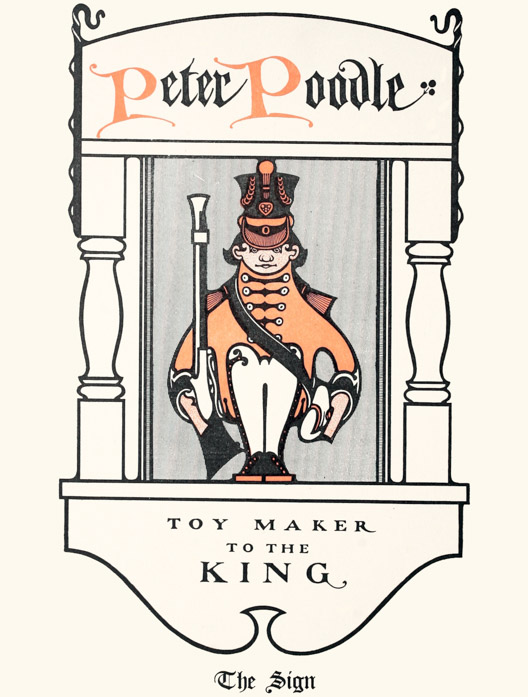
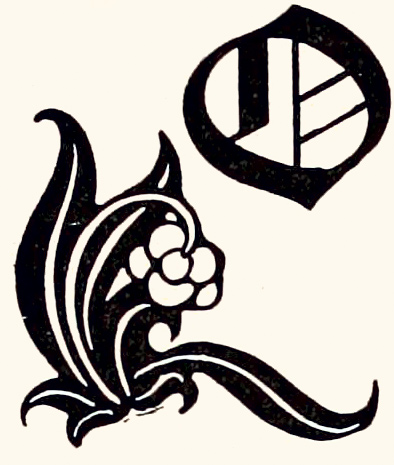 VER the front door of Peter Poodle’s shop
there now hangs a big and comical sign on
which is painted a chubby little soldier with
a red coat and a black hat. Right over the
soldier, in black letters with curly red capitals,
appears the name
VER the front door of Peter Poodle’s shop
there now hangs a big and comical sign on
which is painted a chubby little soldier with
a red coat and a black hat. Right over the
soldier, in black letters with curly red capitals,
appears the name

 ,
and beneath the soldier are the words,
,
and beneath the soldier are the words,




 .
This is how it happened:
.
This is how it happened:
One day a big wagon drove up in front of Peter Poodle’s shop; in it there was a large, flat, wooden box, sealed with the Royal Coat of Arms. “Does Mr. Poodle live here?” asked the driver. “Yes,” answered the toy maker.
The next minute, much to the surprise of the little man, he saw the big box being deposited right in the middle of the floor of his shop. Mr. Poodle unscrewed the lid with trembling fingers. Inside, packed carefully, so it would not receive a single scratch, was the beautiful sign. With the sign also came a great parchment, signed and sealed with the Royal Arms. On this parchment were letters telling how Mr. Poodle had been made Toy Maker to the King.
While Mr. Poodle was folding up the papers and wrappings that had come about the sign, so as to put them all away neatly, a little envelope dropped to the floor. This likewise bore the Royal Seal, and when Mr. Poodle had it open, he found a very kind note from the Queen ordering ever and ever so many toys for the Prince. It also contained an invitation for Mr. Poodle to come and visit at the Castle, together with a kind message from the Prince. {164}
And now my story is at an end. I hope you will agree with me that Peter Poodle received what really was no more than he deserved, which, indeed, is but the very truth; for a finer little man it would be hard to find, as you surely would say could you know him as well as I do.
What became of Rolie Polie? Did the little clown make a good King? Did Helen go to visit the Prince? And did they ever return to Toyville?
Lucky those questions were asked so quickly, for the ink upon my pen was almost dry and I had drawn my chair to the fire for a little snooze before dinner.
Yes, Helen visited the Prince, and with Mr. Poodle the two made many more trips to Toyville, and to the Realm of Mother Goose. Of course, after the Prince had been away for so long a time the King and Queen wanted to have him in the Castle near them always, but bye and bye, when Mr. Poodle came with the toys the Queen had ordered, and brought Helen with him, the Queen very kindly gave her consent to another trip to Toyville.
Much to their surprise, upon again entering the Valley of Happiness, they found the Realm to be ruled not by Rolie Polie, but by King Hans the First, called by some King Hans the Happy, and by others Happy Hans. However, their surprise and wonder were soon dispelled by the Mayor, who told Mr. Poodle how, at the first meeting of the councillors following the departure of King Tommy and Queen Helen, it had been suggested that the name Rolie Polie, while being a fine one for a clown, really seemed too frivolous for a King, so by an act of Parliament it was changed to Hans the First. {165}
Mr. Poodle highly commended this action, and then asked if the rule of Hans the First had been a happy one.
The Mayor laughed merrily at that question. “Indeed it has,” said he; “but you may see for yourself, as the Court Historian has recorded it all in a big book.”
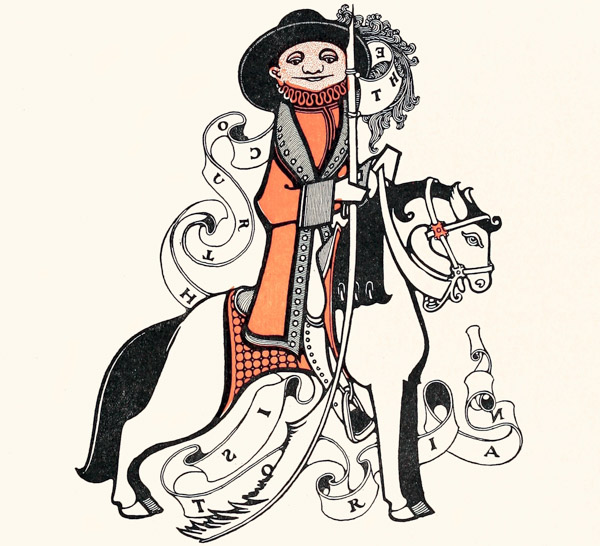

Mr. Poodle has often, since then, read all of that history to Helen and Tommy, and with them has had many a good laugh over its merry tales. I, too, have enjoyed a laugh over those quaint pages, for Mr. Poodle brought the book back with him from Toyville, and now keeps it in his shop, where anybody may read the words as easily as can be, for they are not at all big or hard to spell.
Sometime, I think I will ask Mr. Poodle to allow me to
send that
 to the Printer Man and have more
copies made, so that other little boys and girls can read all
about Hans and his strange and wonderful adventures,
of which there is no room to tell anything here, as anyone
can see quite plainly, for there is only space enough left
to print this one little picture.
to the Printer Man and have more
copies made, so that other little boys and girls can read all
about Hans and his strange and wonderful adventures,
of which there is no room to tell anything here, as anyone
can see quite plainly, for there is only space enough left
to print this one little picture.
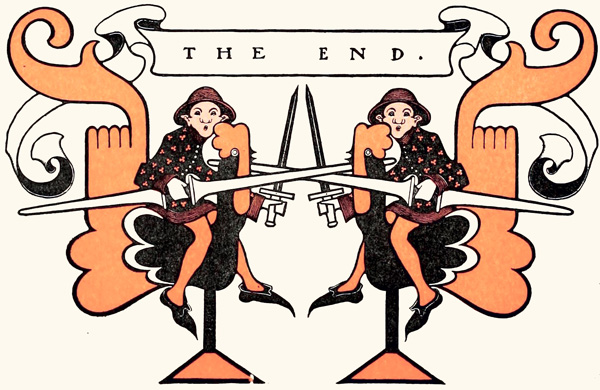
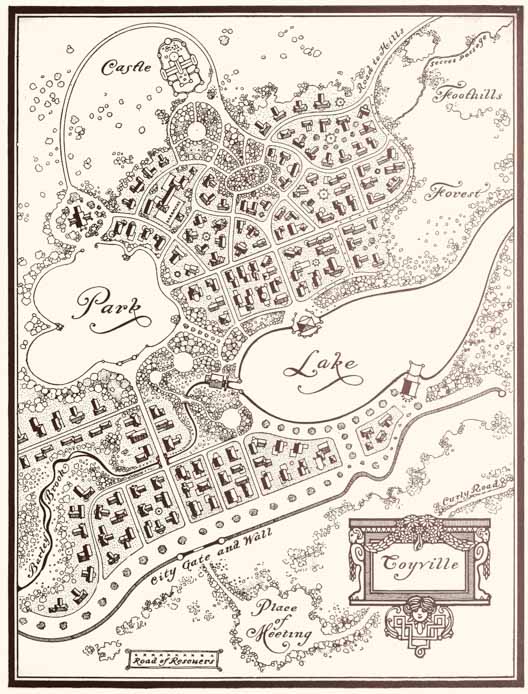
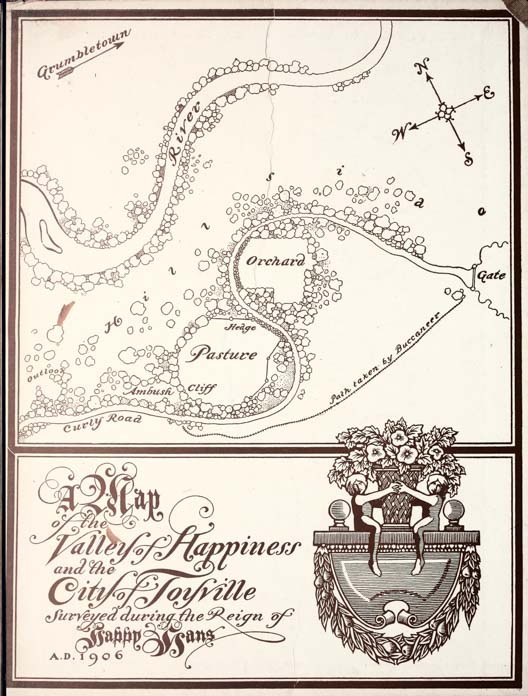
Original spelling and grammar have been generally retained, with some exceptions noted below. The transcriber produced the cover image from the original, and hereby assigns it to the public domain.
Several illustrations were moved from within paragraphs to between nearby paragraphs. This results in some slight inaccuracy in the page references given in the “The Pictures”—the List of Illustrations—for the images originally facing pages 68 and 94. The illustration originally printed across facing pages 70 and 71 is marked herein as two illustrations, with a caption divided between the two.
Original page images are available from archive.org—search for “peterpoodletoyma00brad”. Scanned images of two pages, including the frontispiece The Banquet, were missing from the archive.org files; these two images were provided by the Univ. of Minnesota Libraries, Twin Cities, Children’s Literature Research Collections.
Page 16. Right quotation mark was inserted after ‘knew about Toyville.’.
Page 17. Left quotation mark inserted before ‘Sometimes boys and girls’.
Page 26. Left quotation mark was removed from the paragraph starting: ‘Tommy assisted’.
Page 31. Right quotation mark was inserted after ‘name of Grumbletown.’.
Page 32. Right quotation mark was inserted after ‘brigands or bandits.’.
Page 36. Right quotation mark was inserted after ‘city of Toyville.’.
Page 44. Right quotation mark was inserted after ‘least until eight.’.
Page 62. Right quotation mark was inserted after ‘plans topsy turvy.’.
Page 71. Right quotation mark was inserted after ‘be thought comical.’.
Page 101. Left quotation mark was removed from ‘I tell you “I am a clever one’.
Page 113. “cannon no the deck” to “cannon on the deck”.
Page 135. “about no enter” to “about to enter”.
Page 136. Left quotation mark inserted before “We” in “shouted the King. We must”.
Page 159. ‘bringing Captain Pinkle and Captain Poddle.” Why, this’ to ‘bringing Captain Pinkle and Captain Poddle. Why, this’.
End of the Project Gutenberg EBook of Peter Poodle--Toy Maker to the King, by
William Henry Bradley
*** END OF THIS PROJECT GUTENBERG EBOOK PETER POODLE ***
***** This file should be named 56556-h.htm or 56556-h.zip *****
This and all associated files of various formats will be found in:
http://www.gutenberg.org/5/6/5/5/56556/
Produced by MFR, RichardW, and the Online Distributed
Proofreading Team at http://www.pgdp.net (This file was
produced from images generously made available by The
Internet Archive. Two missing pages with high resolution
illustrations were produced from images generously made
available by University of Minnesota Libraries, Twin Cities,
Children's Literature Research Collections)
Updated editions will replace the previous one--the old editions will
be renamed.
Creating the works from print editions not protected by U.S. copyright
law means that no one owns a United States copyright in these works,
so the Foundation (and you!) can copy and distribute it in the United
States without permission and without paying copyright
royalties. Special rules, set forth in the General Terms of Use part
of this license, apply to copying and distributing Project
Gutenberg-tm electronic works to protect the PROJECT GUTENBERG-tm
concept and trademark. Project Gutenberg is a registered trademark,
and may not be used if you charge for the eBooks, unless you receive
specific permission. If you do not charge anything for copies of this
eBook, complying with the rules is very easy. You may use this eBook
for nearly any purpose such as creation of derivative works, reports,
performances and research. They may be modified and printed and given
away--you may do practically ANYTHING in the United States with eBooks
not protected by U.S. copyright law. Redistribution is subject to the
trademark license, especially commercial redistribution.
START: FULL LICENSE
THE FULL PROJECT GUTENBERG LICENSE
PLEASE READ THIS BEFORE YOU DISTRIBUTE OR USE THIS WORK
To protect the Project Gutenberg-tm mission of promoting the free
distribution of electronic works, by using or distributing this work
(or any other work associated in any way with the phrase "Project
Gutenberg"), you agree to comply with all the terms of the Full
Project Gutenberg-tm License available with this file or online at
www.gutenberg.org/license.
Section 1. General Terms of Use and Redistributing Project
Gutenberg-tm electronic works
1.A. By reading or using any part of this Project Gutenberg-tm
electronic work, you indicate that you have read, understand, agree to
and accept all the terms of this license and intellectual property
(trademark/copyright) agreement. If you do not agree to abide by all
the terms of this agreement, you must cease using and return or
destroy all copies of Project Gutenberg-tm electronic works in your
possession. If you paid a fee for obtaining a copy of or access to a
Project Gutenberg-tm electronic work and you do not agree to be bound
by the terms of this agreement, you may obtain a refund from the
person or entity to whom you paid the fee as set forth in paragraph
1.E.8.
1.B. "Project Gutenberg" is a registered trademark. It may only be
used on or associated in any way with an electronic work by people who
agree to be bound by the terms of this agreement. There are a few
things that you can do with most Project Gutenberg-tm electronic works
even without complying with the full terms of this agreement. See
paragraph 1.C below. There are a lot of things you can do with Project
Gutenberg-tm electronic works if you follow the terms of this
agreement and help preserve free future access to Project Gutenberg-tm
electronic works. See paragraph 1.E below.
1.C. The Project Gutenberg Literary Archive Foundation ("the
Foundation" or PGLAF), owns a compilation copyright in the collection
of Project Gutenberg-tm electronic works. Nearly all the individual
works in the collection are in the public domain in the United
States. If an individual work is unprotected by copyright law in the
United States and you are located in the United States, we do not
claim a right to prevent you from copying, distributing, performing,
displaying or creating derivative works based on the work as long as
all references to Project Gutenberg are removed. Of course, we hope
that you will support the Project Gutenberg-tm mission of promoting
free access to electronic works by freely sharing Project Gutenberg-tm
works in compliance with the terms of this agreement for keeping the
Project Gutenberg-tm name associated with the work. You can easily
comply with the terms of this agreement by keeping this work in the
same format with its attached full Project Gutenberg-tm License when
you share it without charge with others.
1.D. The copyright laws of the place where you are located also govern
what you can do with this work. Copyright laws in most countries are
in a constant state of change. If you are outside the United States,
check the laws of your country in addition to the terms of this
agreement before downloading, copying, displaying, performing,
distributing or creating derivative works based on this work or any
other Project Gutenberg-tm work. The Foundation makes no
representations concerning the copyright status of any work in any
country outside the United States.
1.E. Unless you have removed all references to Project Gutenberg:
1.E.1. The following sentence, with active links to, or other
immediate access to, the full Project Gutenberg-tm License must appear
prominently whenever any copy of a Project Gutenberg-tm work (any work
on which the phrase "Project Gutenberg" appears, or with which the
phrase "Project Gutenberg" is associated) is accessed, displayed,
performed, viewed, copied or distributed:
This eBook is for the use of anyone anywhere in the United States and
most other parts of the world at no cost and with almost no
restrictions whatsoever. You may copy it, give it away or re-use it
under the terms of the Project Gutenberg License included with this
eBook or online at www.gutenberg.org. If you are not located in the
United States, you'll have to check the laws of the country where you
are located before using this ebook.
1.E.2. If an individual Project Gutenberg-tm electronic work is
derived from texts not protected by U.S. copyright law (does not
contain a notice indicating that it is posted with permission of the
copyright holder), the work can be copied and distributed to anyone in
the United States without paying any fees or charges. If you are
redistributing or providing access to a work with the phrase "Project
Gutenberg" associated with or appearing on the work, you must comply
either with the requirements of paragraphs 1.E.1 through 1.E.7 or
obtain permission for the use of the work and the Project Gutenberg-tm
trademark as set forth in paragraphs 1.E.8 or 1.E.9.
1.E.3. If an individual Project Gutenberg-tm electronic work is posted
with the permission of the copyright holder, your use and distribution
must comply with both paragraphs 1.E.1 through 1.E.7 and any
additional terms imposed by the copyright holder. Additional terms
will be linked to the Project Gutenberg-tm License for all works
posted with the permission of the copyright holder found at the
beginning of this work.
1.E.4. Do not unlink or detach or remove the full Project Gutenberg-tm
License terms from this work, or any files containing a part of this
work or any other work associated with Project Gutenberg-tm.
1.E.5. Do not copy, display, perform, distribute or redistribute this
electronic work, or any part of this electronic work, without
prominently displaying the sentence set forth in paragraph 1.E.1 with
active links or immediate access to the full terms of the Project
Gutenberg-tm License.
1.E.6. You may convert to and distribute this work in any binary,
compressed, marked up, nonproprietary or proprietary form, including
any word processing or hypertext form. However, if you provide access
to or distribute copies of a Project Gutenberg-tm work in a format
other than "Plain Vanilla ASCII" or other format used in the official
version posted on the official Project Gutenberg-tm web site
(www.gutenberg.org), you must, at no additional cost, fee or expense
to the user, provide a copy, a means of exporting a copy, or a means
of obtaining a copy upon request, of the work in its original "Plain
Vanilla ASCII" or other form. Any alternate format must include the
full Project Gutenberg-tm License as specified in paragraph 1.E.1.
1.E.7. Do not charge a fee for access to, viewing, displaying,
performing, copying or distributing any Project Gutenberg-tm works
unless you comply with paragraph 1.E.8 or 1.E.9.
1.E.8. You may charge a reasonable fee for copies of or providing
access to or distributing Project Gutenberg-tm electronic works
provided that
* You pay a royalty fee of 20% of the gross profits you derive from
the use of Project Gutenberg-tm works calculated using the method
you already use to calculate your applicable taxes. The fee is owed
to the owner of the Project Gutenberg-tm trademark, but he has
agreed to donate royalties under this paragraph to the Project
Gutenberg Literary Archive Foundation. Royalty payments must be paid
within 60 days following each date on which you prepare (or are
legally required to prepare) your periodic tax returns. Royalty
payments should be clearly marked as such and sent to the Project
Gutenberg Literary Archive Foundation at the address specified in
Section 4, "Information about donations to the Project Gutenberg
Literary Archive Foundation."
* You provide a full refund of any money paid by a user who notifies
you in writing (or by e-mail) within 30 days of receipt that s/he
does not agree to the terms of the full Project Gutenberg-tm
License. You must require such a user to return or destroy all
copies of the works possessed in a physical medium and discontinue
all use of and all access to other copies of Project Gutenberg-tm
works.
* You provide, in accordance with paragraph 1.F.3, a full refund of
any money paid for a work or a replacement copy, if a defect in the
electronic work is discovered and reported to you within 90 days of
receipt of the work.
* You comply with all other terms of this agreement for free
distribution of Project Gutenberg-tm works.
1.E.9. If you wish to charge a fee or distribute a Project
Gutenberg-tm electronic work or group of works on different terms than
are set forth in this agreement, you must obtain permission in writing
from both the Project Gutenberg Literary Archive Foundation and The
Project Gutenberg Trademark LLC, the owner of the Project Gutenberg-tm
trademark. Contact the Foundation as set forth in Section 3 below.
1.F.
1.F.1. Project Gutenberg volunteers and employees expend considerable
effort to identify, do copyright research on, transcribe and proofread
works not protected by U.S. copyright law in creating the Project
Gutenberg-tm collection. Despite these efforts, Project Gutenberg-tm
electronic works, and the medium on which they may be stored, may
contain "Defects," such as, but not limited to, incomplete, inaccurate
or corrupt data, transcription errors, a copyright or other
intellectual property infringement, a defective or damaged disk or
other medium, a computer virus, or computer codes that damage or
cannot be read by your equipment.
1.F.2. LIMITED WARRANTY, DISCLAIMER OF DAMAGES - Except for the "Right
of Replacement or Refund" described in paragraph 1.F.3, the Project
Gutenberg Literary Archive Foundation, the owner of the Project
Gutenberg-tm trademark, and any other party distributing a Project
Gutenberg-tm electronic work under this agreement, disclaim all
liability to you for damages, costs and expenses, including legal
fees. YOU AGREE THAT YOU HAVE NO REMEDIES FOR NEGLIGENCE, STRICT
LIABILITY, BREACH OF WARRANTY OR BREACH OF CONTRACT EXCEPT THOSE
PROVIDED IN PARAGRAPH 1.F.3. YOU AGREE THAT THE FOUNDATION, THE
TRADEMARK OWNER, AND ANY DISTRIBUTOR UNDER THIS AGREEMENT WILL NOT BE
LIABLE TO YOU FOR ACTUAL, DIRECT, INDIRECT, CONSEQUENTIAL, PUNITIVE OR
INCIDENTAL DAMAGES EVEN IF YOU GIVE NOTICE OF THE POSSIBILITY OF SUCH
DAMAGE.
1.F.3. LIMITED RIGHT OF REPLACEMENT OR REFUND - If you discover a
defect in this electronic work within 90 days of receiving it, you can
receive a refund of the money (if any) you paid for it by sending a
written explanation to the person you received the work from. If you
received the work on a physical medium, you must return the medium
with your written explanation. The person or entity that provided you
with the defective work may elect to provide a replacement copy in
lieu of a refund. If you received the work electronically, the person
or entity providing it to you may choose to give you a second
opportunity to receive the work electronically in lieu of a refund. If
the second copy is also defective, you may demand a refund in writing
without further opportunities to fix the problem.
1.F.4. Except for the limited right of replacement or refund set forth
in paragraph 1.F.3, this work is provided to you 'AS-IS', WITH NO
OTHER WARRANTIES OF ANY KIND, EXPRESS OR IMPLIED, INCLUDING BUT NOT
LIMITED TO WARRANTIES OF MERCHANTABILITY OR FITNESS FOR ANY PURPOSE.
1.F.5. Some states do not allow disclaimers of certain implied
warranties or the exclusion or limitation of certain types of
damages. If any disclaimer or limitation set forth in this agreement
violates the law of the state applicable to this agreement, the
agreement shall be interpreted to make the maximum disclaimer or
limitation permitted by the applicable state law. The invalidity or
unenforceability of any provision of this agreement shall not void the
remaining provisions.
1.F.6. INDEMNITY - You agree to indemnify and hold the Foundation, the
trademark owner, any agent or employee of the Foundation, anyone
providing copies of Project Gutenberg-tm electronic works in
accordance with this agreement, and any volunteers associated with the
production, promotion and distribution of Project Gutenberg-tm
electronic works, harmless from all liability, costs and expenses,
including legal fees, that arise directly or indirectly from any of
the following which you do or cause to occur: (a) distribution of this
or any Project Gutenberg-tm work, (b) alteration, modification, or
additions or deletions to any Project Gutenberg-tm work, and (c) any
Defect you cause.
Section 2. Information about the Mission of Project Gutenberg-tm
Project Gutenberg-tm is synonymous with the free distribution of
electronic works in formats readable by the widest variety of
computers including obsolete, old, middle-aged and new computers. It
exists because of the efforts of hundreds of volunteers and donations
from people in all walks of life.
Volunteers and financial support to provide volunteers with the
assistance they need are critical to reaching Project Gutenberg-tm's
goals and ensuring that the Project Gutenberg-tm collection will
remain freely available for generations to come. In 2001, the Project
Gutenberg Literary Archive Foundation was created to provide a secure
and permanent future for Project Gutenberg-tm and future
generations. To learn more about the Project Gutenberg Literary
Archive Foundation and how your efforts and donations can help, see
Sections 3 and 4 and the Foundation information page at
www.gutenberg.org Section 3. Information about the Project Gutenberg
Literary Archive Foundation
The Project Gutenberg Literary Archive Foundation is a non profit
501(c)(3) educational corporation organized under the laws of the
state of Mississippi and granted tax exempt status by the Internal
Revenue Service. The Foundation's EIN or federal tax identification
number is 64-6221541. Contributions to the Project Gutenberg Literary
Archive Foundation are tax deductible to the full extent permitted by
U.S. federal laws and your state's laws.
The Foundation's principal office is in Fairbanks, Alaska, with the
mailing address: PO Box 750175, Fairbanks, AK 99775, but its
volunteers and employees are scattered throughout numerous
locations. Its business office is located at 809 North 1500 West, Salt
Lake City, UT 84116, (801) 596-1887. Email contact links and up to
date contact information can be found at the Foundation's web site and
official page at www.gutenberg.org/contact
For additional contact information:
Dr. Gregory B. Newby
Chief Executive and Director
gbnewby@pglaf.org
Section 4. Information about Donations to the Project Gutenberg
Literary Archive Foundation
Project Gutenberg-tm depends upon and cannot survive without wide
spread public support and donations to carry out its mission of
increasing the number of public domain and licensed works that can be
freely distributed in machine readable form accessible by the widest
array of equipment including outdated equipment. Many small donations
($1 to $5,000) are particularly important to maintaining tax exempt
status with the IRS.
The Foundation is committed to complying with the laws regulating
charities and charitable donations in all 50 states of the United
States. Compliance requirements are not uniform and it takes a
considerable effort, much paperwork and many fees to meet and keep up
with these requirements. We do not solicit donations in locations
where we have not received written confirmation of compliance. To SEND
DONATIONS or determine the status of compliance for any particular
state visit www.gutenberg.org/donate
While we cannot and do not solicit contributions from states where we
have not met the solicitation requirements, we know of no prohibition
against accepting unsolicited donations from donors in such states who
approach us with offers to donate.
International donations are gratefully accepted, but we cannot make
any statements concerning tax treatment of donations received from
outside the United States. U.S. laws alone swamp our small staff.
Please check the Project Gutenberg Web pages for current donation
methods and addresses. Donations are accepted in a number of other
ways including checks, online payments and credit card donations. To
donate, please visit: www.gutenberg.org/donate
Section 5. General Information About Project Gutenberg-tm electronic works.
Professor Michael S. Hart was the originator of the Project
Gutenberg-tm concept of a library of electronic works that could be
freely shared with anyone. For forty years, he produced and
distributed Project Gutenberg-tm eBooks with only a loose network of
volunteer support.
Project Gutenberg-tm eBooks are often created from several printed
editions, all of which are confirmed as not protected by copyright in
the U.S. unless a copyright notice is included. Thus, we do not
necessarily keep eBooks in compliance with any particular paper
edition.
Most people start at our Web site which has the main PG search
facility: www.gutenberg.org
This Web site includes information about Project Gutenberg-tm,
including how to make donations to the Project Gutenberg Literary
Archive Foundation, how to help produce our new eBooks, and how to
subscribe to our email newsletter to hear about new eBooks.